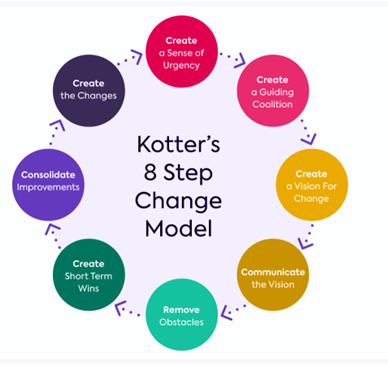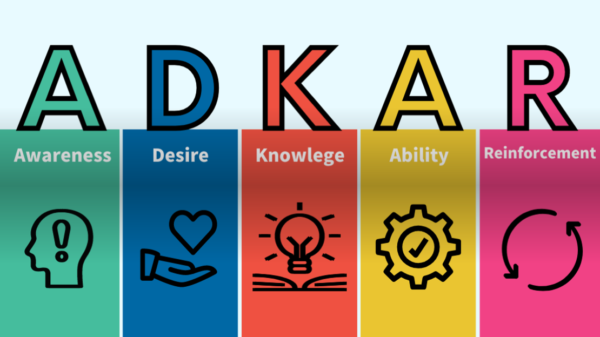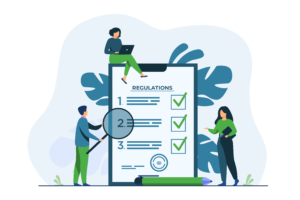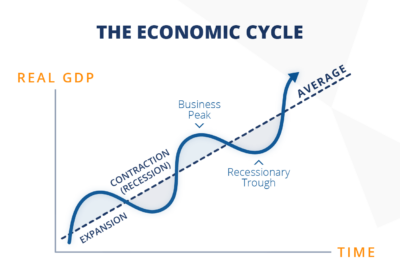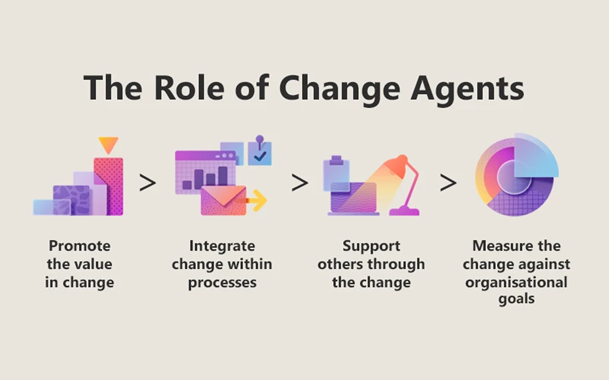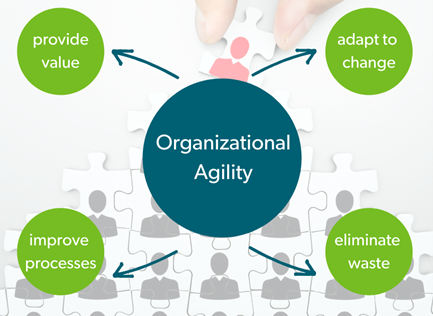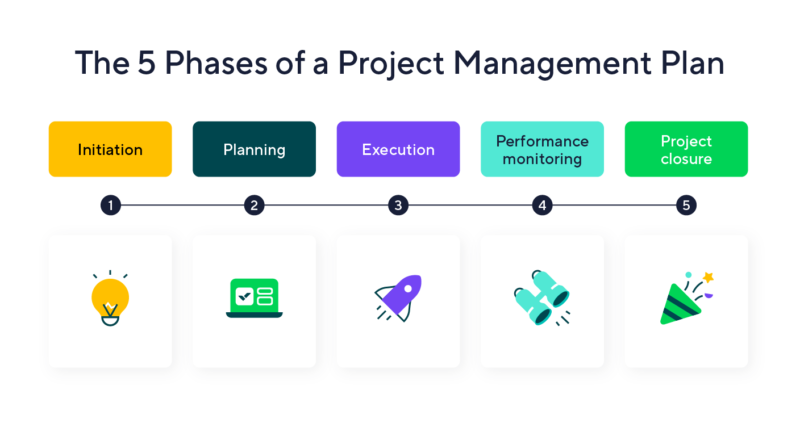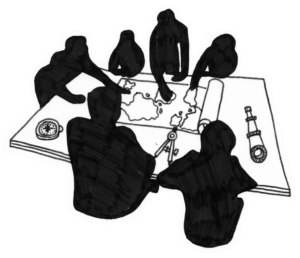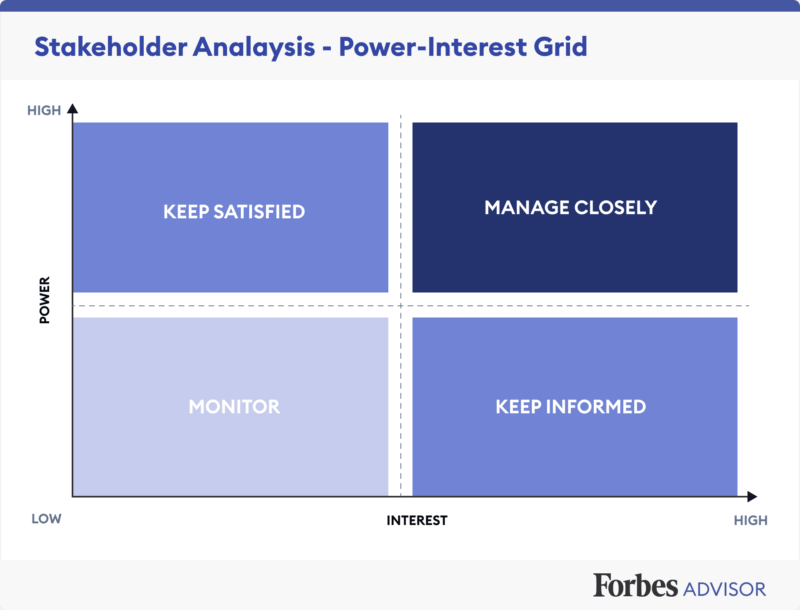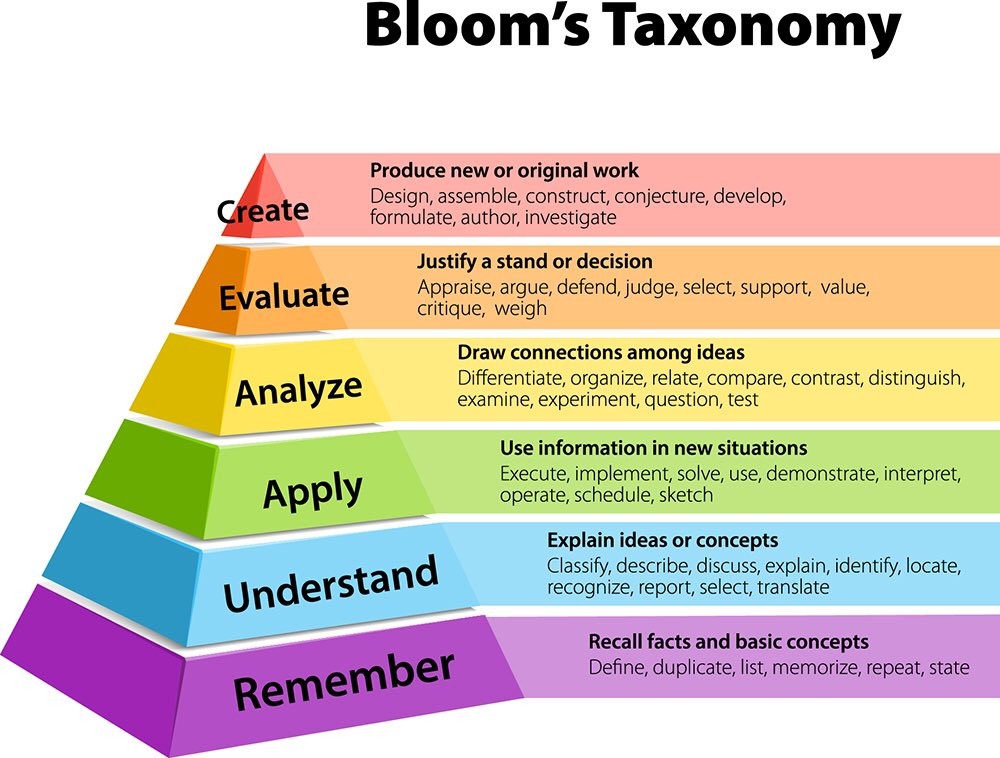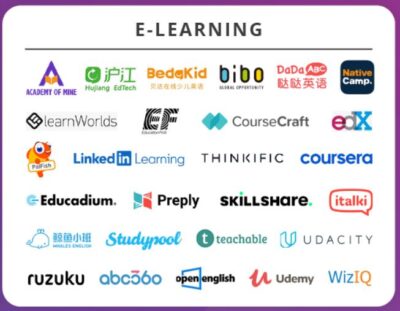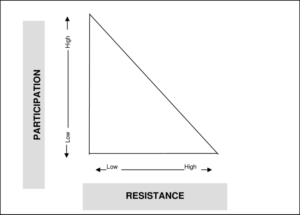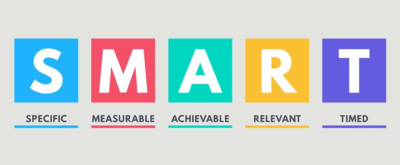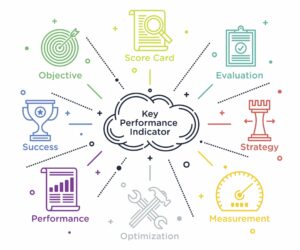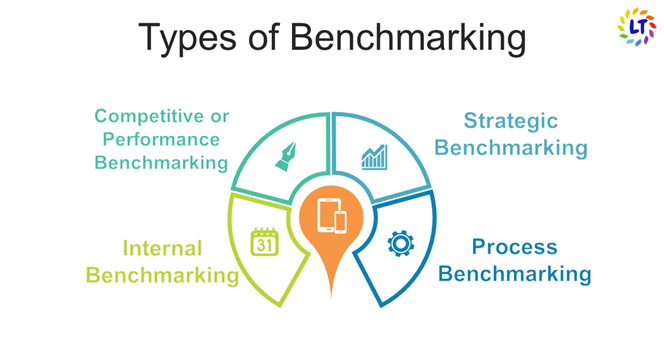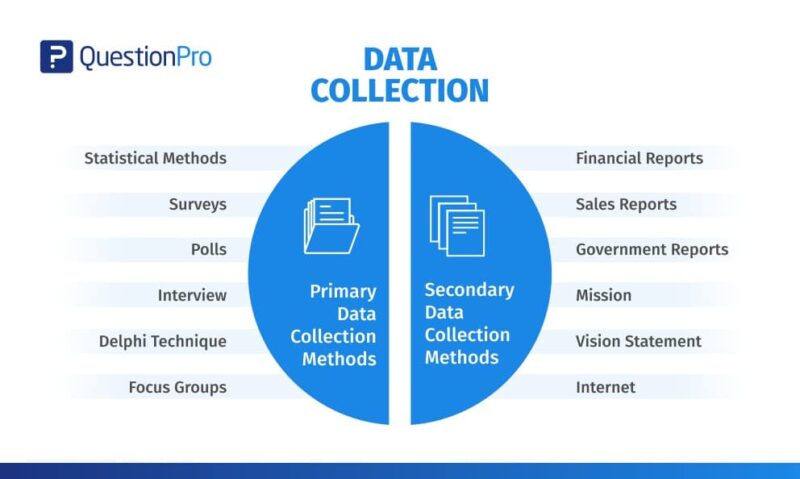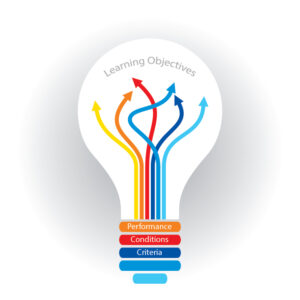Organizational Transformation – Workshop 1 (Organizational Evolution)

The Appleton Greene Corporate Training Program (CTP) for Organizational Transformation is provided by Mr. Brinkman MBA LSSBB Certified Learning Provider (CLP). Program Specifications: Monthly cost USD$2,500.00; Monthly Workshops 6 hours; Monthly Support 4 hours; Program Duration 24 months; Program orders subject to ongoing availability.
If you would like to view the Client Information Hub (CIH) for this program, please Click Here
Learning Provider Profile
With over two decades of unparalleled expertise in health, safety, security, environment, and quality (QHSE) management, Mr. Brinkman MBA LSSBB stands at the pinnacle of the management consulting industry. His extensive knowledge spans quality management, operations, environmental management, and occupational health and safety. As a Certified Learning Provider (CLP) at Appleton Greene, Mr. Brinkman brings experience and a proven track record of delivering transformative results.
His credentials are impeccable: a Certified Lean Six Sigma Black Belt, an EHS Senior Technician, a Master’s degree in International Business Administration, a specialized certification in Environmental Health and Safety, and an extensive post-master course as an Organization and Labor Expert. His broad and deep industry expertise covers several industries, including the energy, manufacturing, logistics, quality, and consulting sectors. Mr. Brinkman’s international experience, particularly in the Netherlands, Belgium, Turkey, and the Arabian Gulf Region, has honed his skills in navigating complex commercial landscapes.
Mr. Brinkman is not just an experienced consultant but a strategist and visionary. His remarkable ability to lead large-scale projects, particularly in the quality, health, safety, and environmental domains, has earned him widespread acclaim. He is adept at constructing robust QHSE systems in partnership with leading certifying organizations and is a master at integrating ISO standards.
Throughout his illustrious career, Mr. Brinkman has held senior roles in multinational corporations, working with industry giants such as Sabic, Saudi Aramco, Dow Chemicals, DSS+, Unilever, Proctor & Gamble, GXO Logistics, DNP Global, and others. His accomplishments include optimizing processes and fostering successful collaborations with QHSE professionals across various heavy industrial sectors globally. Mr. Brinkman’s commitment to excellence has garnered national and international recognition, making him a pivotal figure in bespoke QHSE projects.
Mr. Brinkman’s profound understanding of complex regulatory environments and demonstrated ability to enhance organizational performance through efficient QHSE procedures are unparalleled. He has successfully developed essential safety and quality frameworks for top organizations while leading a vast network of QHSE specialists. His strategic contributions to significant projects and unwavering focus on environmental, health, and quality standards have positioned him as an exemplary leader and a globally recognized expert in safety and quality.
In summary, Mr. Brinkman is not just a consultant; he is a thought leader and an innovator whose extensive experience and dedication have significantly influenced the fields of safety, quality, and environmental management. His expertise is not just a service; it’s a valuable asset for any organization aspiring to excel in today’s competitive and regulatory complex global marketplace.
MOST Analysis
Mission Statement
Understanding and mastering organizational evolution has become a strategic imperative in today’s business environment, characterized by rapid market shifts and ground-breaking technological advancements. The “Mastering Organizational Evolution” module, which is the cornerstone of our comprehensive program, is meticulously designed to guide professionals through the ever-changing corporate world. This module is not just an introduction; it is a deep dive into organizational change and transformation dynamics, essential for any professional seeking to maintain and enhance their organization’s competitive edge in sectors experiencing rapid change.
The module begins by exploring the fundamental principles of organizational transition. Understanding these principles is crucial in a world where change is the only constant. Participants will delve into the various factors driving the need for firms to adapt, from significant market changes to groundbreaking technological innovations. In an era where business adaptation has become a necessity rather than a choice, this module provides the insights and tools to navigate this new reality effectively.
One of the key aspects of this module is its focus on the agents of change. These agents—technological advancements, shifts in consumer behavior, or global economic trends—compel firms to reassess and reorganize their cultures, strategies, and operations. This reorganization is not a mere adjustment but a strategic overhaul essential for maintaining a competitive advantage. The module equips participants with the skills to identify these change agents and understand their implications, enabling them to lead their organizations through the transformation process successfully.
A significant component of the module is the evaluation of real-world case studies from various industries. These case studies are carefully selected to demonstrate successful organizational transformations, providing participants with practical, actionable insights. By analyzing these narratives, participants will gain a deeper appreciation of the complexities of effective change management. These case studies serve as a blueprint, illustrating the challenges and triumphs of organizations that have navigated the waters of change successfully.
Moreover, the module emphasizes the importance of developing a comprehensive understanding of the factors that drive transformation. Participants will explore how to harness these factors to their advantage, turning potential challenges into opportunities for growth and innovation. This understanding is critical for professionals leading change initiatives within their organizations.
Objectives
01. Introduction to Organizational Evolution: departmental SWOT analysis; strategy research & development. Time Allocated: 1 Month
02. Fundamental Principles: departmental SWOT analysis; strategy research & development. Time Allocated: 1 Month
03. Drivers of Transformation: departmental SWOT analysis; strategy research & development. Time Allocated: 1 Month
04. Agents of Change: departmental SWOT analysis; strategy research & development. Time Allocated: 1 Month
05. Evaluating Organizational Performance: departmental SWOT analysis; strategy research & development. Time Allocated: 1 Month
06. Strategic Overhauls: departmental SWOT analysis; strategy research & development. Time Allocated: 1 Month
07. Transformation Factors: departmental SWOT analysis; strategy research & development. 1 Month
08. Tools for Leading Change: departmental SWOT analysis; strategy research & development. Time Allocated: 1 Month
09. Interactive Learning Sessions: departmental SWOT analysis; strategy research & development. Time Allocated: 1 Month
10. Transformation Roadmap: departmental SWOT analysis; strategy research & development. Time Allocated: 1 Month
11. Measuring Success: departmental SWOT analysis; strategy research & development. Time Allocated: 1 Month
12. Accelerating Continuous Transformation: departmental SWOT analysis; strategy research & development. Time Allocated: 1 Month
Strategies
01. Introduction to Organizational Evolution: Each individual department head to undertake departmental SWOT analysis; strategy research & development.
02. Fundamental Principles: Each individual department head to undertake departmental SWOT analysis; strategy research & development.
03. Drivers of Transformation: Each individual department head to undertake departmental SWOT analysis; strategy research & development.
04. Agents of Change: Each individual department head to undertake departmental SWOT analysis; strategy research & development.
05. Evaluating Organizational Performance: Each individual department head to undertake departmental SWOT analysis; strategy research & development.
06. Strategic Overhauls: Each individual department head to undertake departmental SWOT analysis; strategy research & development.
07. Transformation Factors: Each individual department head to undertake departmental SWOT analysis; strategy research & development.
08. Tools for Leading Change: Each individual department head to undertake departmental SWOT analysis; strategy research & development.
09. Interactive Learning Sessions: Each individual department head to undertake departmental SWOT analysis; strategy research & development.
10. Transformation Roadmap: Each individual department head to undertake departmental SWOT analysis; strategy research & development.
11. Measuring Success: Each individual department head to undertake departmental SWOT analysis; strategy research & development.
12. Accelerating Continuous Transformation: Each individual department head to undertake departmental SWOT analysis; strategy research & development.
Tasks
01. Create a task on your calendar, to be completed within the next month, to analyze Introduction to Organizational Evolution.
02. Create a task on your calendar, to be completed within the next month, to analyze Fundamental Principles.
03. Create a task on your calendar, to be completed within the next month, to analyze Drivers of Transformation.
04. Create a task on your calendar, to be completed within the next month, to analyze Agents of Change.
05. Create a task on your calendar, to be completed within the next month, to analyze Evaluating Organizational Performance.
06. Create a task on your calendar, to be completed within the next month, to analyze Strategic Overhauls.
07. Create a task on your calendar, to be completed within the next month, to analyze Transformation Factors.
08. Create a task on your calendar, to be completed within the next month, to analyze Tools for Leading Change.
09. Create a task on your calendar, to be completed within the next month, to analyze Interactive Learning Sessions.
10. Create a task on your calendar, to be completed within the next month, to analyze Transformation Roadmap.
11. Create a task on your calendar, to be completed within the next month, to analyze Measuring Success.
12. Create a task on your calendar, to be completed within the next month, to analyze Accelerating Continuous Transformation.
Introduction
In today’s business landscape, characterized by rapid market shifts and technological innovations, understanding and mastering organizational evolution is more crucial than ever. The “Mastering Organizational Evolution” module stands as a cornerstone of our comprehensive program, meticulously designed to navigate professionals through the complexities of the corporate world. This module goes beyond a mere introduction; it offers an in-depth exploration of organizational change and transformation dynamics, equipping professionals with the knowledge and tools necessary to maintain and enhance their organization’s competitive edge in rapidly changing sectors.
A key focus of the module is on identifying and understanding the agents of change—be it technological breakthroughs, shifts in consumer behavior, or global economic trends. These forces drive organizations to reassess and transform their strategies, cultures, and operational frameworks. Rather than mere adjustments, these transformations are strategic overhauls, essential for sustaining competitive advantage. This module equips participants with the skills to recognize these change agents, comprehend their implications, and effectively lead their organizations through the transformation process.
Furthermore, the module includes the evaluation of real-world case studies from various industries, showcasing successful organizational transformations. These carefully selected case studies provide participants with practical, actionable insights, highlighting both the challenges and triumphs of organizations that have successfully navigated change. By analyzing these examples, participants gain a deeper appreciation of the complexities involved in effective change management, drawing valuable lessons that can be applied to their own organizations.
Historical Context of Mastering Organizational Evolution
The concept of organizational evolution has its roots in the early days of industrialization, where the need for structured management practices became apparent as companies grew larger and more complex. The idea of managing change within organizations dates back to the late 19th and early 20th centuries, influenced heavily by the rise of scientific management and bureaucratic theory. Pioneers such as Frederick Winslow Taylor introduced principles of efficiency and labor specialization, laying the groundwork for systematic approaches to organizational management.
The early 20th century also saw the emergence of Max Weber’s bureaucratic management theory, which emphasized a structured hierarchy, standardized procedures, and a clear division of labor. These principles aimed to bring order and predictability to rapidly growing organizations. However, these early approaches to management often struggled to accommodate change, viewing stability and control as the ultimate goals. As a result, the capacity for organizations to adapt and evolve was limited.
The advent of World War II and the post-war economic boom led to significant shifts in organizational thinking. The increased complexity of global markets and technological innovations required organizations to become more flexible and responsive to change. This period marked the beginning of the systems theory approach, where organizations were seen as open systems interacting with their environment. This perspective highlighted the need for adaptability and continuous learning, paving the way for the development of more dynamic change management theories.
In the 1960s and 1970s, scholars like Peter Drucker and Kurt Lewin contributed to the field of organizational change by emphasizing the importance of leadership and human behavior in managing change. Lewin’s Change Management Model introduced the concept of “unfreezing, changing, and refreezing,” which provided a structured approach to implementing change. This era also witnessed the rise of strategic planning and the recognition of the role of organizational culture in shaping responses to change.
The late 20th century brought further evolution in organizational change theories with the introduction of frameworks like John Kotter’s 8-Step Change Model and the McKinsey 7-S Framework. These models underscored the significance of aligning various elements of an organization—strategy, structure, systems, shared values, skills, style, and staff—to achieve successful transformation. The focus shifted from purely structural changes to include cultural and people-oriented aspects of change.
Modern-Day Context of Organizational Evolution
The digital revolution of the 1990s and early 2000s marked a turning point in the need for organizations to evolve continuously. The rapid pace of technological advancement, globalization, and the rise of the internet created a highly competitive environment where the ability to innovate and adapt became critical to survival. This era introduced concepts such as digital transformation, agile management practices, and lean methodologies. Agile management, originally developed for software development, prioritized flexibility, customer-centricity, and rapid response to market changes, which quickly spread to other industries as organizations recognized the need for speed and adaptability.
In today’s business landscape, the demand for mastering organizational evolution has become even more pressing due to several key factors. One of the most significant is the accelerating pace of technological change, including the advent of artificial intelligence (AI), machine learning, big data analytics, and the Internet of Things (IoT). These technologies are revolutionizing industries by automating processes, enhancing decision-making, and creating new business models. Organizations are required not just to adopt these technologies but to integrate them into their core operations strategically, which often entails a comprehensive transformation of existing structures and processes.
The rise of the digital economy has also shifted consumer expectations, with customers demanding personalized experiences, instant access, and seamless service across digital platforms. To meet these expectations, organizations are evolving toward customer-centric models that place the consumer at the heart of business strategy. This shift requires a deep understanding of customer data, preferences, and behaviors, leading to the widespread adoption of customer relationship management (CRM) systems, data analytics, and digital marketing strategies.
Moreover, the modern workplace is experiencing a transformation with the rise of remote work, hybrid work models, and the gig economy. These trends have been accelerated by the COVID-19 pandemic, which forced organizations to rethink traditional office-based work environments and adapt to virtual collaboration tools. As a result, companies are increasingly focusing on building digital capabilities, fostering a culture of continuous learning, and ensuring organizational resilience.
Sustainability and corporate social responsibility have also become critical components of organizational evolution. Modern consumers and stakeholders expect businesses to operate responsibly, considering environmental impact, social equity, and ethical governance. This expectation is driving organizations to integrate sustainability into their core strategies, not just as a compliance measure but as a source of competitive advantage and innovation.
In summary, the modern-day context of mastering organizational evolution is characterized by the need for agility, technological integration, customer-centricity, adaptability to new work paradigms, and a commitment to sustainability. Organizations that successfully navigate these challenges and leverage them as opportunities will be better positioned to thrive in an increasingly complex and dynamic business environment. The ability to continuously evolve has become not just a strategic advantage but a necessity for survival and success.

Case Study: Netflix – Mastering Organizational Evolution
Netflix, launched in 1997 as a DVD rental service, exemplifies mastering organizational evolution. Over time, the company transitioned from a DVD-by-mail model to a global streaming leader and a major producer of original content. Netflix’s foresight in anticipating market shifts, embracing technology, and adapting its business model has been key to its success in the ever-changing entertainment industry.
Phase 1: DVD Rental Business (1997–2007)
Initially, Netflix offered a DVD rental service via mail, challenging traditional video rental stores like Blockbuster. Its subscription model, which eliminated late fees, attracted a loyal customer base and differentiated it from competitors. This innovative approach laid the groundwork for Netflix’s future transformation.
Phase 2: Transition to Streaming (2007–2013)
Anticipating the decline of physical media, Netflix pivoted to streaming in 2007. This required significant changes to its business model, technology, and infrastructure. By building a robust streaming platform and securing digital content licenses, Netflix positioned itself as a leader in the emerging streaming market. This move reduced costs, increased customer convenience, and helped Netflix outpace traditional and new competitors.
Phase 3: Original Content Production (2013–Present)
To distinguish itself from other streaming platforms and reduce reliance on third-party content, Netflix began producing original content, starting with House of Cards in 2013. This strategy allowed Netflix to control its content library, reduce licensing costs, and build a unique brand identity. Data-driven insights enabled Netflix to tailor content to global audiences, boosting subscriber growth and setting new industry standards.
Global Expansion and Technological Innovation:
Netflix expanded globally by offering localized content and adapting to different regulatory environments and cultural preferences. It continuously invests in technology, such as adaptive streaming and personalized recommendations, to enhance user experience and maintain its competitive edge.
Netflix’s evolution from a DVD rental company to a global streaming and content leader highlights its ability to anticipate change and adapt its business model. By embracing innovation, strategic foresight, and continuous adaptation, Netflix remains at the forefront of the entertainment industry, serving as a model for organizations navigating rapid market changes.
Future Outlook of Organizational Evolution
The concept of organizational evolution is rapidly gaining importance as businesses face an increasingly complex and unpredictable environment. Technological advancements, globalization, shifting consumer preferences, and sustainability concerns are among the key factors shaping the future of organizational evolution. Companies must continuously adapt, innovate, and rethink their business models to maintain relevance and achieve sustainable growth. The future of organizational evolution will likely be characterized by a greater emphasis on agility, digital transformation, and sustainable practices.

Agility as a Core Competency: Agility will be a crucial characteristic for organizations aiming to thrive in the future. The pace of change in markets and technology means that traditional hierarchical structures and long-term strategic planning may not be sufficient. Organizations will need to become more flexible, responsive, and capable of quickly pivoting their strategies and operations. This shift will involve flattening organizational structures to facilitate faster decision-making and fostering a culture that encourages experimentation, learning, and adaptability. Agile methodologies, initially developed for software development, are likely to be applied more broadly across business functions to enhance responsiveness and innovation.
Digital Transformation and Integration: The digital revolution will continue to play a pivotal role in shaping the future of organizational evolution. Companies that successfully integrate digital technologies into their operations will have a significant advantage. This integration goes beyond adopting new tools; it involves rethinking processes, customer interactions, and even core business models. The use of artificial intelligence (AI), machine learning, the Internet of Things (IoT), and blockchain will become increasingly common, enabling organizations to optimize operations, enhance customer experiences, and create new revenue streams. As digital technologies evolve, the ability to harness data for strategic insights will be crucial, driving more informed decision-making and personalized customer engagement.
Remote Work and Workforce Transformation: The future of work will be significantly influenced by the widespread adoption of remote and hybrid work models, accelerated by the COVID-19 pandemic. Organizations will need to continue evolving to support flexible work arrangements while maintaining productivity and employee engagement. This shift will require investments in digital collaboration tools, cybersecurity, and virtual team-building strategies. Additionally, as automation and AI take over routine tasks, there will be a growing need for employees to focus on creative, strategic, and interpersonal skills. Organizations will need to prioritize reskilling and upskilling initiatives to prepare their workforce for new roles and responsibilities.
Sustainability and Corporate Responsibility: The future of organizational evolution will also be shaped by the growing emphasis on sustainability and corporate responsibility. Consumers, investors, and regulators are increasingly demanding that companies demonstrate environmental and social responsibility. This trend will push organizations to integrate sustainable practices into their core operations, from supply chain management to product design and energy use. Companies that proactively address these concerns will not only comply with regulations but also enhance their brand reputation and appeal to conscious consumers. Sustainability will likely become a key driver of innovation, as businesses seek to develop eco-friendly products and solutions.
Continuous Learning and Innovation: To stay competitive, organizations will need to foster a culture of continuous learning and innovation. This approach involves encouraging employees to develop new skills, experiment with new ideas, and remain open to change. Learning and development programs will become more dynamic, incorporating microlearning, gamification, and personalized learning paths. Innovation labs and cross-functional teams will play a vital role in driving creativity and collaboration, enabling organizations to develop new products, services, and business models rapidly.
The future of organizational evolution is set to be shaped by agility, digital transformation, workforce changes, sustainability, and continuous learning. Organizations that embrace these trends will be better positioned to navigate the complexities of the modern business landscape. By cultivating a culture of adaptability and innovation, companies can ensure their long-term survival and success, remaining competitive in an ever-changing world. As the pace of change continues to accelerate, mastering the art of organizational evolution will be a defining factor for business leaders and their organizations.

Ice-Breaker Exercise: Exploring Agents of Change
To help participants understand the various agents of change in today’s business environment and how they influence organizational evolution. This exercise will encourage discussion, creativity, and engagement among participants as they share their perspectives on the dynamic forces shaping industries.
1. Divide participants into small groups.
2. Each group will need a flip chart or large paper and markers.
1. Introduce the Exercise:
Start by explaining the importance of understanding the agents of change in today’s business landscape. Mention that these agents can include technological innovations, shifts in consumer behavior, global economic trends, regulatory changes, and more. Understanding these forces is crucial for organizational survival and growth.
2. Brainstorming Session:
Ask each group to brainstorm and list at least five key agents of change they believe are currently impacting businesses or are likely to impact them in the near future. These could be specific technological advancements, shifts in market dynamics, changes in consumer preferences, or global socio-economic trends.
3. Discuss Impacts:
Once they have listed their agents of change, ask the groups to discuss and note down how each identified agent could impact organizational strategies, cultures, and operations. Encourage them to think about both positive opportunities (e.g., new markets, improved efficiency) and potential challenges (e.g., increased competition, regulatory hurdles).
4. Creative Presentation:
After the brainstorming and discussion, each group should choose one agent of change they find most critical or interesting. They will create a quick visual representation of it on their flip chart. This could be a diagram, a mind map, or even a simple sketch that encapsulates the essence of the change agent and its impact.
This exercise will help participants recognize the importance of being aware of the various agents of change in the business environment. It will foster awareness of how these forces impact organizations, enhancing their ability to anticipate, respond to, and leverage change effectively. Moreover, the exercise promotes teamwork, creativity, and open discussion, setting a collaborative tone for the rest of the session.
Executive Summary
Welcome to the Organizational Transformation Program, an unparalleled journey designed to equip professionals with the comprehensive knowledge and robust skills necessary to navigate and lead their organizations through the complexities of change. In an era where rapid market shifts and groundbreaking technological advancements continuously redefine the business landscape, mastering organizational evolution is no longer merely advantageous—it is imperative. This program, meticulously crafted by industry experts, offers an in-depth exploration of the dynamics of organizational change and transformation. By the end of this program, participants will emerge as confident, capable leaders, ready to propel their organizations to new heights of success.
Organizational Evolution Module
The “Organizational Evolution” module is the cornerstone of the Organizational Transformation Program, laying a solid foundation for understanding and mastering the principles of change within an organization. This module is meticulously designed to guide professionals through the intricacies of organizational change, providing them with the insights and tools necessary to navigate and lead in today’s dynamic business environment.
Goals of the Organizational Evolution Module
1. Develop Strategic Insight:
Equip participants with the ability to develop and implement strategic visions that align with their organizational goals and the broader market environment.
2. Enhance Change Management Skills:
Provide participants with the tools and methodologies necessary to manage change effectively, including fostering a culture that embraces innovation
3. Foster a Culture of Continuous Improvement:
Instill a mindset of continuous improvement within organizations, using methodologies like Lean, Six Sigma, and Kaizen to enhance operational efficiency and effectiveness.
4. Build Leadership Capabilities:
Develop the leadership skills required to drive transformation initiatives, including decision-making, communication, and fostering team collaboration and engagement.
5. Ensure Organizational Resilience:
Equip organizations with the resilience needed to adapt and thrive amidst continuous change by developing strategies that enhance organizational agility and flexibility.

Chapter 1: Introduction to Organizational Evolution
In today’s business environment, characterized by rapid market shifts and technological advancements, understanding and mastering organizational evolution has become a strategic imperative. The “Mastering Organizational Evolution” module is a cornerstone of our comprehensive program, designed to equip professionals with the skills to navigate and lead change effectively. This module is more than an introduction; it offers an in-depth exploration of the dynamics of organizational change and transformation, vital for maintaining and enhancing competitive advantage in sectors that face constant disruption.
Foundational Principles of Organizational Transition
The module begins by delving into the fundamental principles of organizational transition. Recognizing that change is a constant, it explores various factors that necessitate organizational adaptation, such as market dynamics and technological innovations. In an era where adapting to change is a necessity, this module provides professionals with the insights and tools required to effectively manage and steer their organizations through these evolving landscapes. A critical component is understanding the agents of change—factors like technological advancements, shifts in consumer behavior, and global economic trends—which compel firms to reassess and reorganize their strategies, cultures, and operations. This approach is essential for sustaining a competitive edge.
Focus on Real-World Application Through Case Studies
A key feature of the module is the analysis of real-world case studies, which provide practical insights into successful organizational transformations. These case studies illustrate how companies have navigated change, highlighting both the challenges faced and the strategies that led to their success. By examining these examples, participants gain a deeper appreciation of the complexities involved in effective change management. This understanding helps professionals turn potential challenges into opportunities for innovation and growth, equipping them with the skills necessary to lead transformation initiatives within their organizations.
Establishing a Solid Foundation for Organizational Transformation
A solid foundation in the essentials of organizational transformation is crucial for any professional aiming to lead and sustain change. This module emphasizes the importance of understanding core principles that drive transformation, such as the need for change, the drivers behind it, and the critical components that contribute to successful initiatives. Establishing this foundation ensures that individuals are prepared to manage change effectively, maintain organizational resilience, and optimize transformation processes. Key elements include developing strong leadership, fostering a culture that embraces change, and implementing structured change management processes to ensure smooth transitions.
Navigating the Complexities of Change
Equipping participants with the tools and strategies to navigate complex changes is another central objective. Understanding the nature and scope of change, whether incremental or transformational, allows leaders to tailor their approaches and set realistic goals. The module introduces structured change management frameworks like Kotter’s 8-Step Process and the ADKAR model, providing a roadmap for managing change systematically. Building resilience and adaptability is emphasized, ensuring that leaders can respond effectively to unexpected challenges and drive continuous improvement.
Preparing for Advanced Learning and Future Modules
This foundational module also lays the groundwork for subsequent learning and skill development. By establishing core competencies and familiarizing participants with essential tools and frameworks, it prepares them to tackle more advanced topics in future modules. The progression from foundational concepts to complex strategies ensures a seamless learning experience, enhancing participants’ ability to lead transformative initiatives confidently. This approach aligns with long-term professional goals, empowering participants to advance their careers as change leaders and strategic decision-makers.

Chapter 2: Fundamental Principles
Course Manual 2 of the Organizational Transformation Program is dedicated to exploring the Fundamental Principles of Organizational Change. The manual provides participants with a comprehensive understanding of the essential concepts, theories, and frameworks necessary for effectively managing and leading change initiatives. This knowledge equips participants to confidently navigate the complexities of organizational change, ensuring successful transformation within their organizations. Importantly, the manual combines theoretical insights with practical guidance, enabling participants to apply these principles directly to real-world scenarios.
Key Concepts and Definitions in Organizational Change
Understanding the fundamental concepts and terminologies related to organizational change is critical for managing change initiatives effectively. This foundational framework supports the entire course by helping participants navigate the challenges of organizational transformation with clarity. Key concepts include:
Change Management: This structured approach involves transitioning individuals, teams, and organizations from a current state to a desired future state. It focuses on managing the people side of change by preparing, equipping, and supporting employees to adopt new behaviors and processes. Effective change management aligns people and processes with the organization’s strategic goals, minimizing resistance and maximizing engagement.
Organizational Transformation: This is a large-scale change that fundamentally alters how an organization operates, involving a shift in culture, strategy, structures, and operations. Unlike change management, which may be applied to specific projects, organizational transformation addresses the overall reimagining of the organization’s identity and direction to ensure long-term sustainability and competitiveness.
Change Agents: These are individuals or groups who initiate, manage, and drive change within an organization. They can be internal or external to the organization and play a crucial role in advocating for change, influencing stakeholders, and overcoming resistance. Effective change agents possess strong leadership, communication, and problem-solving skills.
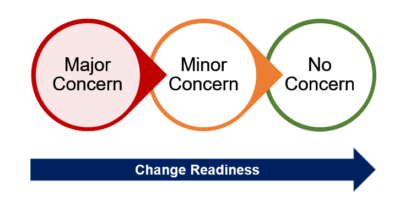
Change Readiness: This refers to an organization’s preparedness to embrace and implement change. Assessing change readiness involves understanding the current state, potential impacts of the change, and evaluating the willingness of employees to adapt. High change readiness indicates that the organization has the necessary resources, commitment, and mindset to support successful change.
Resistance to Change: This is the opposition that arises when individuals perceive that change threatens their status quo. Resistance can manifest as passive non-compliance, vocal opposition, or active sabotage. Managing resistance involves understanding its root causes and addressing concerns through transparent communication, stakeholder involvement, and demonstrating the benefits of change.
Theories of Organizational Change
The course introduces several influential theories that provide a structured approach to understanding how and why change occurs:
• Lewin’s Change Management Model: This model outlines three stages—Unfreeze, Change, and Refreeze—to guide organizations through the process of change by preparing for, implementing, and stabilizing new changes.
• Kotter’s 8-Step Change Model: Emphasizes the importance of leadership and communication throughout eight steps, from creating a sense of urgency to anchoring new approaches in the organizational culture.
• ADKAR Model: Focuses on the individual experience of change, highlighting five key stages—Awareness, Desire, Knowledge, Ability, and Reinforcement—to manage both the emotional and practical aspects of change.
Change Models and Frameworks
The course also explores structured methodologies such as McKinsey’s 7S Framework and the Burke-Litwin Change Model, which emphasize aligning internal elements and understanding the interaction between various organizational factors to support successful change initiatives.
Stages of Change and Building a Change-Ready Culture
Participants learn about the stages of change—Preparation, Implementation, and Sustainment—and how to build a culture that is ready for change. Emphasizing cultural assessment, transformation, and continuous improvement ensures that organizations can navigate uncertainties and embrace new opportunities.
Measuring Change Readiness
Assessing change readiness is critical for identifying obstacles, enhancing employee engagement, and ensuring successful implementation of change initiatives. By understanding and preparing for change readiness, organizations can minimize risks and achieve their strategic objectives effectively.
Overall, Course Manual 2 provides the necessary tools and knowledge to lead successful organizational transformations by equipping participants with both theoretical understanding and practical skills.

Chapter 3: Drivers of Transformation
Course Manual 3 of the Organizational Transformation Program focuses on understanding the key drivers that propel organizations to evolve and adapt. By mastering these drivers, participants will be able to anticipate and respond to changes in the business environment, ensuring their organizations remain competitive and agile. The manual combines theoretical knowledge with practical applications, offering insights that are directly applicable to real-world business contexts.
Technological Advancements in Organizational Transformation
Technological advancements are a major catalyst for organizational transformation, reshaping business models, improving operational efficiency, and revolutionizing customer interactions. Emerging technologies such as artificial intelligence (AI), blockchain, the Internet of Things (IoT), and big data are creating new opportunities across various industries. AI, for instance, enables automation of decision-making processes, personalized customer service, and enhanced data analysis. Blockchain offers secure, decentralized data management, enhancing transparency and security, particularly in finance and supply chain management. IoT facilitates real-time monitoring and efficiency improvements in sectors like manufacturing and smart cities. Big data analytics provide deep insights into customer behavior and market trends, supporting informed decision-making and personalized marketing strategies.
Digital transformation integrates these technologies into all business areas, fundamentally altering operations and value delivery. It often leads to new, more agile and customer-centric business models, exemplified by the rise of e-commerce and subscription services. Automation and robotics further enhance efficiency by handling repetitive tasks, improving precision, and freeing up employees for higher-value work, thereby driving productivity and innovation.
Market Changes Driving Organizational Transformation
Market changes compel organizations to adapt their strategies to remain relevant and competitive. Shifts in market demand, driven by evolving consumer preferences, force businesses to innovate and align with new consumer needs, such as the demand for sustainable and ethically sourced products. The entry of new competitors and exit of existing ones reshape market dynamics, requiring agility and strategic adjustments. Global market trends, including globalization and economic shifts, impact local markets by influencing supply chains, pricing, and competitive landscapes. Organizations must monitor these trends and respond proactively to capitalize on opportunities and mitigate risks.
Regulatory and Compliance Requirements in Organizational Transformation
Regulatory changes significantly impact organizations, often acting as catalysts for transformation. Compliance with regulations such as data privacy laws and environmental standards necessitates adjustments in processes, systems, and corporate strategies. Effective compliance strategies involve establishing robust compliance programs, conducting regular audits, and fostering a culture of ethical conduct. Risk management is crucial in navigating regulatory changes, requiring continuous monitoring and adaptation to new legal requirements to avoid penalties, protect reputation, and maintain stakeholder trust.
Economic Conditions and Organizational Transformation
Economic conditions, including economic cycles, inflation, and interest rates, shape how organizations adapt their strategies and operations. During recessions, companies may implement cost-cutting measures and restructure to maintain profitability, while economic booms provide opportunities for expansion and innovation. Inflation and fluctuating interest rates impact costs, pricing strategies, and investment decisions, requiring businesses to manage financial stability carefully. Global economic trends, such as trade dynamics and economic integration, influence local economies, demanding organizations adapt their supply chains and market strategies accordingly.
Customer Expectations and Behavior in Organizational Transformation
Customer expectations and behavior are central to driving organizational transformation. Understanding customer insights through data analytics, surveys, and feedback mechanisms allows organizations to design products and services that meet consumer needs. Enhancing the customer experience by optimizing interactions across all touchpoints builds loyalty and drives business success. Adopting customer-centric strategies, which prioritize customer outcomes over internal processes, ensures that organizations remain competitive by focusing on delivering value and personalized experiences.

Chapter 4: Agents of Change
Course Manual 4 of the Organizational Transformation Program focuses on the concept of Agents of Change, providing participants with a deep understanding of the forces that drive transformation within organizations. By identifying and leveraging these change agents, participants will be equipped to lead successful change initiatives and cultivate a culture of continuous improvement. The manual combines theoretical knowledge with practical insights applicable to real-world organizational settings.
Identifying Key Change Agents
Change agents play a vital role in successful organizational transformations by promoting, facilitating, and implementing changes that enhance processes, performance, and organizational culture. Identifying these agents is crucial as they can influence others, offer valuable insights, and help overcome resistance to change. Effective change agents typically possess strong leadership and communication skills, adaptability, problem-solving abilities, and a thorough understanding of the organization’s culture and values. Their empathy and emotional intelligence allow them to build trust and inspire their colleagues, essential for sustaining momentum during transformations.
Change agents can be categorized into different types. Internal change agents, such as managers and team leaders, have a deep understanding of the organization’s internal culture and dynamics, acting as intermediaries between leadership and employees. External change agents, like consultants and advisors, provide objective perspectives and innovative solutions, introducing best practices and challenging existing norms. Leadership change agents, including executives and senior leaders, set strategic directions and ensure that transformation efforts are supported and aligned with organizational goals. Informal change agents are influential individuals within the organization who advocate for change, motivate peers, and drive the adoption of new practices, even without formal leadership roles.

Analyzing the Impact of Change Agents
Evaluating the effectiveness of change agents involves assessing their impact on key areas such as employee engagement, communication, implementation success, innovation, and overall organizational performance. Effective change agents enhance employee morale and engagement, foster clear communication, and align employee efforts with organizational goals. They contribute to successful change implementation by maintaining timelines, meeting milestones, and managing resources efficiently, ensuring smooth transitions.
Furthermore, change agents drive innovation and adaptability, promoting the adoption of new technologies and processes that support continuous improvement. The ultimate measure of their impact is reflected in improved organizational outcomes, such as increased productivity, enhanced customer satisfaction, revenue growth, and strengthened market position.
Enhancing Organizational Agility
Organizational agility is crucial for responding to changing market conditions, technological advancements, and evolving customer expectations. An agile mindset involves embracing flexibility, continuous learning, empowerment, and collaboration. Fostering agility requires implementing agile methodologies, encouraging a culture of innovation, investing in ongoing training and development, enhancing communication, and cultivating responsive leadership. These practices ensure that organizations can quickly adapt to changes, capitalize on emerging opportunities, and maintain a competitive edge, ultimately driving long-term growth and resilience.
By focusing on these aspects, participants in the Organizational Transformation Program can effectively identify, analyze, and leverage change agents to drive successful transformation initiatives.

Chapter 5: Evaluating Organizational Performance
Course Manual 5 of the Organizational Transformation Program focuses on evaluating organizational performance through case studies. This manual aims to enhance participants’ ability to analyze real-world examples of organizational change, providing practical insights and strategies that can be applied to their own organizations. Combining theoretical knowledge with practical application, the manual prepares participants to lead successful transformation initiatives effectively.
Analytical Skills for Evaluating Case Studies
Analytical skills are vital for professionals leading organizational transformation initiatives. These skills enable individuals to break down complex situations, draw meaningful conclusions, and devise strategic solutions. Within the Organizational Transformation Program, enhancing analytical skills is crucial for critically evaluating case studies of organizational change. By improving these skills, participants can better understand the dynamics of change, identify patterns and trends, and apply learned strategies to their organizations. Analytical skills help participants systematically approach problems, assess leadership effectiveness, employee engagement, and operational efficiency, and understand the factors contributing to the success or failure of transformation efforts.
Criteria for Selecting Case Studies
Selecting appropriate case studies is essential for maximizing learning opportunities in the Organizational Transformation Program. Relevance is a primary criterion; case studies should align with participants’ industry, sector, or organizational context, making the learning experience relatable and meaningful. Timeliness is also crucial, as case studies should reflect current trends and challenges in organizational change, providing up-to-date insights. Including case studies of both successful and unsuccessful change initiatives offers a well-rounded perspective, allowing participants to learn from best practices and common pitfalls. This balanced approach equips participants with a comprehensive understanding of the complexities of organizational transformation.
Framework for Case Study Evaluation
A structured framework is essential for evaluating case studies systematically. This framework helps participants analyze change initiatives by focusing on specific elements such as context, objectives, strategies, challenges, outcomes, and lessons learned. Understanding the organizational context and background sets the stage for evaluation, while identifying the objectives and goals provides benchmarks for success. Analyzing the strategies and actions taken to achieve objectives highlights practical implementations and adaptation methods. Recognizing challenges and obstacles offers insights into risk management and adaptability, while evaluating outcomes and results helps gauge the effectiveness of change initiatives. Finally, extracting lessons learned and best practices ensures that the knowledge gained can guide future transformation efforts.
Lessons Learned and Best Practices
Studying case studies provides valuable insights into successful change initiatives. Common success factors include strong leadership, effective communication, and employee engagement, which create an environment conducive to change. Overcoming challenges often involves proactive strategies to address resistance, flexibility in approach, and support from change champions. Adapting best practices to fit the unique context of each organization is essential for ensuring relevance, effectiveness, and sustainability. Participants learn the importance of conducting a thorough analysis of their organization’s current state to identify which best practices are applicable and how to tailor them accordingly. By applying these lessons, participants can enhance their ability to lead successful change initiatives and drive continuous improvement within their organizations.

Chapter 6: Strategic Overhauls
Course Manual 6 of the Organizational Transformation Program focuses on strategic overhauls, a critical aspect of ensuring long-term success and sustainability in a rapidly changing business environment. This manual provides participants with a deep understanding of the necessity and mechanics of strategic overhauls, combining theoretical insights with practical applications to equip leaders to manage these comprehensive shifts effectively.
Identifying the Need for a Strategic Overhaul
Organizations must continuously assess their strategies to stay competitive and relevant in today’s dynamic business environment. Identifying when a strategic overhaul is necessary is critical for adapting to significant shifts in market conditions, technology, internal operations, or regulatory requirements.
Market Disruptions: Sudden changes in market conditions, such as shifts in consumer behavior, declining market share, or the emergence of disruptive competitors, can signal the need for a strategic overhaul. Organizations must realign their offerings and adapt to new competitive landscapes to maintain their market positions.
Technological Advances: Rapid technological innovation often necessitates a strategic overhaul. As new technologies emerge, organizations must adapt their operations, integrate digital tools, and invest in technological capabilities to remain competitive. Falling behind in technological adoption can lead to obsolescence.
Internal Inefficiencies: Operational inefficiencies, declining productivity, and misalignment among departments are indicators that a strategic overhaul may be required. Streamlining processes, restructuring organizational roles, and adopting new management practices are essential to improving performance and achieving strategic goals.
Regulatory Changes: New laws and compliance requirements can impact an organization’s strategic direction. A strategic overhaul may be necessary to ensure compliance, avoid legal penalties, and align with societal expectations. Organizations must proactively adapt their strategies to meet regulatory demands.

Components of a Strategic Overhaul Plan
A successful strategic overhaul requires a well-structured plan that includes the following components:
Vision and Mission Reassessment: Revisiting and potentially redefining the organization’s vision and mission to align with new strategic directions is essential. This reassessment ensures that the organization’s long-term goals are in sync with current market conditions and organizational priorities.
Objectives: Setting clear, measurable objectives guides the strategic overhaul process. These objectives should be specific, achievable, and aligned with the organization’s revised vision and mission. They provide a benchmark for tracking progress and measuring success.
Action Plans: Developing detailed action plans translates strategic objectives into specific steps needed for implementation. These plans outline key activities, timelines, and responsibilities, ensuring that everyone in the organization understands their role in the transformation process.
Resource Allocation: Effective resource allocation is critical to supporting strategic objectives. This involves budgeting, forecasting, and monitoring financial resources, ensuring that critical initiatives receive the necessary support. It also includes aligning human and technological resources with strategic priorities.
Aligning Organizational Resources
Aligning human, financial, and technological resources with the new strategy is crucial for a successful strategic overhaul:
Human Resources: Organizations must ensure that they have the right talent and that employees are aligned with the strategic direction. This involves upskilling existing staff, acquiring new talent, and engaging employees in the transformation process to build commitment and ownership.
Financial Resources: Allocating financial resources effectively is essential to support strategic objectives. Organizations should carefully assess their financial capabilities, budget for priority areas, and monitor expenditures to ensure that the overhaul is financially sustainable.
Technological Resources: Leveraging technology is critical for driving innovation and improving efficiency. Organizations must assess their current technology infrastructure, invest in new technologies, and develop a roadmap for technology integration that aligns with strategic goals.

Chapter 7: Transformation Factors
Course Manual 7 of the Organizational Transformation Program provides a comprehensive understanding of the various factors influencing organizational transformation. In today’s rapidly evolving business environment, organizations need to continuously adapt to survive and thrive. This course manual equips participants with in-depth knowledge of the key transformation factors, enabling them to anticipate challenges, leverage opportunities, and implement effective change initiatives aligned with their organizational goals.
Understanding the complex web of factors that impact organizational transformation is critical for leaders and managers responsible for guiding their organizations through change. These factors include both internal and external elements, such as market dynamics, technological advancements, regulatory pressures, and internal cultural shifts. Each of these elements can significantly influence an organization’s ability to adapt and transform, either by acting as a catalyst for change or by presenting barriers that need to be overcome. This course manual offers participants valuable insights into these driving forces, enabling them to develop more effective and resilient strategies for managing change.
A key objective of this course manual is to prepare participants to become proactive change leaders who can confidently lead their organizations through transformation. By gaining a comprehensive understanding of the various internal and external factors at play, participants will be able to identify potential risks and opportunities early on, make informed decisions, and tailor their change initiatives to meet their organizations’ specific needs. This proactive stance is essential for building organizational agility, fostering a culture of continuous improvement, and ensuring long-term success in a constantly changing environment.
Internal Organizational Factors
Internal factors within an organization significantly influence its capacity for transformation. These include organizational culture, leadership and management practices, employee engagement, organizational structure, and the availability of resources and capabilities. A culture that promotes innovation, openness, and adaptability can drive transformation by encouraging employees to embrace change. Strong leadership and effective management practices are critical for setting the vision, inspiring employees, and providing the necessary guidance and support throughout the transformation process. High levels of employee engagement ensure commitment and alignment with the organization’s goals, which is crucial for the successful implementation of change initiatives. An organization’s structure, including its hierarchies and communication channels, impacts its flexibility and responsiveness to change. Additionally, the availability of adequate resources—financial, technological, and human—ensures that transformation efforts are supported and sustainable.
External Factors Influencing Transformation
External factors also play a pivotal role in shaping organizational transformation. These include environmental, technological, economic, social, cultural, political, and legal influences. For instance, technological advancements necessitate continuous adaptation to remain competitive, while economic conditions can affect resource availability and market demand. Social and cultural shifts influence consumer behavior and expectations, requiring organizations to adjust their strategies accordingly. Political and legal factors, such as regulatory changes and compliance requirements, can drive organizations to reevaluate their operational practices. Understanding and responding to these external factors enables organizations to effectively navigate challenges, seize opportunities, and achieve long-term success.

Chapter 8: Tools for Leading Change
Effective change management is essential for successfully implementing transformation initiatives within organizations. In today’s dynamic business environment, companies must continuously adapt to new market conditions, technological advancements, regulatory changes, and evolving customer expectations. To manage these changes effectively, organizations can utilize a range of change management tools that facilitate smooth transitions from the current state to the desired future state. This summary covers essential tools and strategies, including change readiness assessments, stakeholder analysis, engagement tools, and communication planning techniques, all aimed at supporting, guiding, and sustaining organizational change.
Change Management Tools
Change management tools offer structured approaches to managing the people side of change. Key frameworks like Kotter’s 8-Step Process for Leading Change and the ADKAR model are commonly used. Kotter’s model provides a sequential, step-by-step guide to implementing change, focusing on creating a sense of urgency, building a guiding coalition, and consolidating gains to anchor new approaches in the organization’s culture. The ADKAR model emphasizes individual readiness and adoption of new behaviors, helping leaders manage resistance and support employees through the change process. These frameworks help organizations systematically address challenges such as employee uncertainty, lack of engagement, and resistance.

Change Readiness Assessment Tools
Assessing an organization’s readiness for change is crucial to anticipate obstacles, tailor strategies, and ensure successful implementation. Common tools for change readiness assessment include surveys, questionnaires, interviews, focus groups, and a Change Readiness Index (CRI).
Surveys and Questionnaires: These tools provide quantitative data on employee attitudes, awareness, and support for the change initiative. They help identify areas of concern and gauge overall readiness. Questions might address topics like understanding of the change, perceived impacts, and openness to new ways of working.
Interviews and Focus Groups: These qualitative methods offer deeper insights into organizational readiness by allowing stakeholders to express concerns and suggestions in a more detailed and nuanced way. Interviews can be conducted with key leaders and influencers, while focus groups encourage open dialogue among employees, revealing diverse perspectives and potential resistance points.
Change Readiness Index (CRI): This quantitative tool aggregates data across various readiness indicators, such as leadership support, communication effectiveness, and resource availability, to provide an overall score of organizational preparedness. This score helps track readiness over time and highlights areas needing attention.
Stakeholder Analysis and Engagement Tools
Effective stakeholder engagement is critical for successful change management. Stakeholder mapping, stakeholder analysis matrices, and tailored engagement strategies help identify, categorize, and engage key stakeholders.
Stakeholder Mapping: This tool helps identify all relevant stakeholders, assessing their influence and interest in the change initiative. By plotting stakeholders on a matrix based on these dimensions, organizations can prioritize their engagement efforts, focusing on those with the highest impact.
Stakeholder Analysis Matrix: This tool categorizes stakeholders into groups based on their support and influence levels, guiding targeted engagement strategies. Key stakeholders who are both influential and supportive should be actively involved in decision-making, while strategies to mitigate resistance should be developed for those with high influence but low support.
Engagement Strategies: Tailored communication plans, regular updates, involvement in decision-making processes, and feedback mechanisms are vital for building trust and securing stakeholder buy-in. By addressing stakeholder concerns and demonstrating the benefits of change, organizations can foster a supportive environment.
Communication Planning Tools
Communication is a vital component of change management. Tools such as communication plan templates, message mapping, and feedback mechanisms are crucial for ensuring clear, consistent, and two-way communication.

Chapter 9: Interactive Learning Sessions
Interactive learning is a dynamic educational approach that involves actively engaging participants through discussions, activities, and collaborative exercises. Unlike traditional passive learning methods, which often rely on one-way communication and memorization, interactive learning emphasizes hands-on participation and practical application of knowledge. This approach has been proven to enhance information retention, foster critical thinking, and improve the practical application of concepts. In the context of organizational change, interactive learning is essential for equipping individuals and teams with the necessary skills and insights to manage complex transformations effectively.
The benefits of interactive learning are numerous. It increases participant engagement by requiring active involvement, which in turn enhances motivation and commitment to learning. Collaborative exercises promote teamwork and build stronger relationships among team members, crucial for fostering a culture of cooperation and shared responsibility. Additionally, active participation significantly improves knowledge retention and the ability to recall and apply information in real-world scenarios. By engaging participants in exercises that mimic real-life challenges, interactive learning helps bridge the gap between theory and practice, making the learning process more relevant and impactful.
Designing effective interactive learning sessions involves setting clear learning objectives, developing engaging content, planning interactive activities, and incorporating assessment and feedback mechanisms. Learning objectives should be specific, measurable, achievable, relevant, and time-bound (SMART). Content should be tailored to the needs of the audience, incorporating real-world examples and multimedia elements to enhance understanding. Activities like group discussions, role-playing, and simulations should encourage active participation and collaboration. Continuous assessment and feedback ensure that learning outcomes are achieved and help refine future sessions.
Technology plays a crucial role in enhancing interactive learning. E-learning platforms offer flexibility and scalability, enabling participants to access training at their own pace. Virtual classrooms provide a digital space for live interaction, supporting remote learning and global collaboration. Interactive tools and software, such as polling apps and collaborative platforms, make sessions more engaging and interactive. Gamification, incorporating game elements like points and leaderboards, increases motivation and makes learning more enjoyable.
Despite its benefits, interactive learning faces several challenges. Participant resistance may arise from discomfort with new methods or lack of confidence. Solutions include creating a supportive environment, using icebreakers, and emphasizing the value of interactive methods. Technology barriers, such as limited access to devices or unfamiliarity with digital tools, can be mitigated by ensuring accessible, user-friendly technology and providing adequate support. Facilitation challenges require setting clear ground rules and managing group dynamics effectively. Resource constraints can be addressed by finding cost-effective solutions, optimizing existing resources, and prioritizing essential content.
By understanding and addressing these challenges, organizations can maximize the effectiveness of interactive learning and drive successful change initiatives.

Chapter 10: Transformation Roadmap
In today’s dynamic business environment, organizations must be agile and adaptable to thrive. A well-structured transformation roadmap is essential for guiding organizations through change and aligning transformation efforts with strategic goals. Course Manual 10 of the Organizational Transformation Program provides participants with the tools and insights needed to develop a comprehensive and actionable transformation roadmap. This roadmap acts as a strategic blueprint, outlining a clear vision for the future, detailing the steps necessary to achieve desired outcomes, and aligning resources and stakeholders towards common objectives.
A transformation roadmap is more than a high-level plan; it is a detailed guide that outlines specific initiatives, timelines, responsibilities, and key performance indicators (KPIs). It helps organizations anticipate challenges, allocate resources efficiently, and track progress towards transformation objectives. By providing a structured pathway, a roadmap ensures that every part of the organization, from leadership to frontline employees, works in unison to achieve the desired change. This systematic approach reduces the risks associated with transformation, minimizes uncertainty, and enhances the organization’s ability to respond to both internal and external pressures effectively.
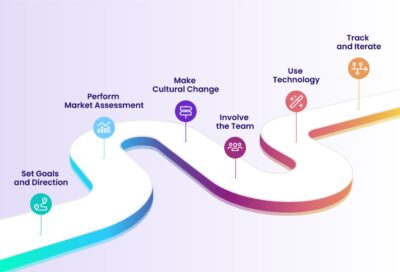
Key Components of a Transformation Roadmap
1. Vision and Mission: These statements define the organization’s long-term aspirations and purpose, providing a foundation for transformation. The vision offers a future outlook, while the mission outlines the organization’s core purpose and values, ensuring alignment with strategic goals.
2. Objectives and Goals: Clear, measurable objectives and goals guide the transformation process. They should be SMART (Specific, Measurable, Achievable, Relevant, Time-bound) to provide clarity and focus, facilitating prioritization of initiatives and resource allocation.
3. Milestones and Deliverables: Milestones are significant progress markers, while deliverables are tangible outputs required to reach each milestone. Identifying these helps keep the transformation on track and provides opportunities to celebrate successes and adjust strategies as needed.
4. Resources and Responsibilities: Adequate allocation of financial, human, and technological resources is crucial. Defining clear responsibilities ensures that all involved parties understand their roles and work efficiently towards shared goals.
5. Timeline and Schedule: A detailed timeline outlines when each phase of the transformation will occur. It includes start and end dates for key activities, milestones, and deliverables, promoting effective time management and coordination across departments.
6. Monitoring and Evaluation: Establishing robust monitoring and evaluation mechanisms is critical for assessing the progress and effectiveness of transformation efforts. Regular monitoring allows for timely adjustments, while evaluation helps ensure that the transformation remains on track to meet its desired outcomes.
Conclusion
A well-designed transformation roadmap incorporates a clear vision and mission, well-defined objectives and goals, specific milestones and deliverables, effective resource allocation, a structured timeline, and robust monitoring and evaluation mechanisms. These components collectively provide a strategic blueprint for guiding organizations through complex transformations, aligning efforts with strategic goals, and achieving sustainable success. By carefully planning and implementing these elements, organizations can navigate the challenges of change and achieve their transformation objectives effectively.

Chapter 11: Measuring Success
Course Manual 11 of the Organizational Transformation Program emphasizes the critical process of measuring and evaluating the success of transformation initiatives. This manual provides a structured framework for participants to systematically assess the impact of organizational changes. Effective measurement and evaluation are essential for understanding whether transformation efforts are achieving their desired outcomes, ensuring accountability, and fostering continuous improvement.
Importance of Measuring and Evaluating Success
Measuring and evaluating success is fundamental for tracking progress and achieving strategic goals in any transformation effort. These processes ensure accountability by establishing clear metrics and regularly assessing performance. This accountability keeps teams aligned with the organization’s objectives and helps identify responsible parties for specific tasks, thus fostering ownership and commitment. Regular evaluations also provide feedback that maintains focus and momentum throughout the transformation journey.
Evaluation is vital for informed decision-making. Data-driven insights derived from systematic evaluation allow leaders to make strategic decisions based on factual evidence. This approach helps in understanding what works, identifying areas needing adjustment, and minimizing risks, ultimately enhancing the potential for successful transformation outcomes.
Continuous improvement is another key benefit of systematic measurement and evaluation. By regularly reviewing progress, organizations can learn from both successes and failures, refining and optimizing strategies to remain competitive. This feedback loop supports a culture of adaptability and innovation, ensuring that transformation initiatives remain responsive to evolving challenges and opportunities.
Engaging stakeholders is also crucial in the measurement and evaluation process. Clear evidence of success builds transparency and trust among employees, customers, investors, and partners. Demonstrating progress through credible evaluation results fosters stakeholder support and commitment, essential for the long-term sustainability of transformation efforts.
Identifying Key Metrics and Indicators
Identifying the right metrics and indicators is a foundational step in evaluating the success of organizational transformation. Key Performance Indicators (KPIs) should be specific, measurable, and aligned with transformation objectives. Understanding the difference between leading indicators (predictive measures for proactive strategy adjustments) and lagging indicators (retrospective measures showing past performance) provides a balanced view of both current and future performance.
Balancing quantitative and qualitative metrics is crucial for a comprehensive evaluation. While quantitative metrics provide objective data on financial performance and productivity, qualitative metrics offer insights into employee engagement and customer satisfaction, capturing the human impact of transformation initiatives. Additionally, benchmarking against industry standards and best practices allows organizations to measure their performance relative to competitors, setting realistic goals and identifying areas for improvement.
Developing an Evaluation Framework
A robust evaluation framework is essential for systematically assessing the effectiveness of transformation initiatives. This framework should include clearly defined objectives, relevant metrics, effective data collection methods, and rigorous analysis techniques. Customizing the framework to fit the organization’s specific needs and aligning it with strategic goals ensures its relevance and effectiveness. Integration with strategic planning facilitates continuous monitoring, adaptation, and improvement, promoting a culture of ongoing development.
In summary, the systematic measurement and evaluation of transformation success are vital for ensuring accountability, informed decision-making, continuous improvement, and stakeholder engagement. By employing comprehensive metrics, structured evaluation frameworks, and robust data analysis techniques, organizations can drive successful transformation, achieve strategic objectives, and create lasting value.

Chapter 12: Accelerating Continuous Transformation
Course Manual 12 of the Organizational Transformation Program focuses on the crucial task of Accelerating Continuous Transformation. Serving as a bridge between foundational knowledge from earlier modules and the more advanced concepts that will be explored later, this manual aims to ensure participants can absorb new information and apply it effectively within their organizations to foster continuous improvement and innovation.
The primary objectives of this course manual include reinforcing key concepts and skills from previous modules to solidify understanding and retention. It also assists participants in identifying specific areas for development to enhance their learning experience and sets clear learning objectives for upcoming modules to ensure focused engagement. Additionally, the manual provides tools for effective strategic planning, enabling participants to apply advanced concepts practically. A significant emphasis is placed on cultivating a growth mindset, which values continuous learning and adaptability, both of which are essential for successful organizational transformation.
The review of key concepts and skills is a vital aspect of this manual, preparing participants for more advanced topics. This section covers the understanding of organizational evolution, recognizing when and why changes are necessary, and the forces that drive these changes. It highlights the fundamental principles of change, such as vision alignment, stakeholder engagement, effective communication, and resistance management, all of which are critical for sustainable transformation. Furthermore, it discusses the importance of identifying both internal and external drivers of change and the role of effective change agents in initiating and managing these transformations. The section also provides tools for planning and implementing strategic overhauls, ensuring that changes in strategy, structure, or operations align with the organization’s overall goals. Finally, it emphasizes the need for robust evaluation and measurement frameworks, using key performance indicators (KPIs), benchmarking, and feedback mechanisms to assess the success of transformation initiatives.

A crucial part of this manual involves encouraging participants to reflect on their learning journey, identify strengths and weaknesses, and set specific, measurable developmental goals. Through self-assessment, participants can honestly evaluate their current knowledge and skills, identifying areas that need improvement. Feedback from peers, mentors, and supervisors offers valuable external perspectives, helping to validate self-assessment findings. Setting SMART (Specific, Measurable, Achievable, Relevant, Time-bound) goals focuses efforts on targeted areas for development, enhancing leadership capabilities.
Strategic planning for continued learning is emphasized, with participants encouraged to create structured learning plans that align with both personal growth and organizational objectives. This involves designing clear learning pathways, allocating necessary resources such as time, funding, and mentorship, and setting milestones to track progress and adjust learning strategies as needed.
Fostering a growth mindset is highlighted as essential for both personal and organizational success. This mindset involves believing that abilities can be developed through effort and learning. Overcoming a fixed mindset is achieved by embracing challenges, learning from failures, and viewing effort as a path to mastery. Promoting a culture of continuous learning and adaptability is crucial for driving innovation and achieving long-term success.
The manual also prepares participants for advanced topics, providing strategies to handle more complex subjects effectively. By anticipating challenges, employing advanced learning techniques such as mind mapping, and leveraging previous knowledge, participants are better equipped to engage with advanced topics confidently and apply these concepts in real-world scenarios.
Curriculum
Organizational Transformation – Workshop 1 – Organizational Evolution
- Introduction to Organizational Evolution
- Fundamental Principles
- Drivers of Transformation
- Agents of Change
- Evaluating Organizational Performance
- Strategic Overhauls
- Transformation Factors
- Tools for Leading Change
- Interactive Learning Sessions
- Transformation Roadmap
- Measuring Success
- Accelerating Continuous Transformation
Distance Learning
Introduction
Welcome to Appleton Greene and thank you for enrolling on the Organizational Transformation corporate training program. You will be learning through our unique facilitation via distance-learning method, which will enable you to practically implement everything that you learn academically. The methods and materials used in your program have been designed and developed to ensure that you derive the maximum benefits and enjoyment possible. We hope that you find the program challenging and fun to do. However, if you have never been a distance-learner before, you may be experiencing some trepidation at the task before you. So we will get you started by giving you some basic information and guidance on how you can make the best use of the modules, how you should manage the materials and what you should be doing as you work through them. This guide is designed to point you in the right direction and help you to become an effective distance-learner. Take a few hours or so to study this guide and your guide to tutorial support for students, while making notes, before you start to study in earnest.
Study environment
You will need to locate a quiet and private place to study, preferably a room where you can easily be isolated from external disturbances or distractions. Make sure the room is well-lit and incorporates a relaxed, pleasant feel. If you can spoil yourself within your study environment, you will have much more of a chance to ensure that you are always in the right frame of mind when you do devote time to study. For example, a nice fire, the ability to play soft soothing background music, soft but effective lighting, perhaps a nice view if possible and a good size desk with a comfortable chair. Make sure that your family know when you are studying and understand your study rules. Your study environment is very important. The ideal situation, if at all possible, is to have a separate study, which can be devoted to you. If this is not possible then you will need to pay a lot more attention to developing and managing your study schedule, because it will affect other people as well as yourself. The better your study environment, the more productive you will be.
Study tools & rules
Try and make sure that your study tools are sufficient and in good working order. You will need to have access to a computer, scanner and printer, with access to the internet. You will need a very comfortable chair, which supports your lower back, and you will need a good filing system. It can be very frustrating if you are spending valuable study time trying to fix study tools that are unreliable, or unsuitable for the task. Make sure that your study tools are up to date. You will also need to consider some study rules. Some of these rules will apply to you and will be intended to help you to be more disciplined about when and how you study. This distance-learning guide will help you and after you have read it you can put some thought into what your study rules should be. You will also need to negotiate some study rules for your family, friends or anyone who lives with you. They too will need to be disciplined in order to ensure that they can support you while you study. It is important to ensure that your family and friends are an integral part of your study team. Having their support and encouragement can prove to be a crucial contribution to your successful completion of the program. Involve them in as much as you can.
Successful distance-learning
Distance-learners are freed from the necessity of attending regular classes or workshops, since they can study in their own way, at their own pace and for their own purposes. But unlike traditional internal training courses, it is the student’s responsibility, with a distance-learning program, to ensure that they manage their own study contribution. This requires strong self-discipline and self-motivation skills and there must be a clear will to succeed. Those students who are used to managing themselves, are good at managing others and who enjoy working in isolation, are more likely to be good distance-learners. It is also important to be aware of the main reasons why you are studying and of the main objectives that you are hoping to achieve as a result. You will need to remind yourself of these objectives at times when you need to motivate yourself. Never lose sight of your long-term goals and your short-term objectives. There is nobody available here to pamper you, or to look after you, or to spoon-feed you with information, so you will need to find ways to encourage and appreciate yourself while you are studying. Make sure that you chart your study progress, so that you can be sure of your achievements and re-evaluate your goals and objectives regularly.
Self-assessment
Appleton Greene training programs are in all cases post-graduate programs. Consequently, you should already have obtained a business-related degree and be an experienced learner. You should therefore already be aware of your study strengths and weaknesses. For example, which time of the day are you at your most productive? Are you a lark or an owl? What study methods do you respond to the most? Are you a consistent learner? How do you discipline yourself? How do you ensure that you enjoy yourself while studying? It is important to understand yourself as a learner and so some self-assessment early on will be necessary if you are to apply yourself correctly. Perform a SWOT analysis on yourself as a student. List your internal strengths and weaknesses as a student and your external opportunities and threats. This will help you later on when you are creating a study plan. You can then incorporate features within your study plan that can ensure that you are playing to your strengths, while compensating for your weaknesses. You can also ensure that you make the most of your opportunities, while avoiding the potential threats to your success.
Accepting responsibility as a student
Training programs invariably require a significant investment, both in terms of what they cost and in the time that you need to contribute to study and the responsibility for successful completion of training programs rests entirely with the student. This is never more apparent than when a student is learning via distance-learning. Accepting responsibility as a student is an important step towards ensuring that you can successfully complete your training program. It is easy to instantly blame other people or factors when things go wrong. But the fact of the matter is that if a failure is your failure, then you have the power to do something about it, it is entirely in your own hands. If it is always someone else’s failure, then you are powerless to do anything about it. All students study in entirely different ways, this is because we are all individuals and what is right for one student, is not necessarily right for another. In order to succeed, you will have to accept personal responsibility for finding a way to plan, implement and manage a personal study plan that works for you. If you do not succeed, you only have yourself to blame.
Planning
By far the most critical contribution to stress, is the feeling of not being in control. In the absence of planning we tend to be reactive and can stumble from pillar to post in the hope that things will turn out fine in the end. Invariably they don’t! In order to be in control, we need to have firm ideas about how and when we want to do things. We also need to consider as many possible eventualities as we can, so that we are prepared for them when they happen. Prescriptive Change, is far easier to manage and control, than Emergent Change. The same is true with distance-learning. It is much easier and much more enjoyable, if you feel that you are in control and that things are going to plan. Even when things do go wrong, you are prepared for them and can act accordingly without any unnecessary stress. It is important therefore that you do take time to plan your studies properly.
Management
Once you have developed a clear study plan, it is of equal importance to ensure that you manage the implementation of it. Most of us usually enjoy planning, but it is usually during implementation when things go wrong. Targets are not met and we do not understand why. Sometimes we do not even know if targets are being met. It is not enough for us to conclude that the study plan just failed. If it is failing, you will need to understand what you can do about it. Similarly if your study plan is succeeding, it is still important to understand why, so that you can improve upon your success. You therefore need to have guidelines for self-assessment so that you can be consistent with performance improvement throughout the program. If you manage things correctly, then your performance should constantly improve throughout the program.
Study objectives & tasks
The first place to start is developing your program objectives. These should feature your reasons for undertaking the training program in order of priority. Keep them succinct and to the point in order to avoid confusion. Do not just write the first things that come into your head because they are likely to be too similar to each other. Make a list of possible departmental headings, such as: Customer Service; E-business; Finance; Globalization; Human Resources; Technology; Legal; Management; Marketing and Production. Then brainstorm for ideas by listing as many things that you want to achieve under each heading and later re-arrange these things in order of priority. Finally, select the top item from each department heading and choose these as your program objectives. Try and restrict yourself to five because it will enable you to focus clearly. It is likely that the other things that you listed will be achieved if each of the top objectives are achieved. If this does not prove to be the case, then simply work through the process again.
Study forecast
As a guide, the Appleton Greene Organizational Transformation corporate training program should take 12-18 months to complete, depending upon your availability and current commitments. The reason why there is such a variance in time estimates is because every student is an individual, with differing productivity levels and different commitments. These differentiations are then exaggerated by the fact that this is a distance-learning program, which incorporates the practical integration of academic theory as an as a part of the training program. Consequently all of the project studies are real, which means that important decisions and compromises need to be made. You will want to get things right and will need to be patient with your expectations in order to ensure that they are. We would always recommend that you are prudent with your own task and time forecasts, but you still need to develop them and have a clear indication of what are realistic expectations in your case. With reference to your time planning: consider the time that you can realistically dedicate towards study with the program every week; calculate how long it should take you to complete the program, using the guidelines featured here; then break the program down into logical modules and allocate a suitable proportion of time to each of them, these will be your milestones; you can create a time plan by using a spreadsheet on your computer, or a personal organizer such as MS Outlook, you could also use a financial forecasting software; break your time forecasts down into manageable chunks of time, the more specific you can be, the more productive and accurate your time management will be; finally, use formulas where possible to do your time calculations for you, because this will help later on when your forecasts need to change in line with actual performance. With reference to your task planning: refer to your list of tasks that need to be undertaken in order to achieve your program objectives; with reference to your time plan, calculate when each task should be implemented; remember that you are not estimating when your objectives will be achieved, but when you will need to focus upon implementing the corresponding tasks; you also need to ensure that each task is implemented in conjunction with the associated training modules which are relevant; then break each single task down into a list of specific to do’s, say approximately ten to do’s for each task and enter these into your study plan; once again you could use MS Outlook to incorporate both your time and task planning and this could constitute your study plan; you could also use a project management software like MS Project. You should now have a clear and realistic forecast detailing when you can expect to be able to do something about undertaking the tasks to achieve your program objectives.
Performance management
It is one thing to develop your study forecast, it is quite another to monitor your progress. Ultimately it is less important whether you achieve your original study forecast and more important that you update it so that it constantly remains realistic in line with your performance. As you begin to work through the program, you will begin to have more of an idea about your own personal performance and productivity levels as a distance-learner. Once you have completed your first study module, you should re-evaluate your study forecast for both time and tasks, so that they reflect your actual performance level achieved. In order to achieve this you must first time yourself while training by using an alarm clock. Set the alarm for hourly intervals and make a note of how far you have come within that time. You can then make a note of your actual performance on your study plan and then compare your performance against your forecast. Then consider the reasons that have contributed towards your performance level, whether they are positive or negative and make a considered adjustment to your future forecasts as a result. Given time, you should start achieving your forecasts regularly.
With reference to time management: time yourself while you are studying and make a note of the actual time taken in your study plan; consider your successes with time-efficiency and the reasons for the success in each case and take this into consideration when reviewing future time planning; consider your failures with time-efficiency and the reasons for the failures in each case and take this into consideration when reviewing future time planning; re-evaluate your study forecast in relation to time planning for the remainder of your training program to ensure that you continue to be realistic about your time expectations. You need to be consistent with your time management, otherwise you will never complete your studies. This will either be because you are not contributing enough time to your studies, or you will become less efficient with the time that you do allocate to your studies. Remember, if you are not in control of your studies, they can just become yet another cause of stress for you.
With reference to your task management: time yourself while you are studying and make a note of the actual tasks that you have undertaken in your study plan; consider your successes with task-efficiency and the reasons for the success in each case; take this into consideration when reviewing future task planning; consider your failures with task-efficiency and the reasons for the failures in each case and take this into consideration when reviewing future task planning; re-evaluate your study forecast in relation to task planning for the remainder of your training program to ensure that you continue to be realistic about your task expectations. You need to be consistent with your task management, otherwise you will never know whether you are achieving your program objectives or not.
Keeping in touch
You will have access to qualified and experienced professors and tutors who are responsible for providing tutorial support for your particular training program. So don’t be shy about letting them know how you are getting on. We keep electronic records of all tutorial support emails so that professors and tutors can review previous correspondence before considering an individual response. It also means that there is a record of all communications between you and your professors and tutors and this helps to avoid any unnecessary duplication, misunderstanding, or misinterpretation. If you have a problem relating to the program, share it with them via email. It is likely that they have come across the same problem before and are usually able to make helpful suggestions and steer you in the right direction. To learn more about when and how to use tutorial support, please refer to the Tutorial Support section of this student information guide. This will help you to ensure that you are making the most of tutorial support that is available to you and will ultimately contribute towards your success and enjoyment with your training program.
Work colleagues and family
You should certainly discuss your program study progress with your colleagues, friends and your family. Appleton Greene training programs are very practical. They require you to seek information from other people, to plan, develop and implement processes with other people and to achieve feedback from other people in relation to viability and productivity. You will therefore have plenty of opportunities to test your ideas and enlist the views of others. People tend to be sympathetic towards distance-learners, so don’t bottle it all up in yourself. Get out there and share it! It is also likely that your family and colleagues are going to benefit from your labors with the program, so they are likely to be much more interested in being involved than you might think. Be bold about delegating work to those who might benefit themselves. This is a great way to achieve understanding and commitment from people who you may later rely upon for process implementation. Share your experiences with your friends and family.
Making it relevant
The key to successful learning is to make it relevant to your own individual circumstances. At all times you should be trying to make bridges between the content of the program and your own situation. Whether you achieve this through quiet reflection or through interactive discussion with your colleagues, client partners or your family, remember that it is the most important and rewarding aspect of translating your studies into real self-improvement. You should be clear about how you want the program to benefit you. This involves setting clear study objectives in relation to the content of the course in terms of understanding, concepts, completing research or reviewing activities and relating the content of the modules to your own situation. Your objectives may understandably change as you work through the program, in which case you should enter the revised objectives on your study plan so that you have a permanent reminder of what you are trying to achieve, when and why.
Distance-learning check-list
Prepare your study environment, your study tools and rules.
Undertake detailed self-assessment in terms of your ability as a learner.
Create a format for your study plan.
Consider your study objectives and tasks.
Create a study forecast.
Assess your study performance.
Re-evaluate your study forecast.
Be consistent when managing your study plan.
Use your Appleton Greene Certified Learning Provider (CLP) for tutorial support.
Make sure you keep in touch with those around you.

Tutorial Support
Programs
Appleton Greene uses standard and bespoke corporate training programs as vessels to transfer business process improvement knowledge into the heart of our clients’ organizations. Each individual program focuses upon the implementation of a specific business process, which enables clients to easily quantify their return on investment. There are hundreds of established Appleton Greene corporate training products now available to clients within customer services, e-business, finance, globalization, human resources, information technology, legal, management, marketing and production. It does not matter whether a client’s employees are located within one office, or an unlimited number of international offices, we can still bring them together to learn and implement specific business processes collectively. Our approach to global localization enables us to provide clients with a truly international service with that all important personal touch. Appleton Greene corporate training programs can be provided virtually or locally and they are all unique in that they individually focus upon a specific business function. They are implemented over a sustainable period of time and professional support is consistently provided by qualified learning providers and specialist consultants.
Support available
You will have a designated Certified Learning Provider (CLP) and an Accredited Consultant and we encourage you to communicate with them as much as possible. In all cases tutorial support is provided online because we can then keep a record of all communications to ensure that tutorial support remains consistent. You would also be forwarding your work to the tutorial support unit for evaluation and assessment. You will receive individual feedback on all of the work that you undertake on a one-to-one basis, together with specific recommendations for anything that may need to be changed in order to achieve a pass with merit or a pass with distinction and you then have as many opportunities as you may need to re-submit project studies until they meet with the required standard. Consequently the only reason that you should really fail (CLP) is if you do not do the work. It makes no difference to us whether a student takes 12 months or 18 months to complete the program, what matters is that in all cases the same quality standard will have been achieved.
Support Process
Please forward all of your future emails to the designated (CLP) Tutorial Support Unit email address that has been provided and please do not duplicate or copy your emails to other AGC email accounts as this will just cause unnecessary administration. Please note that emails are always answered as quickly as possible but you will need to allow a period of up to 20 business days for responses to general tutorial support emails during busy periods, because emails are answered strictly within the order in which they are received. You will also need to allow a period of up to 30 business days for the evaluation and assessment of project studies. This does not include weekends or public holidays. Please therefore kindly allow for this within your time planning. All communications are managed online via email because it enables tutorial service support managers to review other communications which have been received before responding and it ensures that there is a copy of all communications retained on file for future reference. All communications will be stored within your personal (CLP) study file here at Appleton Greene throughout your designated study period. If you need any assistance or clarification at any time, please do not hesitate to contact us by forwarding an email and remember that we are here to help. If you have any questions, please list and number your questions succinctly and you can then be sure of receiving specific answers to each and every query.
Time Management
It takes approximately 1 Year to complete the Organizational Transformation corporate training program, incorporating 12 x 6-hour monthly workshops. Each student will also need to contribute approximately 4 hours per week over 1 Year of their personal time. Students can study from home or work at their own pace and are responsible for managing their own study plan. There are no formal examinations and students are evaluated and assessed based upon their project study submissions, together with the quality of their internal analysis and supporting documents. They can contribute more time towards study when they have the time to do so and can contribute less time when they are busy. All students tend to be in full time employment while studying and the Organizational Transformation program is purposely designed to accommodate this, so there is plenty of flexibility in terms of time management. It makes no difference to us at Appleton Greene, whether individuals take 12-18 months to complete this program. What matters is that in all cases the same standard of quality will have been achieved with the standard and bespoke programs that have been developed.
Distance Learning Guide
The distance learning guide should be your first port of call when starting your training program. It will help you when you are planning how and when to study, how to create the right environment and how to establish the right frame of mind. If you can lay the foundations properly during the planning stage, then it will contribute to your enjoyment and productivity while training later. The guide helps to change your lifestyle in order to accommodate time for study and to cultivate good study habits. It helps you to chart your progress so that you can measure your performance and achieve your goals. It explains the tools that you will need for study and how to make them work. It also explains how to translate academic theory into practical reality. Spend some time now working through your distance learning guide and make sure that you have firm foundations in place so that you can make the most of your distance learning program. There is no requirement for you to attend training workshops or classes at Appleton Greene offices. The entire program is undertaken online, program course manuals and project studies are administered via the Appleton Greene web site and via email, so you are able to study at your own pace and in the comfort of your own home or office as long as you have a computer and access to the internet.
How To Study
The how to study guide provides students with a clear understanding of the Appleton Greene facilitation via distance learning training methods and enables students to obtain a clear overview of the training program content. It enables students to understand the step-by-step training methods used by Appleton Greene and how course manuals are integrated with project studies. It explains the research and development that is required and the need to provide evidence and references to support your statements. It also enables students to understand precisely what will be required of them in order to achieve a pass with merit and a pass with distinction for individual project studies and provides useful guidance on how to be innovative and creative when developing your Unique Program Proposition (UPP).
Tutorial Support
Tutorial support for the Appleton Greene Organizational Transformation corporate training program is provided online either through the Appleton Greene Client Support Portal (CSP), or via email. All tutorial support requests are facilitated by a designated Program Administration Manager (PAM). They are responsible for deciding which professor or tutor is the most appropriate option relating to the support required and then the tutorial support request is forwarded onto them. Once the professor or tutor has completed the tutorial support request and answered any questions that have been asked, this communication is then returned to the student via email by the designated Program Administration Manager (PAM). This enables all tutorial support, between students, professors and tutors, to be facilitated by the designated Program Administration Manager (PAM) efficiently and securely through the email account. You will therefore need to allow a period of up to 20 business days for responses to general support queries and up to 30 business days for the evaluation and assessment of project studies, because all tutorial support requests are answered strictly within the order in which they are received. This does not include weekends or public holidays. Consequently you need to put some thought into the management of your tutorial support procedure in order to ensure that your study plan is feasible and to obtain the maximum possible benefit from tutorial support during your period of study. Please retain copies of your tutorial support emails for future reference. Please ensure that ALL of your tutorial support emails are set out using the format as suggested within your guide to tutorial support. Your tutorial support emails need to be referenced clearly to the specific part of the course manual or project study which you are working on at any given time. You also need to list and number any questions that you would like to ask, up to a maximum of five questions within each tutorial support email. Remember the more specific you can be with your questions the more specific your answers will be too and this will help you to avoid any unnecessary misunderstanding, misinterpretation, or duplication. The guide to tutorial support is intended to help you to understand how and when to use support in order to ensure that you get the most out of your training program. Appleton Greene training programs are designed to enable you to do things for yourself. They provide you with a structure or a framework and we use tutorial support to facilitate students while they practically implement what they learn. In other words, we are enabling students to do things for themselves. The benefits of distance learning via facilitation are considerable and are much more sustainable in the long-term than traditional short-term knowledge sharing programs. Consequently you should learn how and when to use tutorial support so that you can maximize the benefits from your learning experience with Appleton Greene. This guide describes the purpose of each training function and how to use them and how to use tutorial support in relation to each aspect of the training program. It also provides useful tips and guidance with regard to best practice.
Tutorial Support Tips
Students are often unsure about how and when to use tutorial support with Appleton Greene. This Tip List will help you to understand more about how to achieve the most from using tutorial support. Refer to it regularly to ensure that you are continuing to use the service properly. Tutorial support is critical to the success of your training experience, but it is important to understand when and how to use it in order to maximize the benefit that you receive. It is no coincidence that those students who succeed are those that learn how to be positive, proactive and productive when using tutorial support.
Be positive and friendly with your tutorial support emails
Remember that if you forward an email to the tutorial support unit, you are dealing with real people. “Do unto others as you would expect others to do unto you”. If you are positive, complimentary and generally friendly in your emails, you will generate a similar response in return. This will be more enjoyable, productive and rewarding for you in the long-term.
Think about the impression that you want to create
Every time that you communicate, you create an impression, which can be either positive or negative, so put some thought into the impression that you want to create. Remember that copies of all tutorial support emails are stored electronically and tutors will always refer to prior correspondence before responding to any current emails. Over a period of time, a general opinion will be arrived at in relation to your character, attitude and ability. Try to manage your own frustrations, mood swings and temperament professionally, without involving the tutorial support team. Demonstrating frustration or a lack of patience is a weakness and will be interpreted as such. The good thing about communicating in writing, is that you will have the time to consider your content carefully, you can review it and proof-read it before sending your email to Appleton Greene and this should help you to communicate more professionally, consistently and to avoid any unnecessary knee-jerk reactions to individual situations as and when they may arise. Please also remember that the CLP Tutorial Support Unit will not just be responsible for evaluating and assessing the quality of your work, they will also be responsible for providing recommendations to other learning providers and to client contacts within the Appleton Greene global client network, so do be in control of your own emotions and try to create a good impression.
Remember that quality is preferred to quantity
Please remember that when you send an email to the tutorial support team, you are not using Twitter or Text Messaging. Try not to forward an email every time that you have a thought. This will not prove to be productive either for you or for the tutorial support team. Take time to prepare your communications properly, as if you were writing a professional letter to a business colleague and make a list of queries that you are likely to have and then incorporate them within one email, say once every month, so that the tutorial support team can understand more about context, application and your methodology for study. Get yourself into a consistent routine with your tutorial support requests and use the tutorial support template provided with ALL of your emails. The (CLP) Tutorial Support Unit will not spoon-feed you with information. They need to be able to evaluate and assess your tutorial support requests carefully and professionally.
Be specific about your questions in order to receive specific answers
Try not to write essays by thinking as you are writing tutorial support emails. The tutorial support unit can be unclear about what in fact you are asking, or what you are looking to achieve. Be specific about asking questions that you want answers to. Number your questions. You will then receive specific answers to each and every question. This is the main purpose of tutorial support via email.
Keep a record of your tutorial support emails
It is important that you keep a record of all tutorial support emails that are forwarded to you. You can then refer to them when necessary and it avoids any unnecessary duplication, misunderstanding, or misinterpretation.
Individual training workshops or telephone support
Please be advised that Appleton Greene does not provide separate or individual tutorial support meetings, workshops, or provide telephone support for individual students. Appleton Greene is an equal opportunities learning and service provider and we are therefore understandably bound to treat all students equally. We cannot therefore broker special financial or study arrangements with individual students regardless of the circumstances. All tutorial support is provided online and this enables Appleton Greene to keep a record of all communications between students, professors and tutors on file for future reference, in accordance with our quality management procedure and your terms and conditions of enrolment. All tutorial support is provided online via email because it enables us to have time to consider support content carefully, it ensures that you receive a considered and detailed response to your queries. You can number questions that you would like to ask, which relate to things that you do not understand or where clarification may be required. You can then be sure of receiving specific answers to each individual query. You will also then have a record of these communications and of all tutorial support, which has been provided to you. This makes tutorial support administration more productive by avoiding any unnecessary duplication, misunderstanding, or misinterpretation.
Tutorial Support Email Format
You should use this tutorial support format if you need to request clarification or assistance while studying with your training program. Please note that ALL of your tutorial support request emails should use the same format. You should therefore set up a standard email template, which you can then use as and when you need to. Emails that are forwarded to Appleton Greene, which do not use the following format, may be rejected and returned to you by the (CLP) Program Administration Manager. A detailed response will then be forwarded to you via email usually within 20 business days of receipt for general support queries and 30 business days for the evaluation and assessment of project studies. This does not include weekends or public holidays. Your tutorial support request, together with the corresponding TSU reply, will then be saved and stored within your electronic TSU file at Appleton Greene for future reference.
Subject line of your email
Please insert: Appleton Greene (CLP) Tutorial Support Request: (Your Full Name) (Date), within the subject line of your email.
Main body of your email
Please insert:
1. Appleton Greene Certified Learning Provider (CLP) Tutorial Support Request
2. Your Full Name
3. Date of TS request
4. Preferred email address
5. Backup email address
6. Course manual page name or number (reference)
7. Project study page name or number (reference)
Subject of enquiry
Please insert a maximum of 50 words (please be succinct)
Briefly outline the subject matter of your inquiry, or what your questions relate to.
Question 1
Maximum of 50 words (please be succinct)
Maximum of 50 words (please be succinct)
Question 3
Maximum of 50 words (please be succinct)
Question 4
Maximum of 50 words (please be succinct)
Question 5
Maximum of 50 words (please be succinct)
Please note that a maximum of 5 questions is permitted with each individual tutorial support request email.
Procedure
* List the questions that you want to ask first, then re-arrange them in order of priority. Make sure that you reference them, where necessary, to the course manuals or project studies.
* Make sure that you are specific about your questions and number them. Try to plan the content within your emails to make sure that it is relevant.
* Make sure that your tutorial support emails are set out correctly, using the Tutorial Support Email Format provided here.
* Save a copy of your email and incorporate the date sent after the subject title. Keep your tutorial support emails within the same file and in date order for easy reference.
* Allow up to 20 business days for a response to general tutorial support emails and up to 30 business days for the evaluation and assessment of project studies, because detailed individual responses will be made in all cases and tutorial support emails are answered strictly within the order in which they are received.
* Emails can and do get lost. So if you have not received a reply within the appropriate time, forward another copy or a reminder to the tutorial support unit to be sure that it has been received but do not forward reminders unless the appropriate time has elapsed.
* When you receive a reply, save it immediately featuring the date of receipt after the subject heading for easy reference. In most cases the tutorial support unit replies to your questions individually, so you will have a record of the questions that you asked as well as the answers offered. With project studies however, separate emails are usually forwarded by the tutorial support unit, so do keep a record of your own original emails as well.
* Remember to be positive and friendly in your emails. You are dealing with real people who will respond to the same things that you respond to.
* Try not to repeat questions that have already been asked in previous emails. If this happens the tutorial support unit will probably just refer you to the appropriate answers that have already been provided within previous emails.
* If you lose your tutorial support email records you can write to Appleton Greene to receive a copy of your tutorial support file, but a separate administration charge may be levied for this service.

How To Study
Your Certified Learning Provider (CLP) and Accredited Consultant can help you to plan a task list for getting started so that you can be clear about your direction and your priorities in relation to your training program. It is also a good way to introduce yourself to the tutorial support team.
Planning your study environment
Your study conditions are of great importance and will have a direct effect on how much you enjoy your training program. Consider how much space you will have, whether it is comfortable and private and whether you are likely to be disturbed. The study tools and facilities at your disposal are also important to the success of your distance-learning experience. Your tutorial support unit can help with useful tips and guidance, regardless of your starting position. It is important to get this right before you start working on your training program.
Planning your program objectives
It is important that you have a clear list of study objectives, in order of priority, before you start working on your training program. Your tutorial support unit can offer assistance here to ensure that your study objectives have been afforded due consideration and priority.
Planning how and when to study
Distance-learners are freed from the necessity of attending regular classes, since they can study in their own way, at their own pace and for their own purposes. This approach is designed to let you study efficiently away from the traditional classroom environment. It is important however, that you plan how and when to study, so that you are making the most of your natural attributes, strengths and opportunities. Your tutorial support unit can offer assistance and useful tips to ensure that you are playing to your strengths.
Planning your study tasks
You should have a clear understanding of the study tasks that you should be undertaking and the priority associated with each task. These tasks should also be integrated with your program objectives. The distance learning guide and the guide to tutorial support for students should help you here, but if you need any clarification or assistance, please contact your tutorial support unit.
Planning your time
You will need to allocate specific times during your calendar when you intend to study if you are to have a realistic chance of completing your program on time. You are responsible for planning and managing your own study time, so it is important that you are successful with this. Your tutorial support unit can help you with this if your time plan is not working.
Keeping in touch
Consistency is the key here. If you communicate too frequently in short bursts, or too infrequently with no pattern, then your management ability with your studies will be questioned, both by you and by your tutorial support unit. It is obvious when a student is in control and when one is not and this will depend how able you are at sticking with your study plan. Inconsistency invariably leads to in-completion.
Charting your progress
Your tutorial support team can help you to chart your own study progress. Refer to your distance learning guide for further details.
Making it work
To succeed, all that you will need to do is apply yourself to undertaking your training program and interpreting it correctly. Success or failure lies in your hands and your hands alone, so be sure that you have a strategy for making it work. Your Certified Learning Provider (CLP) and Accredited Consultant can guide you through the process of program planning, development and implementation.
Reading methods
Interpretation is often unique to the individual but it can be improved and even quantified by implementing consistent interpretation methods. Interpretation can be affected by outside interference such as family members, TV, or the Internet, or simply by other thoughts which are demanding priority in our minds. One thing that can improve our productivity is using recognized reading methods. This helps us to focus and to be more structured when reading information for reasons of importance, rather than relaxation.
Speed reading
When reading through course manuals for the first time, subconsciously set your reading speed to be just fast enough that you cannot dwell on individual words or tables. With practice, you should be able to read an A4 sheet of paper in one minute. You will not achieve much in the way of a detailed understanding, but your brain will retain a useful overview. This overview will be important later on and will enable you to keep individual issues in perspective with a more generic picture because speed reading appeals to the memory part of the brain. Do not worry about what you do or do not remember at this stage.
Content reading
Once you have speed read everything, you can then start work in earnest. You now need to read a particular section of your course manual thoroughly, by making detailed notes while you read. This process is called Content Reading and it will help to consolidate your understanding and interpretation of the information that has been provided.
Making structured notes on the course manuals
When you are content reading, you should be making detailed notes, which are both structured and informative. Make these notes in a MS Word document on your computer, because you can then amend and update these as and when you deem it to be necessary. List your notes under three headings: 1. Interpretation – 2. Questions – 3. Tasks. The purpose of the 1st section is to clarify your interpretation by writing it down. The purpose of the 2nd section is to list any questions that the issue raises for you. The purpose of the 3rd section is to list any tasks that you should undertake as a result. Anyone who has graduated with a business-related degree should already be familiar with this process.
Organizing structured notes separately
You should then transfer your notes to a separate study notebook, preferably one that enables easy referencing, such as a MS Word Document, a MS Excel Spreadsheet, a MS Access Database, or a personal organizer on your cell phone. Transferring your notes allows you to have the opportunity of cross-checking and verifying them, which assists considerably with understanding and interpretation. You will also find that the better you are at doing this, the more chance you will have of ensuring that you achieve your study objectives.
Question your understanding
Do challenge your understanding. Explain things to yourself in your own words by writing things down.
Clarifying your understanding
If you are at all unsure, forward an email to your tutorial support unit and they will help to clarify your understanding.
Question your interpretation
Do challenge your interpretation. Qualify your interpretation by writing it down.
Clarifying your interpretation
If you are at all unsure, forward an email to your tutorial support unit and they will help to clarify your interpretation.
Qualification Requirements
The student will need to successfully complete the project study and all of the exercises relating to the Organizational Transformation corporate training program, achieving a pass with merit or distinction in each case, in order to qualify as an Accredited Organizational Transformation Specialist (APTS). All monthly workshops need to be tried and tested within your company. These project studies can be completed in your own time and at your own pace and in the comfort of your own home or office. There are no formal examinations, assessment is based upon the successful completion of the project studies. They are called project studies because, unlike case studies, these projects are not theoretical, they incorporate real program processes that need to be properly researched and developed. The project studies assist us in measuring your understanding and interpretation of the training program and enable us to assess qualification merits. All of the project studies are based entirely upon the content within the training program and they enable you to integrate what you have learnt into your corporate training practice.
Organizational Transformation – Grading Contribution
Project Study – Grading Contribution
Customer Service – 10%
E-business – 05%
Finance – 10%
Globalization – 10%
Human Resources – 10%
Information Technology – 10%
Legal – 05%
Management – 10%
Marketing – 10%
Production – 10%
Education – 05%
Logistics – 05%
TOTAL GRADING – 100%
Qualification grades
A mark of 90% = Pass with Distinction.
A mark of 75% = Pass with Merit.
A mark of less than 75% = Fail.
If you fail to achieve a mark of 75% with a project study, you will receive detailed feedback from the Certified Learning Provider (CLP) and/or Accredited Consultant, together with a list of tasks which you will need to complete, in order to ensure that your project study meets with the minimum quality standard that is required by Appleton Greene. You can then re-submit your project study for further evaluation and assessment. Indeed you can re-submit as many drafts of your project studies as you need to, until such a time as they eventually meet with the required standard by Appleton Greene, so you need not worry about this, it is all part of the learning process.
When marking project studies, Appleton Greene is looking for sufficient evidence of the following:
Pass with merit
A satisfactory level of program understanding
A satisfactory level of program interpretation
A satisfactory level of project study content presentation
A satisfactory level of Unique Program Proposition (UPP) quality
A satisfactory level of the practical integration of academic theory
Pass with distinction
An exceptional level of program understanding
An exceptional level of program interpretation
An exceptional level of project study content presentation
An exceptional level of Unique Program Proposition (UPP) quality
An exceptional level of the practical integration of academic theory
Preliminary Analysis
Online Article
By Glenn Daniels II,
LinkedIn,
May 21, 2023.
“Navigating Change: The Crucial Role of Leadership in Organizational Transformation
Change is the only constant in life, and this is particularly true in the business environment. We live in an era of rapid technological progress, changing market dynamics, and changing organizational structures. As leaders, we are often tasked with navigating these changes and steering our organizations toward success. But how do we effectively manage change, particularly during periods of significant upheaval? Let’s delve into this complex issue.
Understanding the Nature of Change
The Inevitability of Change
Firstly, we must acknowledge that change is inevitable. Change is a part of the business landscape, Whether due to technological innovations, market shifts, or internal restructures. As leaders, our role is not to resist change but to embrace it and use it as a catalyst for growth and improvement.
The Impact of Change
Change can have profound effects on an organization. It can disrupt established routines, challenge the status quo, and create uncertainty. However, it can also open new opportunities, stimulate innovation, and drive progress. The key is to manage change effectively, turning potential disruption into a source of strength.”
If you would like to know more, Click Here

Online Journal
By Edwin Juma Omol,
Digital Transformation and Society,
December 6, 2023.
“Organizational digital transformation: from evolution to future trends
Introduction
In the rapidly evolving landscape of modern business, the winds of change are often driven by the relentless march of digital innovation (Omol, Mburu, & Abuonji, 2023; Owoseni, 2023; Van Veldhoven & Vanthienen, 2023). The advent of digital technologies has ushered in a new era, compelling organizations of all sizes and industries to embark on transformative journeys (Volberda, Khanagha, Baden-Fuller, Mihalache, & Birkinshaw, 2021; Walter, 2023). These journeys, collectively referred to as “organizational digital transformation”, transcend mere technological adoption. They instead represent a profound shift in how businesses operate, engage with customers, and remain relevant in a digitally driven world.
As traditional paradigms give way to digitization, organizations are confronted with both unprecedented opportunities and formidable challenges. The pursuit of digital transformation is not merely an option; it is a strategic imperative for survival and success (Fitzgerald, Kruschwitz, Bonnet, & Welch, 2014; Van Veldhoven & Vanthienen, 2023). However, this voyage is far from straightforward. It requires a deep understanding of the intricate interplay between technology, culture, leadership, and strategy amongst other action fields (Omol et al., 2023). It necessitates the navigation of uncharted territories where innovation and disruption are intertwined.”
If you would like to know more, Click Here

Online Article
By Hollister et al,
MITSloan,
August 10, 2021.
“Why Every Executive Should Be Focusing on Culture Change Now
As the global community emerges from the COVID-19 pandemic, business leaders must lay the foundation for their organizations to thrive in a very different world. The pandemic accelerated three interlinked types of transformation affecting every industry: the adoption of digital technologies, the development of new business models, and the implementation of new ways of working. Most companies are now engaged in one or more of these types of transformation. Businesses that aren’t — whether because they have ignored the signals or have failed to adapt quickly enough — risk becoming obsolete.
While most executives recognize the transformation imperative, far fewer understand the essential connection between business transformation and culture change. Companies cannot realize the true potential of digital transformation, embrace new business models, or implement new ways of working without supporting changes in organizational behaviors and norms. A recent study by Boston Consulting Group found that companies that focused on culture were five times more likely to achieve breakthrough results in their digital transformation initiatives than those that didn’t.”
If you would like to know more, Click Here

Online Journal
By Mary M. Crossan,
Journal of Management Studies,
July 20, 2010.
“A Multi-Dimensional Framework of Organizational Innovation: A Systematic Review of the Literature
Abstract
This paper consolidates the state of academic research on innovation. Based on a systematic review of literature published over the past 27 years, we synthesize various research perspectives into a comprehensive multi-dimensional framework of organizational innovation – linking leadership, innovation as a process, and innovation as an outcome. We also suggest measures of determinants of organizational innovation and present implications for both research and managerial practice.”
If you would like to know more, Click Here

Online Article
By Erica Bagshaw,
September 8, 2023.
“Leading Dynamic Change Management In A VUCA World
Success in a VUCA world – managing change
Have you ever been in the middle of a project, only to find updated information that requires you to change direction? Or maybe you’ve been leading staff through adopting an interim policy change. You know the ‘old way’ no longer works, but you’re not completely sure what the ‘new way’ is.
This is what change looks like in a VUCA world, where priorities change, information is unreliable, and results are difficult to predict. Managing change effectively is one of the most important leadership qualities you can develop. Particularly if you’re operating in a VUCA environment.
Change comes at us from all angles, whether it be reactive or proactive. Due to the uncertain nature of a VUCA world, reactive change is often the most prevalent. As a leader managing change, you can use this to your advantage.
Not everyone is comfortable with change, and that’s why so many initiatives fall over. Many people see change as occurring just ‘for the sake of change’. Managing reactive change gives you the opportunity to clearly communicate the ‘why’, the ‘how’ and the end goal.
When people see a clear reason for change, the chance of buying in and following your leadership is enhanced.”
If you would like to know more, Click Here

Online Journal
By Kurtz & Varvakis,
Competitive Strategies for Small and Medium Enterprises,
February 20, 2016.
“Dynamic Capabilities and Organizational Resilience in Turbulent Environments
Abstract
This chapter discusses the role and importance of dynamic capabilities for SMEs, considering how these capabilities can assist adaptation and resilience to maintain competitiveness in turbulent environments. The Dynamic Capabilities approach aims to understand the sustainability of competitive advantage in rapidly changing contexts, considering the resources and the company’s capabilities in adapting to its environment. Turbulence, instability and difficulties coming from the external environment can impact on the growth potential and survival chance of Small and Medium Enterprises (SMEs). In this context, the term Organizational Resilience incorporates strategic actions to maintain and adapt the organization in its environment. The chapter proposes an integration between the concepts and establish the initial steps to develop Dynamic Capabilities and Organizational Resilience, especially for SMEs.”
If you would like to know more, Click Here
Course Manuals 1-12
Course Manual 1: Introduction to Organizational Evolution
Understanding and mastering organizational evolution has become a strategic imperative in today’s business environment, characterized by rapid market shifts and groundbreaking technological advancements. The “Mastering Organizational Evolution” module, which is the cornerstone of our comprehensive program, is meticulously designed to guide professionals through the ever-changing corporate world. This module is not just an introduction; it is a deep dive into organizational change and transformation dynamics, essential for any professional seeking to maintain and enhance their organization’s competitive edge in sectors experiencing rapid change.
The module begins by exploring the fundamental principles of organizational transition. Understanding these principles is crucial in a world where change is the only constant. Participants will delve into the various factors driving the need for firms to adapt, from significant market changes to groundbreaking technological innovations. In an era where business adaptation has become a necessity rather than a choice, this module provides the insights and tools to navigate this new reality effectively.
One of the key aspects of this module is its focus on the agents of change. These agents—technological advancements, shifts in consumer behavior, or global economic trends—compel firms to reassess and reorganize their cultures, strategies, and operations. This reorganization is not a mere adjustment but a strategic overhaul essential for maintaining a competitive advantage.
The module equips participants with the skills to identify these change agents and understand their implications, enabling them to lead their organizations through the transformation process successfully.
A significant component of the module is the evaluation of real-world case studies from various industries. These case studies are carefully selected to demonstrate successful organizational transformations, providing participants with practical, actionable insights. By analyzing these narratives, participants will gain a deeper appreciation of the complexities of effective change management. These case studies serve as a blueprint, illustrating the challenges and triumphs of organizations that have navigated the waters of change successfully. Moreover, the module emphasizes the importance of developing a comprehensive understanding of the factors that drive transformation. Participants will explore how to harness these factors to their advantage, turning potential challenges into opportunities for growth and innovation. This understanding is critical for professionals leading change initiatives within their organizations.
Establish a Solid Foundation: Ensuring a Firm Grasp of the Essentials of Organizational Transformation
Organizational transformation is not merely a choice but a strategic necessity for survival and success. To navigate these changes effectively, it is crucial for professionals to establish a solid foundation in understanding the essentials of organizational transformation. A firm grasp of these fundamentals ensures that individuals are not only prepared to lead change initiatives but are also capable of sustaining and optimizing them over time. This foundational knowledge forms the bedrock upon which effective transformation strategies are built, enabling organizations to remain competitive, innovative, and resilient in the face of disruption.
Understanding the Core Principles of Organizational Transformation
The first step in establishing a solid foundation is comprehending the core principles that drive organizational transformation. These principles include understanding the necessity for change, recognizing the drivers that necessitate transformation, and identifying the key components that contribute to successful change initiatives. Organizational transformation often begins with a recognition of the gap between the current state and a desired future state. This gap could be due to various factors such as technological advancements, shifts in consumer preferences, competitive pressures, or regulatory changes. By grasping these drivers, participants can better anticipate the need for change and proactively prepare for it.
The Role of Leadership in Driving Transformation
Effective leadership is critical in guiding organizations through transformation. Leaders must possess not only a strategic vision but also the ability to inspire and mobilize their teams towards achieving that vision. Establishing a solid foundation in organizational transformation includes developing leadership skills that emphasize communication, motivation, and adaptability. Leaders need to be equipped to handle resistance to change, align the organization’s goals with the transformation initiatives, and ensure that all employees understand their role in the transformation process. A clear, consistent message from leadership that articulates the purpose and benefits of the transformation is vital in securing buy-in and commitment from all levels of the organization.
Building a Culture that Embraces Change
Another essential element of establishing a solid foundation for organizational transformation is fostering a culture that embraces change. This involves creating an environment where employees feel safe to express their ideas, take calculated risks, and innovate. A culture that supports continuous learning and improvement is more adaptable and better positioned to implement successful transformation initiatives. Establishing such a culture requires clear communication, recognition, and rewards for behaviors that align with the organization’s transformation goals. Training and development programs can also play a significant role in equipping employees with the skills and knowledge necessary to thrive in a changing environment.
Implementing Structured Change Management Processes
Structured change management processes are integral to ensuring a smooth transition during organizational transformation. Participants must understand the importance of planning, executing, and monitoring change initiatives systematically. This includes identifying stakeholders, assessing potential risks, and developing strategies to mitigate those risks. Change management frameworks provide a roadmap that guides organizations through the complexities of transformation, ensuring that changes are implemented effectively and efficiently. A solid foundation in organizational transformation emphasizes the need for a structured approach to managing change, which helps in minimizing disruptions, maintaining productivity, and achieving the desired outcomes.
Utilizing Technology and Data to Support Transformation
In the digital age, technology and data are powerful enablers of organizational transformation. Understanding how to leverage these tools is crucial for establishing a solid foundation. This includes using data analytics to gain insights into market trends, customer behavior, and operational efficiencies. Technology can streamline processes, improve communication, and enhance collaboration across the organization. Participants need to be familiar with the technological tools and platforms that can support transformation initiatives and drive innovation. By effectively utilizing technology and data, organizations can make informed decisions, track progress, and adjust their strategies as needed.
Establishing a solid foundation in the essentials of organizational transformation is critical for any professional seeking to lead and sustain change initiatives. By understanding core principles, embracing effective leadership, fostering a supportive culture, implementing structured processes, and leveraging technology, organizations can navigate the complexities of transformation with confidence. A firm grasp of these essentials equips professionals with the knowledge and skills to drive meaningful change, ensuring their organizations remain competitive and successful in an ever-changing business landscape.

Case Study: Microsoft’s Organizational Transformation Under Satya Nadella
In the early 2010s, Microsoft faced challenges due to shifting tech industry dynamics, including the rise of mobile technology and cloud computing. With its traditional business model focused on Windows and Office software under threat, Microsoft needed a strategic overhaul to stay competitive. Satya Nadella, who became CEO in 2014, initiated a comprehensive organizational transformation.
Nadella recognized the need for a shift from a product-centric to a customer-centric approach, emphasizing cloud computing and mobile technology. The gap between Microsoft’s current and desired state highlighted the importance of becoming a leader in cloud services. This strategic pivot aligned Microsoft with market demands and technological advancements, promoting a culture of continuous learning and innovation.
Nadella’s leadership was key to Microsoft’s transformation. He promoted a “mobile-first, cloud-first” vision and a “learn-it-all” mindset, focusing on empathy, collaboration, and inclusivity. This leadership style fostered openness, encouraged idea-sharing, and aligned employees with the company’s strategic goals, which helped manage resistance to change.
Building a Culture that Embraces Change:
Nadella worked to break down internal silos and encourage cross-functional collaboration. By promoting a growth mindset and investing in employee training, Microsoft cultivated an environment of continuous improvement. Recognition and reward systems were put in place to encourage behaviors that supported the company’s transformation objectives.
Structured Change Management and Use of Technology:
Microsoft adopted structured change management processes to guide its transformation, focusing on planning, execution, and stakeholder engagement. Leveraging technology, Microsoft pivoted to cloud computing with Azure, driving substantial growth. Data analytics played a crucial role, providing insights into customer behavior and market trends, which informed strategic decision-making.
Outcomes:
Under Nadella’s leadership, Microsoft’s transformation was a success. The company saw significant growth, with a renewed focus on cloud computing and subscription-based services. Its market value increased, establishing Microsoft as a leader in cloud services and digital innovation. The cultural shift toward a customer-centric approach and continuous learning enhanced employee engagement and innovation.
Microsoft’s transformation illustrates the importance of establishing a solid foundation in organizational transformation. By understanding core principles, effective leadership, a supportive culture, structured processes, and leveraging technology, Microsoft successfully navigated its transformation. This case serves as a model for organizations aiming to remain competitive and innovative in a rapidly changing business environment.
Guide Through Complexities: Equipping Participants with Tools and Strategies for Effective Navigation of Change
In an era marked by rapid technological advances, shifting market dynamics, and evolving customer expectations, the ability to navigate the complexities of organizational change has become a critical skill for business leaders and professionals. Guiding organizations through these complexities requires more than just a basic understanding of change; it demands a comprehensive toolkit of strategies, frameworks, and insights that enable professionals to manage, implement, and sustain change initiatives effectively. By equipping participants with the right tools and strategies, organizations can ensure that their leaders are prepared to navigate the intricate landscape of change and steer their teams toward success.
Understanding the Nature and Scope of Change
To navigate the complexities of change, participants first need a deep understanding of the nature and scope of the change they are dealing with. This involves identifying whether the change is incremental, involving minor adjustments to existing processes, or transformational, requiring a complete overhaul of business models and operations. Recognizing the type of change allows leaders to tailor their approach, allocate resources effectively, and set realistic timelines for implementation. Understanding the broader context in which the change occurs, including external factors such as market trends, regulatory shifts, and competitive pressures, is equally important. This comprehensive view provides the foundation upon which effective change strategies can be built.
Developing a Strategic Vision for Change
A clear and compelling vision is essential for guiding organizations through the complexities of change. This vision serves as a roadmap, outlining the desired future state of the organization and providing direction and purpose to change initiatives. Participants must be equipped to craft and communicate this vision effectively, ensuring that it resonates with all stakeholders. A well-articulated vision not only inspires and motivates employees but also aligns their efforts toward common goals. By involving employees in the development of the vision and demonstrating how the change will benefit both the organization and its people, leaders can foster a sense of ownership and commitment, which is crucial for the successful execution of change initiatives.
Utilizing Change Management Frameworks and Methodologies
Effective navigation of complex change requires structured approaches and proven methodologies. Change management frameworks such as Kotter’s 8-Step Process, Lewin’s Change Management Model, and the ADKAR model provide valuable guidance on how to implement change systematically. These frameworks offer step-by-step processes that help leaders manage the various phases of change, from preparing for change to making it sustainable. By equipping participants with knowledge of these frameworks, organizations can ensure that change initiatives are carried out in an organized and efficient manner, minimizing resistance and maximizing the chances of success. These methodologies provide a structured approach to assessing readiness for change, managing stakeholder expectations, and monitoring progress.
Building Resilience and Adaptability
In the face of complex and often unpredictable changes, resilience and adaptability are crucial attributes for both leaders and their teams. Participants need to be equipped with strategies to build these qualities, enabling them to respond effectively to challenges and setbacks. Techniques such as scenario planning, which involves preparing for various potential future scenarios, can help organizations anticipate and respond to changes more flexibly. Encouraging a mindset of continuous learning and improvement also helps to build resilience, as employees become more comfortable with uncertainty and more willing to embrace new ways of working.
Leveraging Data and Analytics
Data and analytics play a vital role in navigating the complexities of change. By leveraging data, organizations can gain valuable insights into market trends, customer behavior, and internal performance, all of which are essential for informed decision-making during change initiatives. Participants should be equipped with the skills to analyze data effectively, interpret its implications, and use it to guide strategic decisions. Data-driven decision-making not only enhances the effectiveness of change initiatives but also helps to build a culture of accountability and transparency within the organization.
Effective Communication and Stakeholder Engagement
Finally, successful navigation of change requires effective communication and stakeholder engagement. Participants need to be adept at communicating the purpose, benefits, and progress of change initiatives to all stakeholders, including employees, customers, and investors. Regular, transparent communication helps to build trust, reduce resistance, and keep everyone aligned with the organization’s goals. Engaging stakeholders throughout the change process ensures that their concerns are addressed, and their feedback is incorporated, leading to more effective and sustainable change.
Guiding organizations through the complexities of change is a multifaceted challenge that requires a strategic approach and a well-equipped leadership team. By providing participants with the tools, frameworks, and strategies necessary to navigate change effectively, organizations can enhance their adaptability, resilience, and competitive edge. Mastering these skills ensures that leaders are not only capable of managing change but are also able to leverage it as a catalyst for growth and innovation in an ever-changing business landscape.
Prepare for Future Modules: Laying the Groundwork for Continued Learning and Skill Development
The journey of mastering organizational transformation is a continuous process that requires a strong foundational understanding before delving into more advanced concepts and strategies. Laying the groundwork in a foundational module is crucial, as it sets the stage for deeper exploration in subsequent modules. By building on the knowledge and skills developed in the initial phase, participants are better prepared to tackle complex issues, apply advanced techniques, and lead transformative initiatives with confidence and effectiveness. This approach not only enhances learning outcomes but also ensures that each module serves as a stepping stone towards comprehensive mastery of organizational transformation.
Establishing Core Competencies
The foundational module aims to establish core competencies that are essential for understanding and managing organizational change. These competencies include a solid grasp of the basic principles of change management, the ability to identify and analyze change drivers, and the skills to develop strategic visions for transformation. By mastering these foundational concepts, participants create a strong base upon which more advanced skills can be built. For instance, understanding how to identify and manage resistance to change is a critical competency that underpins more complex strategies for managing organizational culture and employee engagement in later modules.
Creating a Continuum of Learning
One of the primary goals of the foundational module is to create a continuum of learning that seamlessly transitions into more advanced topics. By laying a solid groundwork, the foundational module ensures that participants are not overwhelmed when they encounter more complex concepts in future modules. This progression is designed to gradually increase the complexity of topics, allowing participants to build on their existing knowledge and skills. For example, after understanding basic change management models, participants can move on to exploring how these models are adapted in different industries or organizational contexts. This continuum of learning helps participants connect theoretical knowledge with practical applications, deepening their understanding of organizational transformation.
Introducing Fundamental Tools and Frameworks
The foundational module introduces participants to key tools and frameworks that are integral to managing change. These include well-known models such as Kotter’s 8-Step Process for Leading Change, Lewin’s Change Management Model, and the ADKAR model. By familiarizing participants with these frameworks early on, the module prepares them to explore more advanced tools and methodologies in subsequent sessions. For instance, after mastering these basic frameworks, future modules might delve into how digital transformation strategies or agile methodologies can be incorporated into traditional change management approaches. This layered learning approach ensures that participants are equipped with a broad toolkit that evolves and expands as they progress through the program.
Building Confidence and Competence
A foundational module serves as a confidence-building stage, where participants gain the assurance needed to engage with more complex material. By starting with the basics and gradually introducing more sophisticated concepts, participants are less likely to feel overwhelmed and more likely to engage actively in their learning journey. This incremental build-up of knowledge fosters a sense of competence and preparedness, which is crucial for tackling future challenges. Confidence gained in the foundational module paves the way for participants to take on leadership roles in real-world change initiatives, applying their learning with a greater sense of authority and expertise.
Aligning with Long-term Professional Goals
The foundational module not only focuses on immediate learning outcomes but also aligns with participants’ long-term professional goals. By providing a solid base, the module ensures that participants are well-prepared to advance their careers as change leaders and strategic decision-makers. This alignment with career development goals makes the learning experience more relevant and impactful. Future modules can build on this foundation by offering specialized knowledge in areas such as digital transformation, innovation management, or global change leadership, thereby enhancing participants’ capabilities to navigate complex business environments.
Conclusion: Preparing for Advanced Learning and Application
Laying the groundwork in a foundational module is essential for preparing participants for future learning and skill development. By establishing core competencies, introducing fundamental tools and frameworks, and building confidence, the foundational module sets the stage for a continuum of learning that progresses into more advanced topics. This approach not only enhances the learning experience but also ensures that participants are well-equipped to lead and manage organizational transformation effectively. As participants move through subsequent modules, they will find that the knowledge and skills acquired in the foundational phase are crucial building blocks for mastering the complexities of change in today’s dynamic business world.

Case Study: IBM’s Organizational Transformation
IBM, or International Business Machines Corporation, is one of the most iconic technology companies in the world, with a history stretching back over a century. Known initially for hardware products like mainframe computers, IBM has had to navigate numerous shifts in the technological landscape to maintain its competitive position. By the early 1990s, IBM faced severe financial difficulties due to intense competition, a rapidly changing market environment, and a failure to adapt to the emerging trends in personal computing and software. This challenging situation prompted a need for a comprehensive organizational transformation to survive and thrive.
In the late 1980s and early 1990s, IBM was struggling. The company was losing market share and facing declining revenues, leading to substantial financial losses. The rise of personal computers, shifting industry dynamics, and new competitors like Microsoft and Intel had caught IBM off-guard. Additionally, the company’s internal culture was bureaucratic and resistant to change, with a fragmented organizational structure that hindered agility and innovation. To prevent further decline and ensure its future survival, IBM needed to undertake a transformative change.
Transformation Strategy:
1. Leadership Change:
In 1993, IBM appointed Louis V. Gerstner Jr. as CEO, marking the first time an outsider led the company. Gerstner’s fresh perspective was crucial in initiating the change process. He recognized that the company’s problems were not just financial but deeply rooted in its culture and business model.
2. Cultural Shift:
Gerstner emphasized the need to shift IBM’s culture from one of complacency and inward focus to a culture of customer-centricity and market responsiveness. He famously stated, “The last thing IBM needs right now is a vision.” Instead, he focused on execution and instilling a sense of urgency among employees to deliver results and respond to customer needs.
3. Refocusing on Core Competencies:
One of Gerstner’s key strategies was to refocus IBM on its core competencies, especially in enterprise services and consulting. Instead of dismantling IBM into smaller companies (which was a common strategy suggested at the time), he decided to leverage IBM’s integrated business model to offer end-to-end solutions. This led to the development of IBM Global Services, which would become a significant revenue driver.
4. Divesting Non-Core Businesses:
IBM sold off non-core business units, such as its typewriter and personal computer businesses. The sale of the personal computer division to Lenovo in 2005 was a notable step, signaling IBM’s shift away from hardware and towards high-margin services and software.
5. Investment in Innovation and R&D:
Gerstner and subsequent leaders recognized the need to innovate continuously. IBM increased its investment in research and development, focusing on areas like cloud computing, artificial intelligence (AI), and big data analytics. This strategy would later pave the way for initiatives like IBM Watson, a powerful AI platform.
Outcomes:
The transformation was a resounding success. IBM’s shift from hardware to services and software allowed it to adapt to the changing market landscape. By the early 2000s, IBM had become a leader in IT consulting and services. The company regained its financial health, saw its stock prices rise, and reestablished itself as a technology innovator. The cultural shift towards a customer-centric, agile organization enabled IBM to continue evolving with industry trends, such as cloud computing and AI.
Lessons Learned:
1. Leadership Matters
2. Cultural Transformation is Key
3. Leverage Core Strengths
4. Continuous Innovation
5. Adaptability
Conclusion:
IBM’s transformation in the 1990s is a prime example of how a company can successfully navigate the complexities of organizational change. By focusing on leadership, cultural shifts, leveraging core competencies, and maintaining a commitment to innovation, IBM not only survived a period of significant disruption but also emerged stronger and more resilient. This case study highlights the importance of laying a solid foundation for future growth, preparing for ongoing adaptation, and equipping leaders with the tools and strategies needed to guide their organizations through complex transformations.

Exercise 1.1: Strategic Planning Group Activity
To foster teamwork and enhance the practical application of concepts learned in the module related to organizational change and transformation.
Your company is currently experiencing significant market changes and technological disruptions, creating a need for strategic adaptation. Your task is to develop a comprehensive strategic plan to navigate these challenges effectively, ensuring your company’s continued success and competitive advantage.
1. Form Groups:
– Divide participants into small teams of five. (If the group size is larger, adjust the number of groups accordingly to ensure balanced participation.)
– Each team will represent a different department or unit within a fictional company (e.g., marketing, operations, IT, human resources).
2. Identify Change Agents:
Each group should identify the top three change agents currently impacting their fictional company.
Consider factors such as technological advancements, shifts in consumer behavior, market trends, and economic conditions.
Use a whiteboard or flip chart to list these change agents and their potential impact on the company.
3. Develop a Strategic Plan:
Each group will create a strategic plan to address the identified changes. The plan should include:
Technology Adoption: How will your company integrate new technologies to remain competitive? Consider areas like automation, AI, or digital marketing tools.
Cultural Shifts: What changes are needed in the company’s culture to adapt to new market realities? Think about promoting innovation, collaboration, and a customer-centric approach.
Professional Development: What training or skill development initiatives are necessary to prepare employees for these changes? Identify key areas where upskilling is required.
Risk Management: Identify potential risks associated with these changes and propose mitigation strategies.
4. Present and Discuss:
Each group presents their strategy to the rest of the participants.

Course Manual 2: Fundamental Principles
Course Manual 2 of the Organizational Transformation Program, is where we delve into the Fundamental Principles of Organizational Change. This Course Manual is designed to provide participants with a comprehensive understanding of the foundational concepts and theories that underpin successful change initiatives. By mastering these principles, participants will be equipped to navigate the complexities of organizational change with confidence and precision. This Course Manual is not just theoretical; it is a practical guide that will enable participants to apply these principles effectively within their organizations.
Key Concepts and Definitions in Organizational Change
Understanding the fundamental concepts and terminologies associated with organizational change is essential for effectively managing and leading change initiatives. These key terms provide a foundational framework that supports the entire Course Manual, helping participants to navigate the complexities of organizational transformation with clarity and purpose.
Change Management
Change management refers to the structured approach and processes used to transition individuals, teams, and organizations from a current state to a desired future state. It involves the application of strategies and techniques to manage the people side of change, ensuring that changes are implemented smoothly and that the benefits of the change are realized. Change management focuses on preparing, equipping, and supporting employees to adopt new behaviors, processes, and technologies, minimizing resistance and maximizing engagement throughout the transition. Successful change management helps organizations achieve their strategic goals by aligning people and processes with the organizational vision.
Organizational Transformation
Organizational transformation is a comprehensive, large-scale change that fundamentally alters how an organization operates. It goes beyond incremental improvements or minor adjustments, involving a radical shift in organizational culture, strategy, structures, and operations. The goal of transformation is to adapt to new market conditions, technological advancements, or other external factors, ensuring long-term sustainability and competitiveness. Unlike change management, which can apply to specific projects or initiatives, organizational transformation encompasses a holistic approach to reimagining and redefining the organization’s identity and direction.
Change Agents
Change agents are individuals or groups responsible for initiating, managing, and driving change within an organization. They can be internal, such as managers, team leaders, or designated change leaders, or external, like consultants or advisors. Change agents play a crucial role in advocating for change, influencing stakeholders, and overcoming resistance. They act as catalysts, providing the vision, direction, and momentum necessary to propel the organization toward its desired future state. Effective change agents possess strong leadership, communication, and problem-solving skills, enabling them to inspire and guide others through the transformation process.
Change Readiness
Change readiness refers to the extent to which an organization, its leaders, and its employees are prepared to embrace and implement change. It involves assessing the organization’s current state, understanding the potential impact of the change, and evaluating the willingness and ability of individuals to adapt. High change readiness indicates that the organization has the necessary resources, commitment, and mindset to support successful change. It is critical to assess change readiness early in the change process to identify potential barriers and develop strategies to enhance preparedness.
Resistance to Change
Resistance to change is the opposition or pushback that occurs when individuals or groups perceive that the proposed changes threaten their status quo, comfort, or interests. Resistance can manifest as passive non-compliance, vocal opposition, or even active sabotage. Understanding the root causes of resistance, such as fear of the unknown, loss of control, or lack of trust in leadership, is essential for managing and mitigating it effectively. Addressing resistance involves transparent communication, involvement of stakeholders, and demonstrating the benefits of change to gain buy-in and support.
These key concepts—change management, organizational transformation, change agents, change readiness, and resistance to change—are fundamental to understanding and implementing successful organizational change. Mastery of these terms and their implications provides the foundation needed to navigate the complexities of change, ensuring that participants are well-prepared to lead and support transformative initiatives within their organizations.

Exercise 1.2a: Glossary Creation
Theories of Organizational Change
Understanding organizational change is crucial for effectively managing transformation within any business. Various theories have been developed to provide a structured approach to understanding how and why change occurs, helping organizations navigate the complexities of implementing change. This section explores some of the most influential theories of organizational change, which serve as a theoretical framework for guiding change initiatives.
1. Lewin’s Change Management Model
Kurt Lewin’s Change Management Model is one of the earliest and most widely recognized frameworks for understanding organizational change. This model is based on the idea that change involves a shift from one stable state to another and that it requires deliberate efforts to destabilize and then restabilize the organization. Lewin’s model comprises three stages:
• Unfreeze: This initial stage focuses on preparing the organization for change. It involves breaking down the existing status quo and challenging current behaviors, attitudes, and processes. The goal is to create awareness of the need for change and to motivate individuals to move away from their comfort zones. Techniques in this phase include clear communication about the reasons for change, highlighting the benefits, and addressing concerns or fears that might cause resistance.
• Change: In this stage, the organization begins to move towards the new way of doing things. It is the phase where new processes, behaviors, or structures are implemented. This stage often involves education, training, and support to help employees adapt to new methods. Communication remains crucial to ensure that everyone understands the changes and their role in the transition. This stage can be chaotic and requires effective leadership and support to guide employees through the transition.
• Refreeze: The final stage is about solidifying the new state and ensuring that changes are embedded into the organization’s culture. It involves establishing stability after the changes have been made, which could include updating organizational policies, providing ongoing support, and reinforcing new behaviors. The objective is to prevent a relapse into old habits and ensure that the changes are sustainable over the long term.
2. Kotter’s 8-Step Change Model
John Kotter’s 8-Step Change Model provides a more detailed framework for managing change and is widely used due to its focus on the psychological and emotional aspects of change. The steps include:
1. Create a sense of urgency: Highlight the importance of change to inspire action.
2. Build a guiding coalition: Form a group of influential leaders to champion the change.
3. Develop a vision and strategy: Create a clear vision for the change and a strategic plan to achieve it.
4. Communicate the vision: Use every opportunity to communicate the vision and strategy to stakeholders.
5. Empower broad-based action: Remove obstacles and empower employees to act on the vision.
6. Generate short-term wins: Plan for and create visible, short-term successes to build momentum.
7. Consolidate gains and produce more change: Use the credibility from short-term wins to drive more change and keep up the momentum.
8. Anchor new approaches in the culture: Ensure that the changes are embedded in the organizational culture for long-term sustainability.
Kotter’s model emphasizes the importance of leadership, communication, and creating a supportive environment for change. By following these steps, organizations can effectively manage the change process and achieve their strategic objectives.
3. ADKAR Model
The ADKAR Model, developed by Prosci, focuses on the individual-level experience of change, recognizing that organizational change is ultimately the result of individual transformations. ADKAR is an acronym that stands for:
• Awareness: Ensuring individuals understand the need for change.
• Desire: Cultivating a personal motivation and willingness to support and participate in the change.
• Knowledge: Providing the information, training, and education needed to know how to change.
• Ability: Supporting individuals in developing the necessary skills and behaviors to implement the change.
• Reinforcement: Implementing measures to ensure that changes are sustained over time, such as feedback, rewards, and continuous support.
The ADKAR Model is unique in its focus on managing the human side of change. By addressing both the emotional and practical aspects of change, the model helps ensure that employees are not only aware of and understand the change but are also equipped and motivated to adopt it.
These theories of organizational change—Lewin’s Change Management Model, Kotter’s 8-Step Change Model, and the ADKAR Model—provide valuable frameworks for understanding and implementing change. Each model offers unique insights into the process of change, emphasizing the importance of preparation, leadership, communication, and support. By applying these theories, organizations can navigate the complexities of transformation more effectively, ensuring successful change initiatives that align with their strategic goals and enhance overall organizational performance.
Change Models and Frameworks
Change models and frameworks provide structured methodologies for managing organizational change, guiding leaders and managers to effectively implement and sustain change initiatives. By understanding and applying these models, organizations can better align their strategies, structures, and cultures to adapt to evolving market conditions and internal dynamics. This section introduces three influential change models: McKinsey’s 7S Framework, the Burke-Litwin Change Model, and Prosci’s ADKAR Model.
1. McKinsey’s 7S Framework
McKinsey’s 7S Framework is a holistic approach that emphasizes the alignment of seven key internal elements for successful organizational change. These elements—Strategy, Structure, Systems, Shared Values, Style, Staff, and Skills—must be cohesively aligned to ensure effective transformation. Strategy outlines the organization’s plan to achieve its goals, while structure defines the organizational hierarchy and distribution of power. Systems refer to the procedures and processes that govern daily operations. Shared values, which lie at the heart of the model, influence behavior and corporate culture. Leadership style, staff competencies, and specific skills required by the workforce also play critical roles in this framework. Ensuring these elements are synchronized helps create a supportive environment for change, minimizes resistance, and increases the likelihood of success.
2. The Burke-Litwin Change Model
The Burke-Litwin Change Model provides a comprehensive framework that examines the interaction between different organizational elements and their impact on change. This model distinguishes between transformational and transactional factors. Transformational factors include the external environment, mission and strategy, leadership, and organizational culture, which drive large-scale changes. These elements shape the organization’s overall direction and significantly influence its ability to adapt. Transactional factors, on the other hand, are related to day-to-day operations, such as organizational structure, management practices, systems, work unit climate, and employee motivation. By recognizing how these elements are interconnected, the Burke-Litwin Model helps organizations understand the broader implications of change initiatives and design strategies that address both high-level and operational aspects, thereby ensuring a more holistic and effective approach to change management.
3. Prosci’s ADKAR Model
The ADKAR Model, developed by Prosci, focuses on the individual experience of change, emphasizing the importance of managing the human side of transformation. This model identifies five key stages that individuals go through during change: Awareness of the need for change, Desire to support and participate in the change, Knowledge of how to change, Ability to implement the change, and Reinforcement to sustain the change over time. By addressing these stages, the ADKAR Model ensures that employees are not only aware of and understand the change but are also equipped and motivated to adopt new practices. This model highlights the necessity of communication, training, and ongoing support to successfully guide individuals through change, ultimately contributing to the overall success of organizational transformation.
These change models—McKinsey’s 7S Framework, the Burke-Litwin Change Model, and Prosci’s ADKAR Model—offer structured approaches to managing organizational change. Each model provides unique perspectives on aligning organizational elements, understanding interdependencies, and focusing on the human aspect of change. By applying these frameworks, organizations can better navigate the complexities of change, ensuring effective implementation and long-term sustainability of their transformation initiatives.
Stages of Change
Organizational change is a structured process that typically progresses through several stages, each critical to the success of the transformation. Understanding these stages helps organizations navigate the complexities of change, minimize disruption, and ensure lasting benefits. This section outlines the three primary stages of change: Preparation, Implementation, and Sustainment.
Preparation
The preparation stage is the foundation of any successful change initiative. It involves setting the stage for change by understanding the need for transformation and building a compelling case for it. During this phase, leaders must conduct a thorough analysis of the current organizational state, identify the key drivers of change, and clearly define the objectives. This stage often includes assessing the external environment, such as market trends, technological advancements, and competitive pressures, as well as internal factors like organizational culture, employee readiness, and existing capabilities.
Effective preparation also involves stakeholder engagement, where leaders communicate the vision and benefits of the change to employees and other stakeholders. This communication helps to build awareness, generate buy-in, and reduce resistance. Developing a detailed change management plan, setting realistic goals, and allocating the necessary resources are crucial activities in this phase. The preparation stage is about laying the groundwork, ensuring that everyone understands why change is necessary, what it will entail, and what their roles and responsibilities will be in the process.
Implementation
The implementation stage is where the change plan is put into action. This phase involves executing the planned activities, managing the transition, and navigating the practical challenges that arise. It is a dynamic stage that requires effective project management, coordination, and communication. Leaders must ensure that the change initiatives are carried out according to the plan, timelines are met, and any deviations are addressed promptly.
During implementation, continuous communication is essential to keep stakeholders informed, motivated, and aligned with the change objectives. Training and support are provided to help employees develop the skills and knowledge necessary to adapt to new processes, technologies, or structures. Monitoring progress and gathering feedback are vital for identifying issues early and making necessary adjustments. Managing resistance is a common challenge at this stage, requiring empathetic leadership and strategies to address concerns and build trust among employees.
Sustainment
The sustainment stage focuses on embedding the change into the organization’s culture and ensuring it is maintained over time. This phase is critical for making the change stick and preventing a return to old habits. Sustainment involves reinforcing the new behaviors, processes, or systems through continuous support, recognition, and reinforcement mechanisms. Leaders must ensure that changes are integrated into daily operations, policies, and organizational practices.
Ongoing communication, celebrating successes, and highlighting the benefits of the change help to reinforce commitment and maintain momentum. Regular reviews and performance metrics are used to track the effectiveness of the change and identify areas for improvement. Training programs and refresher courses may be necessary to keep skills up-to-date and ensure that the organization continues to adapt and evolve.
These stages—Preparation, Implementation, and Sustainment—are essential for navigating the complexities of organizational change. By understanding and managing each stage effectively, organizations can achieve successful transformation, ensuring that changes are not only implemented but also sustained for long-term success.
Building a Change-Ready Culture
Creating a culture that is ready for change is critical to the success of any organizational transformation. A change-ready culture helps organizations navigate uncertainties, embrace new opportunities, and remain resilient in the face of challenges. This section explores the key components of building a change-ready culture: cultural assessment, cultural transformation, and continuous improvement.
Cultural Assessment
The first step in building a change-ready culture is conducting a thorough cultural assessment. This involves evaluating the current organizational culture to understand its strengths, weaknesses, and readiness for change. Cultural assessment helps identify existing values, beliefs, behaviors, and attitudes that support or hinder change initiatives. It also highlights areas where alignment with the organization’s vision and strategic goals is lacking. Tools such as surveys, focus groups, and interviews can be used to gather insights from employees at all levels. Understanding the current cultural landscape is essential for developing targeted strategies to foster a more adaptable and change-friendly environment.
Cultural Transformation
Once areas for improvement have been identified, the next step is implementing cultural transformation strategies. Transforming the culture to one that embraces change involves shifting mindsets, behaviors, and values across the organization. Leadership plays a crucial role in modeling the desired behaviors and reinforcing the importance of change. Effective communication is key to articulating the vision for change, explaining the benefits, and addressing concerns or resistance. Engaging employees in the transformation process, encouraging collaboration, and providing training and development opportunities are vital for building a culture that supports innovation and agility. Recognition and rewards for behaviors that align with the change objectives can further reinforce the desired cultural shift.
Continuous Improvement
Fostering a culture of continuous improvement is essential for sustaining change readiness over the long term. Continuous improvement involves regularly reviewing and refining processes, practices, and approaches to enhance efficiency, effectiveness, and adaptability. Encouraging employees to seek out opportunities for improvement, experiment with new ideas, and learn from successes and failures helps create an environment where change is viewed positively. Implementing feedback mechanisms and performance metrics allows organizations to monitor progress and make data-driven decisions to support ongoing development. A commitment to continuous improvement ensures that the organization remains proactive, resilient, and capable of adapting to evolving market conditions and challenges.
Benefits for Participants
Building a change-ready culture enhances participants’ cultural awareness, allowing them to understand how organizational culture impacts change initiatives. It equips them with practical skills for leading cultural transformation efforts, including assessing current cultural states, communicating effectively, and engaging employees. By gaining these skills, participants become capable change agents who can drive successful cultural transformations within their organizations.
How to Measure Change Readiness and Its Importance
Measuring Change Readiness
Change readiness refers to an organization’s ability and willingness to successfully implement and adapt to new changes. Assessing change readiness is crucial for ensuring the success of initiatives, minimizing resistance, and enhancing the adoption of new practices. Several methods can be utilized to measure change readiness effectively.
One common approach is using surveys and questionnaires among employees to gauge their awareness of the change, understanding of its purpose, personal attitudes, and perceived ability to cope with the change. These tools help gather quantitative data on employees’ confidence in leadership, trust in the change process, and perceived support.
In addition to surveys, interviews and focus groups with employees, managers, and other stakeholders provide qualitative insights into readiness. These conversations can uncover underlying concerns, fears, and expectations, giving a deeper understanding of emotional and psychological preparedness.
Structured readiness assessments, using predefined criteria and scoring systems, evaluate factors such as leadership commitment, available resources, communication strategies, and the organization’s past experiences with change. Observing employee behavior and engagement levels also provides valuable clues about change readiness. High levels of enthusiasm and proactive involvement indicate readiness, while signs of apathy or resistance suggest areas needing attention.
Continuous feedback mechanisms are another important tool, allowing employees to express concerns and suggestions regarding the change process. Real-time feedback helps monitor the organization’s readiness and enables timely adjustments to strategies.
Importance of Measuring Change Readiness
Assessing change readiness is vital for identifying potential obstacles to successful implementation, such as resource limitations, low morale, or inadequate communication. Recognizing these issues early on allows for proactive planning to address them effectively.
Understanding readiness levels also helps tailor change strategies to the organization’s specific needs. For instance, if readiness is low, there may be a need to focus more on communication, training, and support to build awareness and confidence. If readiness is high, the organization can proceed more swiftly with implementation.
Measuring change readiness also enhances employee engagement by involving them in the change process from the outset. When employees feel their voices are heard and concerns addressed, they are more likely to support the change, resulting in higher engagement and commitment.
Reducing resistance is another key benefit of assessing change readiness. By understanding and addressing potential fears and concerns early, organizations can decrease resistance, leading to smoother transitions and greater acceptance of change.
Finally, high levels of change readiness are linked to better change outcomes. By assessing readiness, organizations can refine their approach, allocate resources efficiently, and ensure alignment between leaders and employees with the change objectives. This alignment significantly increases the likelihood of achieving the desired results and benefits of the change initiative.
Conclusion
Measuring change readiness is a critical aspect of effective change management. It provides valuable insights into the organization’s preparedness, helps tailor strategies to specific needs, and minimizes risks associated with resistance. By focusing on enhancing change readiness, organizations can ensure successful implementation and sustainment of change initiatives, leading to improved performance and growth.

Case Study: Microsoft’s Change Readiness Assessment for Digital Transformation
In the early 2010s, Microsoft faced challenges from shifting technological trends and declining traditional PC sales. Under CEO Satya Nadella, who took the helm in 2014, Microsoft embarked on a digital transformation focusing on cloud computing with Azure, integrating AI, and adopting a “mobile-first, cloud-first” strategy. Recognizing the importance of internal culture and employee readiness, Microsoft conducted a thorough change readiness assessment to ensure the success of this transformation.
Internal surveys gathered employee feedback on their understanding of the company’s new strategic direction, their attitudes toward the changes, and their confidence in leadership. Data analytics tracked engagement levels using internal communication tools like Microsoft Teams to gauge overall readiness.
Feedback and Town Hall Meetings:
Satya Nadella held regular town hall meetings to promote open communication and transparency. These forums allowed employees to voice concerns, ask questions, and provide feedback directly to leadership, helping to foster a culture of inclusion and trust.
Leadership Commitment:
Nadella and his leadership team actively promoted the change, modeling the desired behaviors and demonstrating commitment to the new strategy. This leadership visibility was crucial in reassuring employees about the company’s direction.
Skills Assessment and Training:
Microsoft conducted skills assessments to identify gaps that could hinder the transition to new technologies. The company launched extensive training programs, including the Microsoft Learn platform, to upskill employees in cloud technology and AI.
Findings and Actions:
The readiness assessment revealed strong support for the transformation at leadership levels, but some employees were concerned about job security and the relevance of their skills in a cloud-centric future. To address these concerns, Microsoft implemented several strategies:
• Enhanced Communication:
Nadella prioritized clear and frequent communication to ensure all employees understood the vision and their role in the transformation.
• Training and Development:
Initiatives like Microsoft Learn provided employees with training to adapt to new technologies and business models, reducing anxiety about the transition.
• Cultural Shift:
Emphasizing a “growth mindset,” Nadella encouraged continuous learning, experimentation, and innovation, fostering a culture more adaptable to change.
Microsoft’s approach to assessing and enhancing change readiness was successful. The company transitioned effectively into cloud computing, became an industry leader with Azure, and fostered a culture of innovation. This transformation significantly increased Microsoft’s market value, showcasing the positive impact of thorough change readiness preparation.
Microsoft’s experience highlights the importance of measuring change readiness in managing large-scale transformations. By using surveys, direct feedback, leadership engagement, and skills assessments, Microsoft effectively prepared for and implemented its strategic shift, ensuring alignment, engagement, and sustained success.

Exercise 1.2b: Group Discussion
Why do people often resist change, even when it is clearly beneficial for the organization? Discuss the common reasons behind resistance to change and effective strategies for addressing these concerns. How can transparent communication and stakeholder involvement mitigate resistance and foster a supportive environment for change?

Course Manual 3: Drivers of Transformation
Course Manual 3 of the Organizational Transformation Program, is where we delve into the Drivers of organizational transformation. This Course Manual is designed to provide participants with a deep understanding of the key factors that drive transformation within organizations. By mastering these drivers, participants will be equipped to anticipate and respond to changes in the business environment effectively, ensuring their organizations remain competitive and agile. This Course Manual is both theoretical and practical, offering insights that can be directly applied to real-world organizational contexts.

Exercise 1.3a: Individual Exercise – Driver Identification
Technological Advancements in Organizational Transformation
Technological advancements play a crucial role in driving organizational transformation, reshaping business models, enhancing operational efficiency, and revolutionizing customer interactions. As technology continues to evolve at a rapid pace, organizations must adapt and innovate to maintain competitiveness and meet changing market demands. This section explores the impact of technological advancements on organizational transformation, focusing on emerging technologies, digital transformation, and the role of automation and robotics.
1. Emerging Technologies
Emerging technologies such as artificial intelligence (AI), blockchain, the Internet of Things (IoT), and big data are reshaping industries and creating new opportunities for businesses.
• Artificial Intelligence (AI): AI enables organizations to automate decision-making processes, improve customer service through chatbots, and enhance data analysis capabilities. AI-powered tools can analyze vast amounts of data to identify trends, predict customer behavior, and provide insights that inform strategic decisions. AI is also increasingly used in predictive maintenance, healthcare diagnostics, and personalized marketing, offering a wide range of applications across different sectors.
• Blockchain: Blockchain technology provides a decentralized, secure method for recording transactions and managing data. It enhances transparency and security, making it valuable in industries such as finance, supply chain management, and healthcare. Blockchain can streamline processes by reducing the need for intermediaries, lowering costs, and improving traceability and accountability.
• Internet of Things (IoT): IoT involves connecting devices and sensors to the internet, allowing them to collect and share data. This technology facilitates real-time monitoring, predictive maintenance, and enhanced operational efficiency. In industries like manufacturing, IoT can optimize production processes, track inventory, and reduce downtime. In smart cities, IoT applications include traffic management, energy conservation, and public safety.
• Big Data: The explosion of data generated by digital interactions has made big data a valuable asset for organizations. By leveraging big data analytics, companies can gain deeper insights into customer behavior, market trends, and operational efficiencies. This data-driven approach enables more informed decision-making, personalized customer experiences, and improved risk management.
2. Digital Transformation
Digital transformation refers to the integration of digital technologies into all areas of a business, fundamentally changing how organizations operate and deliver value to customers. It involves rethinking traditional business models and processes to take advantage of digital advancements.
• Business Models: Digital transformation often leads to the creation of new business models that are more agile, customer-centric, and scalable. For example, the rise of e-commerce and subscription-based services has transformed the retail and media industries. Companies like Amazon and Netflix have disrupted traditional markets by leveraging digital platforms to offer personalized, on-demand experiences.
• Processes: Digital technologies streamline business processes by automating repetitive tasks, reducing manual errors, and improving collaboration. Cloud computing, for instance, allows organizations to access and share data from anywhere, enhancing flexibility and responsiveness. Digital transformation also includes implementing enterprise resource planning (ERP) systems and customer relationship management (CRM) tools to improve efficiency and productivity.
• Customer Interactions: Digital transformation enhances customer experiences by providing personalized, real-time interactions through digital channels. Social media, mobile apps, and online chatbots enable companies to engage with customers more effectively, gather feedback, and tailor offerings to meet individual needs. This shift towards customer-centricity helps organizations build stronger relationships and loyalty.
3. Automation and Robotics
Automation and robotics are revolutionizing industries by increasing efficiency, reducing costs, and enhancing productivity.
• Automation: Automation involves using technology to perform tasks that were previously done manually. It is widely used in manufacturing, logistics, and administrative functions. Automation reduces human error, speeds up production, and frees employees to focus on higher-value activities. In customer service, automated systems can handle routine inquiries, allowing human agents to address more complex issues.
• Robotics: Robotics involves the use of robots to perform tasks ranging from assembly line work to warehouse management. In manufacturing, robots can perform repetitive tasks with high precision, improving product quality and consistency. In healthcare, robotic surgery and automated medication dispensing enhance patient care and safety. The use of robotics in agriculture for planting, harvesting, and monitoring crops is also growing, contributing to increased efficiency and sustainability.
Technological advancements are pivotal in driving organizational transformation, enabling companies to innovate, improve efficiency, and meet evolving customer expectations. Emerging technologies like AI, blockchain, IoT, and big data provide new tools and capabilities that transform business models, processes, and customer interactions. Digital transformation redefines how organizations operate and deliver value, while automation and robotics enhance productivity and precision. To remain competitive, organizations must embrace these technological advancements, continuously adapt to new developments, and strategically integrate them into their operations.

Case Study: Digital Transformation at General Electric (GE)
General Electric (GE), a multinational conglomerate traditionally known for its industrial equipment and manufacturing capabilities, embarked on a significant organizational transformation to position itself as a digital industrial leader. Facing increased competition, shifting market dynamics, and the growing importance of digital technologies, GE recognized the need to integrate technological advancements into its operations, products, and customer interactions to maintain its competitiveness and drive growth.
Implementation of Emerging Technologies:
GE’s transformation strategy heavily leveraged emerging technologies such as the Internet of Things (IoT), big data analytics, and artificial intelligence (AI). The company developed a proprietary platform called Predix, designed specifically for industrial-scale IoT applications. Predix enabled GE’s machinery and equipment to collect vast amounts of data in real-time, providing actionable insights into operational performance, maintenance needs, and potential efficiency improvements.
For example, in the aviation sector, GE equipped its jet engines with IoT sensors that could monitor various parameters, such as temperature, pressure, and vibration. Data collected from these sensors were analyzed using AI algorithms to predict maintenance needs, detect anomalies, and optimize performance, thereby reducing unplanned downtime and improving fuel efficiency. This data-driven approach not only enhanced the reliability and safety of GE’s products but also provided valuable insights to their customers, enabling better decision-making and operational efficiency.
Digital Transformation of Business Models and Processes:
GE’s digital transformation extended beyond product innovation to rethinking its overall business model and internal processes. The company shifted from being a traditional industrial manufacturer to offering digital services and solutions. By leveraging big data analytics and cloud computing, GE was able to provide its customers with predictive maintenance, asset optimization, and performance analytics services. This transition transformed GE’s revenue model, introducing subscription-based services and software solutions, which complemented its traditional product sales.
Internally, GE adopted digital technologies such as enterprise resource planning (ERP) systems and customer relationship management (CRM) tools to streamline its operations, improve efficiency, and enhance collaboration across its global workforce. By digitizing supply chain management, GE improved inventory tracking, reduced operational costs, and enhanced responsiveness to market changes.
Automation and Robotics in Operations:
GE also integrated automation and robotics into its manufacturing processes to increase efficiency and precision. Robotic systems were deployed in assembly lines to handle repetitive and complex tasks with high accuracy, minimizing human error and improving product quality. In its healthcare division, GE utilized automation to enhance diagnostic imaging production, ensuring consistency and reducing production time.
Impact and Outcomes:
GE’s technological advancements and digital transformation efforts significantly improved its operational efficiency, product quality, and customer satisfaction. The adoption of IoT, big data analytics, and AI enhanced GE’s ability to deliver value-added services, providing customers with actionable insights that optimized their operations. This strategic shift not only differentiated GE from its competitors but also positioned the company as a pioneer in the digital industrial space.
GE’s case demonstrates how embracing technological advancements, such as IoT, AI, and automation, can drive organizational transformation by reshaping business models, improving efficiency, and enhancing customer interactions. By leveraging digital technologies, GE successfully transformed itself into a digital industrial leader, showcasing the critical role of technology in maintaining competitiveness and driving innovation.
Market Changes Driving Organizational Transformation
Market changes are significant drivers of organizational transformation, prompting businesses to adapt their strategies, operations, and products to remain competitive and meet evolving consumer needs. This section explores the impact of shifts in market demand, market entry and exit, and global market trends on organizational transformation.
Shifts in Market Demand
Changes in consumer preferences and market demand can have a profound impact on organizations. As consumers’ tastes, needs, and expectations evolve, companies must adapt to maintain relevance and competitiveness. For example, the growing demand for sustainable and ethically sourced products has led many businesses to transform their supply chains and adopt more eco-friendly practices. Similarly, the rise of digitalization and online shopping has forced traditional brick-and-mortar retailers to shift towards e-commerce platforms to meet consumer expectations for convenience and fast delivery.
Organizations that fail to respond to shifts in market demand risk losing market share to more agile competitors. To stay ahead, companies need to continuously monitor consumer trends, gather customer feedback, and innovate their products and services. This may involve investing in research and development, adopting new technologies, or revising marketing strategies to align with changing consumer behaviors.
Market Entry and Exit
The entry of new competitors and the exit of existing ones significantly influence market dynamics, creating both challenges and opportunities for organizations. New entrants often bring innovative products, disruptive technologies, or competitive pricing, which can alter the market landscape. For instance, the entry of low-cost airlines in the aviation industry reshaped the market by offering affordable travel options, compelling established carriers to rethink their pricing and service strategies.
On the other hand, the exit of competitors can open up market opportunities for existing businesses to expand their market share. However, it can also lead to increased market concentration, reduced consumer choice, and the potential for monopolistic behaviors. Organizations must be agile and responsive to such changes, whether it means innovating to counter new competition or capitalizing on opportunities created by competitors’ exits. Strategic partnerships, mergers, or acquisitions can also be effective ways to strengthen market position in response to these dynamics.
Global Market Trends
Global market trends, such as globalization, technological advancements, and economic shifts, have a far-reaching impact on local markets and organizations. The increasing interconnectedness of global economies means that changes in one region can quickly influence markets worldwide. For example, the rise of global e-commerce platforms has allowed businesses to reach international customers, expanding their market potential. However, it also exposes them to global competition and requires compliance with diverse regulatory standards.
Economic trends, such as fluctuations in exchange rates, trade tariffs, and global supply chain disruptions, can impact costs and profitability, prompting organizations to adapt their sourcing and production strategies. Additionally, shifts in political landscapes, environmental concerns, and cultural preferences drive changes in market demands and consumer behavior across regions.
Market changes, including shifts in consumer demand, market entry and exit, and global trends, are critical drivers of organizational transformation. Companies must remain vigilant, adaptive, and proactive in responding to these changes to sustain competitiveness and capitalize on new opportunities. By understanding and anticipating market dynamics, organizations can strategically align their operations, products, and strategies to meet evolving market needs.
Regulatory and Compliance Requirements in Organizational Transformation
Regulatory and compliance requirements significantly influence organizational transformation, compelling businesses to adapt their operations, policies, and strategies to meet legal standards. Adhering to regulations not only helps organizations avoid legal penalties but also builds trust with stakeholders, including customers, investors, and regulatory bodies. This section examines the impact of regulatory changes, effective compliance strategies, and the role of risk management in navigating these requirements.
Regulatory Changes
Changes in regulations and laws can have a profound impact on organizations, often acting as catalysts for transformation. New regulations may arise due to shifts in government policy, technological advancements, or public concerns about issues such as data privacy, environmental protection, and consumer safety. For instance, the introduction of the General Data Protection Regulation (GDPR) in the European Union required companies worldwide to overhaul their data handling and privacy practices. Similarly, increasing environmental regulations are pushing organizations to adopt more sustainable practices and reduce their carbon footprint.
Regulatory changes can be challenging for organizations as they may require significant modifications to existing processes, systems, and structures. Businesses must stay informed about current and upcoming regulatory trends to anticipate changes and prepare accordingly. Failing to comply with new regulations can result in hefty fines, legal action, and reputational damage, making it crucial for organizations to prioritize regulatory awareness and agility.
Compliance Strategies
To effectively manage regulatory requirements, organizations need robust compliance strategies that ensure adherence to laws and standards. A proactive approach involves establishing comprehensive compliance programs that integrate regulatory requirements into the organization’s operational and strategic planning. This includes developing clear policies and procedures, conducting regular compliance audits, and providing employee training on relevant regulations.
Implementing technology solutions, such as compliance management software, can also enhance the efficiency and effectiveness of compliance efforts by automating monitoring, reporting, and documentation processes. Organizations should foster a culture of compliance, where ethical conduct and adherence to regulations are embedded in the organizational values and behaviors. This cultural commitment to compliance helps reduce the risk of violations and ensures that employees understand the importance of following regulatory guidelines.
Risk Management
Risk management plays a critical role in navigating regulatory changes and ensuring compliance. By identifying, assessing, and mitigating risks associated with regulatory requirements, organizations can minimize the potential negative impact of non-compliance. This involves conducting regular risk assessments to identify areas where the organization may be vulnerable to regulatory breaches and developing mitigation plans to address these risks.
Effective risk management also requires continuous monitoring of the regulatory environment to stay ahead of changes and promptly adapt to new requirements. Organizations should establish risk management frameworks that align with their overall business strategy, ensuring that regulatory risks are managed as part of broader organizational risk management efforts. This integrated approach enables organizations to respond to regulatory changes swiftly and maintain compliance while achieving their business objectives.
Regulatory and compliance requirements are vital considerations in organizational transformation. By understanding the impact of regulatory changes, implementing robust compliance strategies, and integrating risk management practices, organizations can navigate the complexities of regulatory environments. This proactive approach not only ensures compliance and reduces risk but also enhances organizational resilience and stakeholder trust.
Economic Conditions and Organizational Transformation
Economic conditions play a critical role in shaping organizational transformation, influencing how businesses adapt their strategies, operations, and overall approaches to maintain competitiveness and sustainability. Understanding the economic environment enables organizations to make informed decisions, respond effectively to challenges, and capitalize on opportunities. This section discusses the impact of economic cycles, inflation and interest rates, and global economic trends on organizational transformation.
Economic Cycles
Economic cycles, characterized by periods of recession and boom, significantly impact organizational strategies and decision-making. During recessions, companies often face reduced consumer spending, declining revenues, and increased cost pressures, prompting them to implement cost-cutting measures, restructure operations, or even lay off employees to maintain profitability. For example, during the 2008 global financial crisis, many businesses re-evaluated their business models, streamlined operations, and prioritized essential activities to survive the economic downturn.
Conversely, during economic booms, organizations typically experience increased consumer demand, higher sales, and improved profit margins. These favorable conditions provide opportunities for expansion, investment in innovation, and workforce growth. Companies may introduce new products, enter new markets, or enhance their technological capabilities to capitalize on the positive economic environment. Adapting to economic cycles requires flexibility and resilience, enabling organizations to weather downturns while positioning themselves for growth during economic upturns.
Inflation and Interest Rates
Inflation and interest rate changes are critical economic factors that affect business operations and strategic planning. Inflation, the general increase in prices of goods and services, erodes purchasing power and increases the cost of raw materials, labor, and other inputs. Organizations facing high inflation may need to adjust their pricing strategies, renegotiate supplier contracts, or implement cost-control measures to protect their profit margins.
Interest rates, which are influenced by central bank policies, affect borrowing costs and investment decisions. Rising interest rates increase the cost of financing for businesses, leading to higher expenses for loans and credit. This can discourage investments in new projects, expansion, or research and development. On the other hand, lower interest rates make borrowing more affordable, encouraging companies to invest in growth initiatives and capital expenditures. Understanding and managing the impact of inflation and interest rates is essential for organizations to maintain financial stability and support long-term strategic objectives.
Global Economic Trends
Global economic trends, such as globalization, trade dynamics, and economic integration, have a significant impact on local economies and organizational transformation. Changes in global demand, exchange rates, and international trade policies can influence business strategies, supply chains, and market access. For example, trade tensions between major economies can lead to increased tariffs and disruptions in supply chains, prompting organizations to diversify their suppliers and markets to reduce dependence on specific regions.
Additionally, global economic events, such as the COVID-19 pandemic, highlight the interconnectedness of economies and the need for businesses to adapt quickly to changing circumstances. Organizations must monitor global economic trends, assess their implications, and develop strategies to mitigate risks and seize opportunities in a rapidly changing economic landscape.
Economic conditions, including economic cycles, inflation, interest rates, and global economic trends, are critical factors that influence organizational transformation. By understanding these conditions and their potential impact, organizations can make strategic decisions to navigate challenges, optimize operations, and capitalize on growth opportunities. Adapting to economic conditions requires a proactive approach, enabling organizations to remain resilient and competitive in a dynamic business environment.
Customer Expectations and Behavior in Organizational Transformation
Customer expectations and behavior are pivotal drivers of organizational transformation, compelling businesses to evolve their strategies, products, and services to meet changing customer demands. As consumers become more informed, connected, and selective, organizations must prioritize understanding and responding to customer needs to stay competitive. This section explores the impact of customer insights, customer experience enhancement, and customer-centric strategies on organizational transformation.
Customer Insights
Gaining deep insights into customer preferences and behavior is essential for shaping effective business strategies. Organizations use various tools and techniques, such as data analytics, customer surveys, social media monitoring, and feedback mechanisms, to gather valuable information about customer needs and expectations. Advanced analytics and artificial intelligence can process large volumes of data to identify patterns, predict trends, and offer personalized recommendations.
For instance, retail companies analyze purchasing patterns and online browsing behavior to tailor marketing campaigns, optimize inventory, and develop targeted promotions. By leveraging customer insights, businesses can make informed decisions, design products that better meet consumer needs, and enhance overall customer satisfaction. The ability to understand and anticipate customer behavior enables organizations to stay ahead of market trends and foster stronger customer relationships.
Customer Experience
The quality of customer experience is a key differentiator in today’s competitive market landscape. Enhancing the customer experience involves delivering consistent, high-quality interactions across all touchpoints, including online and offline channels. Strategies to improve customer experience include optimizing website usability, offering seamless omnichannel services, providing personalized recommendations, and ensuring responsive customer support.
Companies are increasingly adopting customer experience management (CEM) platforms to track customer journeys, gather real-time feedback, and address issues proactively. For example, a financial services company may use CEM tools to monitor customer interactions, ensuring prompt responses to inquiries and personalized service recommendations based on individual customer profiles. Enhancing the customer experience builds loyalty, increases customer retention, and drives positive word-of-mouth referrals, all of which contribute to organizational success.
Customer-Centric Strategies
Adopting a customer-centric approach is essential for driving organizational transformation. Customer-centric strategies prioritize the needs and preferences of customers in all aspects of business operations, from product development to marketing and customer service. This approach requires organizations to shift their focus from internal processes to customer outcomes, ensuring that every decision enhances customer value.
Implementing customer-centric strategies often involves restructuring organizational processes, fostering a culture of customer focus, and investing in technologies that facilitate personalized interactions. For example, e-commerce companies that use customer data to recommend products based on past purchases or browsing history exemplify customer-centric innovation. Organizations that successfully implement customer-centric strategies gain a competitive advantage by building stronger customer relationships, increasing brand loyalty, and achieving higher customer satisfaction.
Customer expectations and behavior play a crucial role in shaping organizational transformation. By leveraging customer insights, enhancing the customer experience, and implementing customer-centric strategies, businesses can effectively respond to evolving consumer demands and maintain a competitive edge. Adapting to changing customer needs requires a commitment to continuous improvement and innovation, enabling organizations to thrive in a dynamic market environment.

Exercise 1.3b: Individual Exercise – Customer Experience Improvement Plan

Course Manual 4: Agents of Change
Course Manual 4 of the Organizational Transformation Program, is where we explore the critical concept of Agents of Change. This Course Manual is designed to provide participants with an in-depth understanding of the key forces that drive transformation within organizations. By identifying and leveraging these agents, participants will be better equipped to lead successful change initiatives and foster a culture of continuous improvement. This Course Manual is both theoretical and practical, offering insights that can be directly applied to real-world organizational contexts.
Identifying Key Change Agents in Organizational Transformation
In any successful organizational transformation, change agents play a pivotal role in driving and sustaining change initiatives. These individuals or groups are essential for promoting, facilitating, and implementing changes that can lead to improved processes, better performance, and cultural shifts within an organization. Identifying key change agents is crucial for the success of transformation efforts, as they can influence others, provide valuable insights, and help overcome resistance to change. This section explores the characteristics of effective change agents, the types of change agents within an organization, and strategies for identifying them.
Characteristics of Effective Change Agents
Effective change agents possess certain traits that make them influential and capable of leading transformation efforts. These traits include strong leadership skills, effective communication abilities, and a deep understanding of the organization’s culture and values. Change agents should be adaptable, open to new ideas, and skilled at problem-solving. They must also exhibit resilience and perseverance, as the change process often involves navigating resistance and unforeseen challenges.
Empathy and emotional intelligence are equally important, allowing change agents to understand the concerns and motivations of their colleagues. This understanding helps in building trust and gaining buy-in from employees at all levels of the organization. Moreover, effective change agents are proactive and forward-thinking, anticipating potential obstacles and opportunities that may arise during the transformation process. Their ability to inspire and motivate others is crucial for maintaining momentum and ensuring the successful adoption of new practices and behaviors.
Types of Change Agents
There are different types of change agents within an organization, each playing a unique role in the transformation process:
Internal Change Agents: These are individuals from within the organization who possess a deep understanding of the company’s culture, processes, and dynamics. They include managers, team leaders, and employees who are respected by their peers and have a direct influence on their colleagues. Internal change agents are valuable because they can act as liaisons between leadership and employees, effectively communicating the vision and rationale for change.
External Change Agents: These are consultants, advisors, or specialists brought in from outside the organization to provide an objective perspective on the change process. External change agents bring expertise, fresh ideas, and best practices from other industries or companies. They can help organizations identify blind spots, challenge the status quo, and introduce innovative solutions that internal agents may overlook due to familiarity with existing processes.
Leadership Change Agents: Executives and senior leaders often act as change agents by setting the strategic direction and vision for transformation. Their support and commitment are critical for driving change initiatives. Leadership change agents provide the necessary resources, authority, and visibility to ensure that change efforts are prioritized and aligned with organizational goals.
Informal Change Agents: These individuals may not hold formal leadership positions but have significant influence due to their experience, expertise, or social networks within the organization. They can be champions of change by advocating for new ideas, mobilizing support, and encouraging their peers to adopt new practices. Informal change agents often play a crucial role in shaping attitudes and behaviors at the grassroots level.
Strategies for Identifying Key Change Agents
Identifying key change agents involves a systematic approach to recognizing individuals who can effectively lead and support transformation efforts. Here are some strategies to identify them:
1. Conducting Assessments: Use surveys, interviews, and feedback mechanisms to identify employees who are respected, trusted, and seen as influencers by their peers. Assessments can also highlight individuals who are enthusiastic about change and demonstrate a willingness to take on leadership roles.
2. Observing Behavior: Pay attention to individuals who consistently display initiative, propose innovative ideas, and demonstrate problem-solving abilities. Those who are naturally inclined to collaborate, mentor others, and communicate effectively are likely candidates for change agent roles.
3. Engaging Leadership: Involve senior leaders in identifying potential change agents, as they often have insights into employees’ capabilities, strengths, and influence within the organization. Leadership can help recognize individuals who align with the organization’s vision and are capable of driving change.
4. Building Cross-Functional Teams: Form cross-functional teams with representatives from different departments and levels of the organization. This approach helps identify change agents who can bring diverse perspectives and expertise to the transformation process, fostering collaboration and buy-in across the organization.
Identifying key change agents is a critical step in driving successful organizational transformation. By selecting individuals who possess strong leadership, communication, and problem-solving skills, organizations can create a solid foundation for change. Understanding the different types of change agents and using effective strategies to identify them ensures that change initiatives are well-supported, effectively communicated, and successfully implemented. These change agents play a vital role in fostering a culture of continuous improvement, helping organizations remain agile, innovative, and competitive in a constantly evolving business environment.
Analyzing the Impact of Change Agents on Organizations and Industries
Change agents are essential to driving and sustaining transformation within organizations. Their influence can shape the direction, success, and long-term sustainability of change initiatives. Understanding the impact of these agents is crucial for participants in an organizational transformation program, as it equips them with the tools to evaluate the effectiveness of their change agents and refine strategies accordingly. This section provides an overview of how to analyze the impact of change agents and the key metrics and methods to assess their effectiveness.
Understanding the Role of Change Agents
Change agents can be internal or external individuals or groups who actively advocate, manage, and facilitate change within an organization. They are responsible for creating awareness about the need for change, communicating the vision and benefits of the transformation, and mobilizing support among employees. Change agents help navigate resistance, overcome obstacles, and ensure that the change initiatives align with the organization’s strategic objectives. Their impact is felt not only within the organization but also across the industry as they set new standards, adopt best practices, and drive innovation.
Key Areas to Analyze the Impact of Change Agents
Employee Engagement and Morale: One of the primary indicators of the impact of change agents is the level of employee engagement and morale. Effective change agents can inspire and motivate employees, fostering a positive attitude toward change. By analyzing metrics such as employee feedback, participation rates in change-related activities, and levels of enthusiasm and commitment, organizations can gauge the influence of change agents on workforce morale. High levels of engagement and reduced resistance indicate that change agents are successfully fostering a supportive environment for transformation.
Communication and Alignment: Change agents play a crucial role in communicating the vision, goals, and benefits of change initiatives. Analyzing the clarity, consistency, and frequency of communication helps assess the impact of change agents. Tools such as surveys, feedback forms, and focus groups can provide insights into how well employees understand the change objectives, their roles, and the expected outcomes. Effective change agents ensure that communication channels are open, transparent, and two-way, allowing for feedback and continuous dialogue.
Implementation Success: The effectiveness of change agents can be measured by the success of change implementation. Key performance indicators (KPIs) such as the adherence to project timelines, achievement of milestones, and meeting of budgetary constraints can help analyze their impact. Successful change agents facilitate smooth transitions, minimize disruptions, and ensure that the change initiatives are completed on time and within scope. Monitoring these metrics helps determine the operational effectiveness of change agents.
Innovation and Adaptability: Change agents are often at the forefront of introducing new ideas and practices. Analyzing the impact of change agents on innovation and adaptability involves assessing the rate of adoption of new technologies, processes, and business models. Organizations can track the number of innovative initiatives launched, the speed at which new practices are adopted, and the extent to which these initiatives contribute to organizational goals. High levels of innovation and adaptability indicate that change agents are effectively driving a culture of continuous improvement.
Organizational Performance and Outcomes: The ultimate measure of the impact of change agents is the improvement in organizational performance and outcomes. This can include metrics such as increased productivity, enhanced customer satisfaction, higher revenue growth, and improved market position. Analyzing these outcomes helps determine whether the change agents have successfully aligned the transformation efforts with the strategic objectives of the organization. Positive changes in key business metrics are strong indicators of the effective impact of change agents.
Methods for Analyzing Impact
Organizations can analyze the impact of change agents by conducting regular surveys and gathering feedback from employees and stakeholders. Using performance metrics and dashboards to monitor progress and effectiveness provides real-time data that can be analyzed. Additionally, studying case studies and benchmarking against successful change initiatives within the organization or industry can help identify best practices. Engaging in focus groups and interviews with employees and stakeholders offers qualitative insights into the effectiveness of change agents, revealing underlying issues, perceptions, and areas for improvement.
Analyzing the impact of change agents is critical for understanding their role in driving organizational transformation. By focusing on areas such as employee engagement, communication, implementation success, innovation, and overall organizational performance, participants can gain a holistic view of how change agents contribute to strategic goals. Utilizing tools like surveys, performance metrics, case studies, and direct feedback helps organizations make informed decisions, continuously improve change initiatives, and foster a culture of adaptability and continuous improvement.
Enhancing Organizational Agility
Organizational agility is a critical capability in today’s rapidly evolving business landscape, where market conditions, technological advancements, and customer expectations are constantly changing. Agility enables organizations to respond quickly to these changes, pivot strategies, and capitalize on emerging opportunities. Fostering a mindset of agility within an organization empowers participants to adapt to shifting circumstances, drive innovation, and maintain a competitive edge. This section discusses the importance of organizational agility, key elements of an agile mindset, and strategies for fostering agility among participants.
The Importance of Organizational Agility
Organizational agility refers to the ability of a company to quickly respond to changes in the external environment while maintaining focus on its core objectives. In an agile organization, decision-making is rapid, and actions are taken promptly to seize opportunities or mitigate risks. This flexibility is essential for surviving and thriving in a business environment characterized by volatility, uncertainty, complexity, and ambiguity (VUCA). Companies that are agile can better anticipate market shifts, innovate faster than their competitors, and continuously align their operations with evolving customer needs.
Agility also enhances organizational resilience, allowing companies to navigate crises, such as economic downturns or disruptions caused by global events like the COVID-19 pandemic. An agile organization can reconfigure its resources, processes, and strategies to adapt to new realities, ensuring continuity and sustainability. Moreover, agility fosters a culture of continuous improvement, where employees are encouraged to experiment, learn from failures, and drive positive change.
Key Elements of an Agile Mindset
Fostering an agile mindset involves instilling certain key elements across the organization:
1. Flexibility: An agile mindset embraces change and flexibility. Employees and leaders alike must be open to new ideas, adaptable in their approach, and willing to shift strategies when circumstances demand. This requires letting go of rigid processes and hierarchical decision-making in favor of more fluid and dynamic operations.
2. Continuous Learning: Agility is closely linked to a commitment to continuous learning and development. Organizations must encourage their workforce to acquire new skills, stay updated with industry trends, and embrace a growth mindset. This continuous learning environment allows employees to quickly adapt to new technologies, market conditions, and customer preferences.
3. Empowerment: Empowering employees at all levels to make decisions and take initiative is a cornerstone of organizational agility. Decentralized decision-making speeds up response times and enables frontline employees to act based on real-time information and customer feedback. Empowered teams are more motivated, innovative, and capable of driving change.
4. Collaboration: Agility thrives in a collaborative environment where cross-functional teams work together to solve problems and implement solutions. Encouraging collaboration across departments breaks down silos, promotes knowledge sharing, and enhances the organization’s ability to respond to challenges swiftly.
Strategies for Fostering Agility
To enhance organizational agility, companies must implement strategies that promote an agile mindset and practices:
• Adopt Agile Methodologies: Implementing agile frameworks such as Scrum or Kanban can help organizations manage projects more effectively, prioritize tasks, and deliver value incrementally. These methodologies focus on iterative development, feedback loops, and flexibility, aligning with the principles of organizational agility.
• Encourage Innovation: Creating an environment where experimentation is valued and failure is seen as a learning opportunity is crucial for agility. Organizations should provide resources, time, and support for employees to explore new ideas and innovate without fear of negative consequences.
• Invest in Training and Development: Continuous training programs are essential for keeping employees equipped with the latest skills and knowledge. Offering workshops, courses, and certifications on agile practices, leadership development, and digital skills ensures that the workforce is prepared to adapt to changing demands.
• Enhance Communication: Effective communication is key to agility. Organizations should foster open communication channels that facilitate the flow of information across all levels. Regular updates, feedback sessions, and transparent communication of goals and strategies help align everyone with the organization’s vision.
• Develop a Responsive Leadership Style: Leaders play a vital role in fostering agility. Agile leaders should be approachable, supportive, and capable of making quick decisions. They should model the agile mindset, inspire their teams, and create a culture where adaptability is a shared value.
Enhancing organizational agility is crucial for navigating the complexities of the modern business environment. By fostering a mindset of agility—characterized by flexibility, continuous learning, empowerment, and collaboration—organizations can quickly adapt to changes, seize emerging opportunities, and maintain a competitive edge. Implementing strategies such as adopting agile methodologies, encouraging innovation, investing in training, enhancing communication, and developing responsive leadership ensures that agility becomes an integral part of the organizational culture. This approach not only supports successful transformation initiatives but also drives long-term growth and resilience.

Case Study
ING Bank, a global financial institution, recognized the need to increase its organizational agility to stay competitive in the fast-evolving financial industry. Challenges such as the rise of fintech startups, shifting customer expectations, and the necessity for digital transformation highlighted the importance of becoming more adaptable and innovative. To meet these challenges, ING undertook a comprehensive transformation aimed at reshaping its organizational structure and culture, focusing on greater flexibility, customer-centricity, and innovation.
Objective:
The primary goal of ING’s transformation was to build an agile organization capable of responding swiftly to market changes, improving customer experiences, and fostering innovation. This approach was intended to streamline operations, boost efficiency, and help ING compete more effectively against emerging digital competitors.
Approach:
ING implemented agile methodologies typically used in technology firms to improve flexibility and speed within its operations. The bank shifted from a traditional hierarchical model to a decentralized structure, organizing employees into small, cross-functional teams known as “squads.” Each squad operated with a high degree of autonomy, focusing on specific customer needs or business objectives. These squads were grouped into larger units called “tribes” to ensure alignment and coordination while maintaining agility.
To support this new structure, ING invested in extensive training programs to equip employees with the skills needed for agile work, digital capabilities, and customer-focused problem-solving. This commitment to continuous learning allowed staff to stay current with industry developments and adapt quickly to new challenges.
Innovation was encouraged through the creation of “ING Labs,” an internal accelerator program where employees could develop and test new ideas. By providing resources, mentoring, and a safe space for experimentation, ING fostered a culture where innovation was encouraged, and learning from both successes and failures was valued.
Employee empowerment was another key element of ING’s approach. By decentralizing decision-making, ING enabled frontline employees to act based on real-time customer feedback, thus allowing the bank to respond rapidly to customer needs and market shifts. This empowerment improved service quality and enhanced customer satisfaction.
Enhanced communication and collaboration were facilitated through new practices and tools. Regular meetings, transparent sharing of goals, and cross-departmental teamwork ensured that all teams were aligned with ING’s strategic vision, enabling the organization to address issues swiftly.
Results:
ING’s adoption of agile methodologies led to faster development and launch of new products, increased customer satisfaction, and higher engagement among employees. The focus on innovation resulted in successful digital banking tools that catered to modern consumer preferences. Additionally, by empowering employees and promoting continuous learning, ING fostered a motivated workforce that was committed to driving the bank’s success. Overall, ING’s transformation into a more agile organization strengthened its market position and its ability to thrive in a rapidly changing business environment.

Exercise 1.4: Pairs Exercise – Identifying and Analyzing Change Agents
The aim of this exercise is to help participants identify potential change agents within an organization and analyze their impact on the transformation process. By working in pairs, participants will develop their skills in recognizing key individuals who can drive change and evaluating how these agents influence various aspects of organizational transformation.
1. Form Pairs:
Participants should pair up with a colleague. Each pair will work together throughout the exercise to discuss and analyze the role of change agents in organizational transformation.
2. Scenario Selection:
Imagine you are part of a company undergoing a significant transformation initiative. Select one of the following scenarios to work with:
A mid-sized tech company is adopting a new digital platform to improve customer engagement.
A large retail organization is implementing a new sustainability strategy to reduce its environmental footprint.
A healthcare provider is transitioning to a new patient management system to enhance service delivery.
3. Identify Change Agents:
Within your chosen scenario, identify potential change agents who could play a crucial role in driving the transformation. Consider the following types of change agents:
• Internal Change Agents: Identify managers, team leaders, or employees who have a deep understanding of the company’s culture and operations. Discuss how they can effectively communicate the vision and build trust among their peers.
• External Change Agents: Consider the role of consultants or advisors who can provide objective perspectives and introduce best practices. Think about what expertise or innovative solutions they might bring to the organization.
• Leadership Change Agents: Identify senior leaders who set strategic directions and provide resources. Discuss their role in aligning the organization with the change initiative.
• Informal Change Agents: Identify influential employees without formal leadership roles who can motivate their colleagues and drive the adoption of new practices.
4. Present Findings:
Each pair will present their findings to the group. Share your identified change agents and discuss their potential impact on the transformation process. Highlight any innovative strategies that could be used to enhance their effectiveness.

Course Manual 5: Evaluating Organizational Performance
Course Manual 5 of the Organizational Transformation Program is where we delve into the critical practice of Evaluating Organizational Performance.
This Course Manual is designed to provide participants with a comprehensive understanding of how to analyze and learn from real-world examples of organizational performance. By studying these case studies, participants will gain practical insights and strategies that can be applied to their own organizations. This Course Manual combines theoretical knowledge with practical application, ensuring that participants are well-equipped to lead successful transformation initiatives.
Analytical Skills: Enhancing Critical Analysis of Organizational Change Case Studies
Analytical skills are essential for any professional seeking to lead successful organizational transformation initiatives. These skills enable individuals to dissect complex situations, draw meaningful conclusions, and develop strategic solutions. In the context of the Organizational Transformation Program, honing analytical skills is crucial for participants to critically evaluate real-world case studies of organizational change. By enhancing these skills, participants can gain deeper insights into the dynamics of change, recognize patterns and trends, and apply learned strategies to their own organizations.
Understanding the Importance of Analytical Skills
Analytical skills allow participants to approach problems systematically, breaking them down into manageable components. In the realm of organizational change, this means being able to assess various aspects of transformation efforts, such as leadership effectiveness, employee engagement, communication strategies, and operational efficiency. These skills help participants understand the root causes of challenges faced during change initiatives and identify the factors that contribute to success or failure.
By critically analyzing case studies, participants learn to recognize the interplay between different elements of change, such as how leadership styles impact employee morale, how communication affects stakeholder buy-in, or how technology integration influences operational performance. This holistic understanding is essential for making informed decisions and crafting effective transformation strategies.
Developing Critical Analysis Through Case Studies
Case studies provide a valuable opportunity for participants to apply their analytical skills in a real-world context. Analyzing case studies of organizational change involves examining the circumstances, actions taken, and outcomes achieved. This process requires participants to ask critical questions: What were the goals of the change initiative? What strategies were implemented? How did internal and external factors influence the outcome? What lessons can be learned from the success or failure of these efforts?
Through this analytical approach, participants can identify best practices and common pitfalls associated with organizational change. They learn to evaluate the effectiveness of different change management frameworks, such as Lewin’s Change Management Model or Kotter’s 8-Step Change Model, and understand how these frameworks can be adapted to fit specific organizational contexts. Additionally, participants develop the ability to assess the impact of change agents, communication tactics, and employee engagement on the overall success of transformation initiatives.
Applying Analytical Skills to Drive Organizational Success
The ability to analyze and evaluate case studies is not just an academic exercise; it has practical implications for participants’ own organizations. By enhancing their analytical skills, participants become better equipped to lead change initiatives with a strategic mindset. They can apply the insights gained from case studies to anticipate potential challenges, develop effective change strategies, and implement solutions that align with their organization’s goals.
For example, a participant who has critically analyzed a case study of a successful digital transformation initiative might identify key factors such as leadership commitment, clear communication, and employee training as critical to success. Armed with this knowledge, the participant can implement similar strategies in their organization, increasing the likelihood of a successful transformation. Conversely, by learning from case studies of failed change initiatives, participants can recognize warning signs and take proactive measures to avoid common pitfalls.
In conclusion, enhancing analytical skills is vital for participants in the Organizational Transformation Program. These skills empower individuals to critically evaluate real-world case studies of organizational change, gaining valuable insights that can be applied to their own transformation initiatives. By developing a systematic approach to problem-solving, participants can make informed decisions, anticipate challenges, and implement strategies that drive successful change. Ultimately, the ability to analyze and learn from case studies equips participants with the tools they need to lead their organizations through complex transformations, ensuring long-term success and resilience in a rapidly changing business environment.
Criteria for Selecting Case Studies
Selecting the right case studies is crucial for providing participants with valuable insights and learning opportunities in the context of organizational transformation. To maximize the effectiveness of case studies in the Organizational Transformation Program, it is essential to choose examples that are not only informative but also directly applicable to the participants’ needs. This section outlines key criteria for selecting case studies that offer relevant and actionable insights.
Relevance
One of the primary criteria for selecting case studies is relevance. The case study must be applicable to the participant’s industry, sector, or organizational context. By choosing case studies that align closely with the industry in which participants operate, the learning experience becomes more relatable and meaningful. For instance, a case study on digital transformation in a retail setting might be particularly beneficial for participants from the retail industry, whereas a study on change management in a healthcare organization would be more relevant for healthcare professionals. Relevance ensures that the lessons learned are directly applicable to the specific challenges and dynamics participants face in their own organizations.
Timeliness
Another critical criterion is timeliness. Selecting case studies that reflect current trends and challenges in organizational change ensures that the insights gained are up-to-date and reflective of the present business environment. The rapid pace of technological advancement, evolving customer expectations, and shifting market dynamics mean that organizational transformation is continually evolving. Case studies that address contemporary issues, such as the impact of digital disruption, remote work adoption, or sustainability initiatives, provide participants with a realistic view of the current landscape. Timely case studies help participants understand how organizations today are navigating similar challenges, preparing them to implement relevant strategies in their own settings.
Success and Failure
Incorporating case studies of both successful and unsuccessful change initiatives provides a well-rounded learning experience. By examining successful cases, participants can identify best practices, effective strategies, and key factors that contribute to successful transformation. These examples serve as blueprints for implementing change in their own organizations. Conversely, studying unsuccessful case studies is equally important, as it highlights common pitfalls, mistakes, and challenges that can derail change efforts. Learning from failure is a powerful tool for understanding what not to do, enabling participants to anticipate obstacles and develop contingency plans. Including a mix of success and failure case studies ensures that participants gain a balanced perspective and are better equipped to navigate the complexities of organizational transformation.
Selecting case studies based on relevance, timeliness, and a balance of success and failure ensures that participants receive the most impactful and practical learning experiences. By focusing on these criteria, the Organizational Transformation Program can provide participants with actionable insights that are directly applicable to their unique organizational contexts, preparing them to lead successful change initiatives in a dynamic and ever-changing business environment.
Framework for Case Study Evaluation
A structured framework for evaluating case studies is essential for systematically analyzing organizational change initiatives. This framework helps participants break down complex cases into manageable components, facilitating deeper understanding and more insightful learning. By focusing on specific elements such as context, objectives, strategies, challenges, outcomes, and lessons learned, participants can draw meaningful conclusions that are applicable to their own organizations. The following components constitute a comprehensive framework for case study evaluation:
Context and Background
Understanding the organizational context and background is the first step in evaluating a case study. This involves examining the organization’s industry, size, market position, and cultural environment. Factors such as the organizational structure, leadership style, and pre-existing conditions that led to the need for change are also considered. By gaining a clear picture of the context, participants can better understand why specific strategies were chosen and how various internal and external factors influenced the change initiative.
Objectives and Goals
Identifying the objectives and goals of the change initiative is crucial for evaluating its success. This component focuses on what the organization aimed to achieve through the transformation effort. Objectives might include improving operational efficiency, enhancing customer satisfaction, entering new markets, or adapting to technological advancements. Understanding these goals provides a benchmark against which the effectiveness of the change strategies can be measured. Clear objectives also help in assessing whether the outcomes aligned with the organization’s strategic vision.
Strategies and Actions
Analyzing the strategies and actions taken to achieve the objectives forms the core of the evaluation. This involves examining the specific steps, methodologies, and frameworks employed to drive change. Participants should consider the role of leadership, communication plans, employee engagement initiatives, and technology adoption. Analyzing these elements helps to understand the practical implementation of change strategies and provides insights into how similar actions might be adapted for use in other organizational contexts.
Challenges and Obstacles
Identifying the challenges and obstacles encountered during the change process is critical for a realistic evaluation. Every change initiative faces resistance and setbacks, whether due to internal resistance from employees, insufficient resources, or external market pressures. Understanding these challenges provides valuable lessons on risk management, adaptability, and resilience. Participants learn how obstacles were addressed, what alternative strategies were employed, and how the organization adapted to unexpected developments.
Outcomes and Results
Evaluating the outcomes and results of the change initiative is essential to determine its success. This involves assessing quantitative metrics such as financial performance, market share growth, and operational improvements, as well as qualitative outcomes like employee morale and customer satisfaction. By comparing the actual results to the initial objectives, participants can gauge the effectiveness of the strategies and actions taken.
Lessons Learned
Extracting key lessons learned and best practices is the final step in the framework. This component emphasizes the broader insights gained from the case study that can be applied to future change initiatives. Lessons might include successful strategies to replicate, pitfalls to avoid, and innovative approaches to consider. Documenting these lessons ensures that the knowledge gained is not only understood but can be used to guide future organizational transformation efforts.
Using this structured framework for case study evaluation enables participants to thoroughly analyze change initiatives, draw meaningful insights, and apply best practices to their own organizational contexts. This approach not only enhances the understanding of complex change dynamics but also equips participants with practical tools for leading successful transformation efforts.

Case Studies
1. McKinsey & Company
• Purpose: McKinsey, a leading global management consulting firm, uses case studies to share knowledge, showcase successful projects, and demonstrate the impact of their consulting services.
• Application: They develop case studies based on their consulting work with clients across different industries. These case studies are often published in the McKinsey Quarterly, shared in client presentations, and used internally for training and knowledge sharing.
2. The World Bank
• Purpose: The World Bank uses case studies to document and share the outcomes of its development projects worldwide. These case studies provide valuable insights into project implementation, best practices, and lessons learned in areas such as poverty reduction, education, and infrastructure development.
• Application: These case studies are used to inform policy decisions, improve project designs, and disseminate knowledge among development professionals and partner organizations.
3. Coca-Cola
• Purpose: Coca-Cola uses case studies to demonstrate its sustainability initiatives, marketing campaigns, and supply chain management practices.
• Application: These case studies provide insights into Coca-Cola’s strategies for brand management, corporate social responsibility, and operational efficiency. They are shared publicly to enhance the company’s brand reputation and used internally for training purposes.
Lessons Learned and Best Practices
The study of case studies in organizational transformation provides valuable insights into the dynamics of successful change initiatives. By examining these real-world examples, participants can identify key lessons learned and best practices that can be applied to their own organizations. This section focuses on three critical areas: common success factors, strategies for overcoming challenges, and the adaptation of best practices to different organizational contexts.
Common Success Factors
One of the primary lessons learned from analyzing various case studies is the identification of common success factors that contribute to the effectiveness of change initiatives. Regardless of the industry or the specific nature of the transformation, certain elements consistently emerge as critical to success. Strong leadership is a universal success factor. Leaders who are committed to the change process, clearly articulate the vision, and actively engage with employees create an environment where change can thrive. Effective communication is another key factor. Open, transparent, and continuous communication helps to build trust, clarify objectives, and ensure that all stakeholders understand their roles in the transformation process.
Employee engagement and participation also play a crucial role in successful change. Organizations that involve employees early in the change process, solicit their input, and empower them to take ownership of initiatives often experience smoother transitions and greater buy-in. Furthermore, a well-defined strategy that aligns with the organization’s overall goals and objectives is essential. This strategy should include clear milestones, measurable outcomes, and a flexible approach that allows for adjustments as needed. Finally, the use of data-driven decision-making and continuous monitoring of progress ensures that organizations can track their success, make informed decisions, and course-correct when necessary.
Overcoming Challenges
Change initiatives often encounter challenges and obstacles, such as resistance from employees, resource constraints, and unforeseen external factors. Case studies reveal that successful organizations employ several strategies to overcome these challenges. One effective approach is to anticipate resistance and proactively address it through targeted communication and training programs. By explaining the reasons for the change, highlighting the benefits, and addressing concerns, organizations can mitigate resistance and foster a supportive environment.
Another lesson is the importance of flexibility and adaptability. Organizations that remain rigid in their approach often struggle when faced with unexpected challenges. Being open to feedback, willing to adjust strategies, and ready to pivot when necessary are critical for navigating the complexities of change. Additionally, building a coalition of change champions within the organization can help drive momentum and support. These individuals, who are respected and influential, can advocate for the change, model desired behaviors, and encourage others to embrace the transformation.
Adapting Best Practices
While case studies provide valuable insights, it is important to recognize that each organization is unique, with its own culture, structure, and external environment. Therefore, best practices must be adapted to fit the specific context of each organization. One lesson learned is the importance of conducting a thorough analysis of the organization’s current state, including its strengths, weaknesses, and readiness for change. This analysis helps identify which best practices are most applicable and how they can be tailored to align with the organization’s needs.
Organizations should also consider their industry-specific challenges and regulatory requirements when adapting best practices. What works in one sector may not be directly transferable to another without adjustments. Customizing best practices to fit the organizational context ensures that they are relevant, effective, and sustainable.
Conclusion
In summary, the key lessons learned from case studies of organizational transformation emphasize the importance of strong leadership, effective communication, employee engagement, and a flexible approach to change. Overcoming challenges requires proactive strategies to address resistance, adaptability to navigate uncertainties, and the support of change champions. Adapting best practices to fit the unique context of each organization is essential for ensuring successful implementation and long-term sustainability. By applying these lessons and best practices, participants can enhance their ability to lead successful change initiatives and drive continuous improvement within their organizations.

Exercise 1.5: Analyzing a Case Study
To foster teamwork and practical application of the concepts learned in the Course Manual.
Imagine your company is facing significant market changes and technological disruptions. Your task is to analyze a relevant case study and extract actionable insights.
1. Form Groups
Divide the participants into small groups.
2. Select a Case Study
Each group selects a relevant case study to analyze.
3. Conduct the Analysis
Each group conducts a thorough analysis of the case study using the framework provided.
4. Extract Insights
Each group extracts actionable insights and lessons learned from the case study.
5. Present and Discuss
Each group presents their analysis and insights.Discuss the potential challenges and benefits of their findings.
• Enhanced Understanding
Participants will gain a practical understanding of how to analyze and learn from case studies.
• Analytical Skills
Foster analytical skills in evaluating and extracting insights from case studies.
• Strategic Planning
Enhance strategic planning skills through the development of action plans based on case study insights.

Course Manual 6: Strategic Overhauls
Course Manual 6 of the Organizational Transformation Program is where we delve into the concept of Strategic Overhauls. This Course Manual is designed to provide participants with a deep understanding of the necessity and mechanics of strategic overhauls within organizations.
A strategic overhaul is a comprehensive rethinking and restructuring of an organization’s strategy, aimed at ensuring long-term success and sustainability in a rapidly changing business environment. This Course Manual combines theoretical insights with practical applications, ensuring that participants are well-equipped to lead and implement strategic overhauls in their organizations.
Identifying the Need for a Strategic Overhaul
In today’s dynamic business environment, organizations must constantly assess their strategies to stay competitive and relevant. A strategic overhaul, which involves a comprehensive rethinking and restructuring of an organization’s strategy, may become necessary when significant shifts occur in the market, technology, internal operations, or regulatory landscape. Understanding the indicators that signal the need for such a transformation is crucial for ensuring long-term success and sustainability. This section explores the key signs and factors that suggest an organization may need to consider a strategic overhaul.

Market Disruptions
One of the primary indicators that a strategic overhaul may be necessary is the occurrence of market disruptions. These disruptions can take various forms, including changes in market conditions, shifts in consumer behavior, or the emergence of new competitors. For instance, a sudden decline in market share, customer loyalty, or sales figures may signal that the organization’s current strategy is no longer effective. Additionally, the entrance of disruptive competitors, often characterized by innovative business models or lower pricing strategies, can threaten established market positions. In such cases, a strategic overhaul is required to realign the organization’s offerings, enhance customer engagement, and adapt to the evolving competitive landscape. Companies that can proactively respond to market disruptions by rethinking their strategies are more likely to sustain their competitive edge and capitalize on new opportunities.
Technological Advances
Technological advancements are another critical factor that can necessitate a strategic overhaul. Innovations in technology can drastically change the way businesses operate, deliver value, and interact with customers. Organizations that fail to keep up with technological changes risk becoming obsolete. For example, the rise of digital platforms, automation, and artificial intelligence has transformed industries, from retail and finance to manufacturing and healthcare. If an organization finds itself lagging in adopting new technologies or unable to integrate them into its business model, it may need a strategic overhaul. This process would involve reassessing the organization’s technology infrastructure, identifying areas for digital transformation, and investing in new capabilities to remain competitive and innovative. By embracing technological advances, organizations can improve operational efficiency, enhance customer experiences, and create new revenue streams.
Internal Inefficiencies
Operational inefficiencies or misalignments within an organization can also indicate the need for a strategic overhaul. These inefficiencies may manifest as declining productivity, rising costs, ineffective processes, or poor coordination among departments. When internal issues hinder the organization’s ability to execute its strategy effectively, a comprehensive review and restructuring of strategic priorities may be necessary. A strategic overhaul in this context would involve analyzing existing processes, identifying bottlenecks, and implementing changes to streamline operations. This could include restructuring the organizational hierarchy, redefining roles and responsibilities, or adopting new management practices. Addressing internal inefficiencies through a strategic overhaul ensures that the organization can operate more effectively, respond quickly to market changes, and achieve its strategic goals.
Regulatory Changes
Regulatory changes are another significant factor that can prompt the need for a strategic overhaul. New laws, compliance requirements, or industry standards can impact an organization’s strategic direction and necessitate a realignment of its operations and policies. For example, stricter data privacy regulations, such as the General Data Protection Regulation (GDPR) in the European Union, require organizations to implement robust data management practices and ensure compliance. Similarly, changes in environmental regulations may compel companies to adopt more sustainable practices and reduce their carbon footprint. A strategic overhaul in response to regulatory changes involves assessing the implications of new regulations, adjusting business practices to meet compliance requirements, and developing strategies to mitigate potential risks. By proactively responding to regulatory changes, organizations can avoid legal penalties, maintain their reputation, and align with societal expectations.
In conclusion, identifying the need for a strategic overhaul involves recognizing various signs and indicators, including market disruptions, technological advances, internal inefficiencies, and regulatory changes. Organizations that remain vigilant to these signals and are willing to undertake strategic overhauls when necessary are better positioned to navigate challenges, seize opportunities, and achieve long-term success.
Components of a Strategic Overhaul Plan
A strategic overhaul is a comprehensive initiative that requires careful planning and execution. To ensure its success, organizations must develop a well-structured strategic overhaul plan that addresses key components, including vision and mission reassessment, setting clear objectives, formulating detailed action plans, and managing resource allocation effectively. Each of these components plays a crucial role in guiding the organization through the transformation process, ensuring alignment with new strategic directions, and achieving desired outcomes.
Vision and Mission Reassessment
The first essential component of a strategic overhaul plan is the reassessment of the organization’s vision and mission. The vision defines the long-term aspirations and future direction of the organization, while the mission outlines its core purpose and the value it provides to stakeholders. In the context of a strategic overhaul, revisiting and potentially redefining the vision and mission statements is critical to align them with the new strategic direction. This process involves evaluating whether the current vision and mission accurately reflect the organization’s goals and market position in light of changing industry dynamics, customer expectations, and competitive landscapes. A revised vision and mission statement should inspire employees, guide decision-making, and communicate the organization’s purpose and aspirations to external stakeholders. Ensuring that these foundational elements are in sync with the new strategy provides a clear sense of direction and purpose, helping to motivate and engage employees throughout the transformation process.
Objectives
Setting clear, measurable objectives is the next crucial step in a strategic overhaul plan. Objectives serve as specific targets that the organization aims to achieve during the transformation. These goals should be aligned with the revised vision and mission and should cover various aspects of the business, such as market share growth, customer satisfaction, operational efficiency, innovation, and financial performance. Objectives need to be SMART (Specific, Measurable, Achievable, Relevant, and Time-bound) to ensure clarity and focus. For example, an objective might be to increase market share by 10% within two years or to reduce operational costs by 15% over the next 18 months. By establishing clear objectives, organizations can track progress, measure success, and make informed decisions throughout the overhaul process. Well-defined objectives also provide a framework for prioritizing initiatives and allocating resources effectively.
Action Plans
Developing detailed action plans is essential to translate strategic objectives into concrete steps that guide the implementation of the overhaul. Action plans outline the specific activities, timelines, and responsibilities required to achieve each objective. They provide a roadmap that details how the organization will transition from its current state to the desired future state. Action plans should include key milestones, performance indicators, and potential risks, along with strategies to mitigate those risks. For example, if one of the objectives is to enhance digital capabilities, the action plan might include initiatives such as investing in new technology platforms, training employees on digital tools, and launching digital marketing campaigns. Clear action plans ensure that everyone in the organization understands their roles and responsibilities, enabling coordinated efforts and effective execution of the strategic overhaul.
Resource Allocation
Effective resource allocation is a critical component of a strategic overhaul plan. This involves determining the resources—such as financial capital, human talent, technology, and time—required to support the new strategy. Resource allocation decisions should align with the organization’s objectives and action plans, ensuring that critical initiatives receive the necessary support. For instance, if the overhaul includes a focus on innovation, resources may need to be allocated towards research and development, hiring new talent with specific expertise, or acquiring new technology. Proper resource allocation also involves budgeting, forecasting, and monitoring expenditures to ensure that initiatives remain within financial constraints. Additionally, organizations must consider resource reallocation, where existing resources are redirected from less critical areas to support strategic priorities. By carefully managing resource allocation, organizations can maximize efficiency, avoid unnecessary expenditures, and ensure that the strategic overhaul is financially sustainable.
A strategic overhaul plan requires a thoughtful approach that includes vision and mission reassessment, setting clear objectives, developing detailed action plans, and managing resource allocation. Each component plays a vital role in guiding the organization through the transformation process, ensuring alignment with new strategic directions, and achieving desired outcomes. By addressing these components effectively, organizations can navigate the complexities of a strategic overhaul and position themselves for long-term success and sustainability.
Aligning Organizational Resources
Aligning organizational resources effectively is critical to the success of any strategic overhaul. Resources, including human, financial, and technological, must be strategically managed and aligned with the new strategy to ensure a seamless transition and sustainable outcomes. This section explores the importance of aligning these resources and provides insights into how organizations can optimize their use to support strategic objectives.
Human Resources: Human resources are at the core of any organizational transformation. Ensuring that the right talent is in place and that employees are aligned with the new strategic direction is vital for success. This alignment starts with a comprehensive evaluation of the current workforce to identify skills gaps, areas requiring development, and opportunities for talent acquisition. Organizations may need to invest in training and development programs to upskill existing employees, enabling them to meet the demands of the new strategy. For example, if a strategic overhaul focuses on digital transformation, employees must be equipped with relevant technological skills.
Moreover, clear communication of the new strategy and its objectives is essential to secure employee buy-in and commitment. Leaders should articulate the vision, explain the rationale behind the changes, and highlight the benefits for both the organization and its employees. Engaging employees early in the process, seeking their feedback, and involving them in decision-making can foster a sense of ownership and accountability. This inclusive approach not only boosts morale but also enhances employee alignment with the strategic goals.
Organizations may also need to consider restructuring or realigning roles and responsibilities to match the new strategy. This could involve redefining job descriptions, creating new roles, or reorganizing teams to improve efficiency and collaboration. Ensuring that the right people are in the right positions and that their skills align with strategic priorities helps maximize productivity and drive the organization towards its goals.
Financial Resources: Effective allocation of financial resources is crucial to support strategic objectives. A strategic overhaul often requires significant investment, whether in new technology, marketing initiatives, research and development, or employee training. Organizations must carefully assess their financial capabilities and allocate budgets to priority areas that will drive the most significant impact.
Financial planning should include a detailed analysis of the costs associated with implementing the strategic overhaul, as well as a forecast of expected returns on investment. This financial analysis helps organizations make informed decisions, allocate resources efficiently, and avoid overspending. It is also essential to monitor expenditures continuously and adjust allocations as needed to respond to changing circumstances or emerging opportunities.
In addition, organizations should explore various funding options, such as securing external financing, reallocating existing budgets, or optimizing operational efficiencies to free up resources. By ensuring that financial resources are aligned with the strategic plan, organizations can sustain the overhaul process and support long-term growth.
Technological Resources: Technology plays a critical role in enabling and supporting strategic overhauls. Leveraging technological resources effectively can drive innovation, enhance operational efficiency, and improve customer experiences. As part of aligning resources, organizations must assess their current technology infrastructure and identify areas that require upgrading or investment.
Adopting new technologies, such as cloud computing, data analytics, artificial intelligence, or automation tools, can provide a competitive edge and streamline processes. For instance, implementing a robust customer relationship management (CRM) system can help organizations better understand customer needs and tailor their offerings accordingly. Similarly, investing in cybersecurity measures is crucial to protect sensitive data and maintain trust in the digital age.
To align technological resources with the new strategy, organizations should develop a technology roadmap that outlines the key initiatives, timelines, and required investments. This roadmap should align with the strategic objectives and provide a clear plan for technology integration and deployment. Collaboration between IT and business units is essential to ensure that technological solutions meet the organization’s needs and support the overall strategic direction.
Aligning human, financial, and technological resources with a new strategic direction is critical to the success of a strategic overhaul. By ensuring that the right talent is in place, financial resources are effectively allocated, and technology is leveraged to its fullest potential, organizations can support their strategic objectives and drive sustainable growth. This alignment not only facilitates a smooth transition but also enhances the organization’s ability to adapt to changing market conditions, capitalize on emerging opportunities, and achieve long-term success.
Implementing the Strategic Overhaul
Implementing a strategic overhaul is a complex process that requires careful planning, coordination, and execution. Successfully managing this process involves a combination of project management, change management, and effective communication strategies. Each of these elements plays a crucial role in ensuring that the strategic overhaul achieves its objectives and is embraced by stakeholders. This section outlines the key aspects of implementing a strategic overhaul, focusing on project management, change management, and communication plans.
Project Management
Project management is essential for the successful execution of a strategic overhaul. By applying structured project management methodologies, organizations can ensure that the overhaul is completed on time, within budget, and according to the defined scope. Key methodologies, such as Agile, Lean, and Waterfall, offer frameworks that help manage the complexity of the overhaul process. These methodologies provide clear guidelines for planning, executing, and monitoring project tasks, enabling organizations to maintain control over the strategic overhaul.
A critical first step in project management is to define the project’s scope, objectives, and deliverables. This clarity helps all team members understand their roles and responsibilities, ensuring alignment with the strategic goals. Developing a detailed project plan with timelines, milestones, and resource allocation is essential for tracking progress and identifying potential risks or bottlenecks.
Project management tools, such as Gantt charts, dashboards, and task management software, can be used to monitor project status, facilitate collaboration among team members, and keep stakeholders informed about progress. Regular review meetings and status updates help ensure that the project stays on track and that any issues are promptly addressed. By following these project management practices, organizations can effectively manage the complexities of implementing a strategic overhaul.
Change Management
Implementing a strategic overhaul often involves significant changes to organizational processes, structures, and cultures. Change management strategies are crucial for addressing resistance, ensuring stakeholder buy-in, and facilitating a smooth transition. Effective change management involves preparing employees for the change, managing resistance, and reinforcing new behaviors and practices.
To prepare for change, organizations should conduct a change impact analysis to understand how the overhaul will affect different parts of the organization. This analysis helps identify potential areas of resistance and develop targeted strategies to address concerns. Training and development programs are essential for equipping employees with the skills and knowledge needed to adapt to new roles, technologies, or processes.
Engaging stakeholders throughout the change process is key to gaining their support. Involving employees in decision-making, seeking their feedback, and addressing their concerns helps build trust and ownership of the change initiative. Leadership should be visible and accessible, demonstrating commitment to the strategic overhaul and modeling the desired behaviors. Celebrating small wins and recognizing contributions can also boost morale and reinforce the positive aspects of the change.
Communication Plans
Clear and consistent communication is critical to the success of a strategic overhaul. Effective communication plans ensure that stakeholders are informed, engaged, and aligned with the organization’s vision and objectives. A comprehensive communication plan should outline the key messages, communication channels, and frequency of updates to keep stakeholders informed throughout the process.
The communication plan should begin by clearly articulating the rationale for the strategic overhaul, including the benefits and expected outcomes. This information helps stakeholders understand why the change is necessary and what it aims to achieve. Regular updates should be provided to keep stakeholders informed about the progress of the overhaul, including milestones achieved, challenges encountered, and next steps.
Utilizing multiple communication channels, such as emails, newsletters, town hall meetings, and intranet portals, ensures that messages reach a broad audience. Interactive platforms, such as workshops, focus groups, and Q&A sessions, provide opportunities for stakeholders to engage directly with leaders, ask questions, and voice concerns. This two-way communication fosters transparency, trust, and a sense of involvement in the strategic overhaul.
Conclusion
Implementing a strategic overhaul requires a structured approach that integrates project management, change management, and effective communication strategies. By leveraging these elements, organizations can navigate the complexities of transformation, address resistance, and engage stakeholders in the change process. A well-executed strategic overhaul not only aligns the organization with its long-term goals but also builds resilience, adaptability, and a culture of continuous improvement.

Case Study: Strategic Overhaul at Netflix
Background: Founded in 1997 as a DVD rental service by mail, Netflix has undergone multiple strategic overhauls to maintain its market leadership and adapt to changing consumer behaviors and technological advancements. One of the most significant overhauls took place in the mid-2000s, when Netflix transitioned from a DVD rental service to a streaming platform, and later into a global content producer. This case study explores how Netflix identified the need for a strategic overhaul, developed a comprehensive plan, and successfully implemented the changes.
Identifying the Need for a Strategic Overhaul: Netflix faced the need for a strategic overhaul due to several critical factors. Firstly, market disruptions such as the rapid rise of high-speed internet and growing consumer preference for on-demand digital content signaled that traditional DVD rentals were becoming obsolete. Technological advancements in streaming offered a more scalable and efficient way to deliver video content, compelling Netflix to innovate. Additionally, internal inefficiencies associated with managing DVD inventories and shipping logistics underscored the need for a more streamlined and scalable model. Although regulatory changes were not the primary driver, they played a role, as transitioning to a digital platform allowed Netflix to better navigate compliance with digital rights management and content distribution regulations.
Components of Netflix’s Strategic Overhaul Plan: Netflix’s strategic overhaul began with a reassessment of its vision and mission. Originally focused on becoming the best DVD rental service, the company shifted its mission to becoming a leader in digital entertainment. This new vision emphasized innovation and customer-centricity. To support this vision, Netflix set clear objectives, such as transitioning from DVD rentals to streaming, expanding its digital content library, developing proprietary streaming technology, and investing in original content to distinguish itself from competitors.
The action plan included building a robust streaming infrastructure, negotiating licensing agreements to enhance the content available for streaming, phasing out DVD rentals, and launching original content productions like “House of Cards.” Financial resources were strategically reallocated from the DVD segment to streaming technology and content acquisition. Additionally, Netflix invested in talent with expertise in digital media, content production, and technology development.
Implementing the Strategic Overhaul: Netflix utilized a phased approach to implement its strategic overhaul, introducing streaming as an option alongside DVD rentals to test technology and customer response. This gradual shift allowed for iterative improvements based on user feedback. Change management strategies addressed potential resistance by highlighting the benefits of streaming, such as instant access and no late fees, and offering free trials to ease the transition. Communication played a vital role, with Netflix keeping customers, employees, and investors informed about the strategic changes and future direction of the business. Transparent internal communication helped align employees with the new strategy, ensuring they understood their roles in its execution.
Outcomes and Lessons Learned: The strategic overhaul transformed Netflix into a global leader in digital streaming, growing its subscriber base to over 200 million by 2021. Netflix’s proactive market adaptation, clear vision, effective resource allocation, and strong communication and change management efforts ensured the success of this transformation. Netflix’s experience highlights the importance of anticipating market changes, aligning organizational resources, and maintaining clear communication to navigate significant strategic shifts successfully.
Netflix’s strategic overhaul is a compelling example of how a company can successfully navigate market disruptions and technological shifts to not only survive but thrive. By identifying the need for change, developing and implementing a comprehensive overhaul plan, and aligning resources effectively, Netflix established itself as a dominant force in the digital entertainment industry.

Exercise 1.6: Individual Exercise – Crafting a Strategic Overhaul Proposal
This exercise aims to help participants understand the process of identifying the need for a strategic overhaul and developing a comprehensive plan to address organizational challenges effectively. By conducting this exercise, participants will enhance their skills in strategic thinking, resource alignment, and implementation planning.
1. Identify the Need for a Strategic Overhaul
Choose an organization you are familiar with or a hypothetical company operating in an industry of your choice (e.g., retail, healthcare, technology). Begin by analyzing the external and internal factors that could indicate the need for a strategic overhaul.
2. Developing a Strategic Overhaul Plan
Based on the need identified in the first step, draft a strategic overhaul plan. Focus on the following components:
Vision and Mission Reassessment: Propose how the organization’s vision and mission might need to be revised to align with the new strategic direction. Include a suggested new vision and mission statement if necessary.
Objectives: Set three to five clear, measurable objectives that the strategic overhaul will aim to achieve. Ensure that these objectives are aligned with the revised vision and mission.
Action Plans: Develop a high-level action plan outlining key initiatives, activities, and timelines required to achieve the objectives. Consider what specific steps need to be taken, who will be responsible, and how progress will be measured.
Resource Allocation: Propose a resource allocation plan. Identify what human, financial, and technological resources will be needed to support the strategic overhaul. Suggest strategies for reallocating existing resources or acquiring new ones.

Course Manual 7: Transformation Factors
Course Manual 7 of the Organizational Transformation Program focuses on providing a comprehensive understanding of the various factors that drive and shape organizational transformation. In today’s rapidly evolving business landscape, organizations must constantly adapt to survive and thrive. This course manual is designed to equip participants with a deep knowledge of the key transformation factors that influence how organizations respond to changes in their internal and external environments. By mastering these factors, participants will be well-prepared to anticipate potential challenges, seize emerging opportunities, and implement successful change initiatives that align with their organizational goals.
Understanding the complex web of factors that impact organizational transformation is crucial for leaders and managers who are responsible for steering their organizations through change. These factors include market dynamics, technological advancements, regulatory pressures, and internal cultural shifts, among others. Each of these elements can significantly affect an organization’s ability to adapt and transform, either acting as a catalyst for change or presenting barriers that must be overcome. By delving into these diverse factors, this course manual offers participants valuable insights into the driving forces behind transformation, enabling them to develop more effective and resilient strategies for managing change.
The course manual takes a holistic approach, combining theoretical frameworks with real-world applications to provide a balanced perspective on organizational transformation. Participants will explore case studies that highlight both successful and unsuccessful transformation efforts, learning from the experiences of other organizations to inform their strategies. Theoretical insights will be grounded in practical applications, ensuring that participants can directly apply what they learn to their own organizational contexts. This approach not only enhances understanding but also fosters the ability to think critically and strategically about how to navigate the complexities of transformation.
One of the key goals of this course manual is to prepare participants to become proactive change leaders who can confidently lead their organizations through transformation. By gaining a comprehensive understanding of the various factors at play, participants will be able to identify potential risks and opportunities early on, make informed decisions, and tailor their change initiatives to meet the specific needs of their organizations. This proactive approach is essential for building organizational agility, fostering a culture of continuous improvement, and ensuring long-term success in a constantly changing environment.
Internal Organizational Factors Influencing Transformation
Organizational transformation is often driven or hindered by a range of internal factors that shape the organization’s ability to adapt to changes and implement new strategies. These internal factors include organizational culture, leadership and management practices, employee engagement, organizational structure, and the availability of resources and capabilities. Understanding and managing these factors is crucial for leaders aiming to successfully steer their organizations through transformation.

Organizational Culture
Organizational culture is the collection of values, beliefs, norms, and behaviors that define the social and psychological environment of an organization. It plays a significant role in shaping how employees perceive change and their readiness to embrace it. A culture that fosters innovation, openness, and adaptability can be a powerful driver of transformation, encouraging employees to think creatively and support change initiatives. Conversely, a culture resistant to change, characterized by rigid adherence to established practices and skepticism towards new ideas, can be a major barrier to transformation. Leaders must actively work to cultivate a culture that aligns with the strategic objectives of transformation by promoting values that encourage adaptability, continuous learning, and collaboration.
Leadership and Management
Effective leadership is critical in driving organizational transformation. Leaders set the vision for change, communicate its importance, and inspire employees to commit to the transformation process. They are responsible for creating a compelling narrative that aligns the transformation goals with the organization’s mission and values. Strong leaders also model the behaviors they expect from others, providing guidance and support throughout the change process. In contrast, ineffective leadership can lead to confusion, lack of direction, and resistance among employees. Management practices play a crucial role as well; managers must be equipped to handle the complexities of change, act as change champions, and implement strategies that support transformation. This includes managing resources efficiently, fostering clear communication, and ensuring that employees have the necessary skills and knowledge to adapt to new roles and processes.
Employee Engagement
The success of transformation initiatives heavily depends on the level of employee engagement. Engaged employees are more likely to be committed to the organization’s goals, willing to go above and beyond in their roles, and supportive of change initiatives. High levels of engagement can drive motivation, improve performance, and reduce resistance to change. To enhance employee engagement, organizations should involve employees in the planning and implementation stages of transformation, seek their input, and provide regular updates on progress. Recognizing and rewarding contributions to the transformation efforts can also boost morale and commitment.
Organizational Structure
The structure of an organization, including its hierarchies, reporting lines, and communication channels, can significantly impact its ability to adapt to change. A rigid, hierarchical structure with multiple layers of management can slow down decision-making processes, hinder communication, and create silos that isolate departments from one another. Such structures can obstruct the flow of information and reduce the organization’s responsiveness to change. On the other hand, a more flexible and flatter organizational structure can facilitate faster decision-making, improve communication, and promote collaboration across departments. Organizations may need to consider restructuring to create a more agile and responsive environment that supports transformation initiatives.
Resources and Capabilities
The availability of resources and capabilities is a fundamental factor in the success of transformation efforts. Resources include financial capital, technology, and human talent, while capabilities refer to the organization’s skills, knowledge, and competencies. Adequate resources are necessary to invest in new technologies, training programs, and other initiatives that drive transformation. Without sufficient resources, even well-planned strategies can fail. Organizations must assess their current capabilities and identify gaps that could impede transformation. Developing a clear plan to acquire the necessary resources and build required capabilities is essential for supporting successful transformation.

Exercise 1.7a: Internal Assessment
External Factors Influencing Organizational Transformation
Organizational transformation is not only shaped by internal factors but is also significantly influenced by external environmental factors. These factors include environmental, technological, economic, social and cultural, and political and legal elements. Understanding these external influences is crucial for organizations to effectively navigate the complexities of change and implement successful transformation strategies. This section explores how each of these factors impacts organizational transformation.
Environmental Factors
Environmental factors refer to the natural environment and ecological considerations that affect business operations. These factors have become increasingly important due to growing awareness of environmental sustainability and the impact of business activities on the planet. Organizations are now expected to adopt sustainable practices, reduce their carbon footprint, and comply with environmental regulations. Environmental concerns can drive transformation initiatives, such as the adoption of green technologies, waste reduction strategies, and sustainable supply chain practices. Companies that proactively address environmental issues can enhance their reputation, meet consumer expectations for sustainable products, and mitigate risks associated with environmental non-compliance. Conversely, failure to address environmental factors can result in legal penalties, loss of customer trust, and damage to brand reputation.
Technological Factors
Technological advancements are a major driver of organizational transformation. The rapid pace of technological change, including innovations in artificial intelligence (AI), big data analytics, cloud computing, and the Internet of Things (IoT), has transformed how businesses operate, compete, and deliver value to customers. Organizations must continuously adapt to these technological changes to remain competitive. The integration of new technologies can lead to improved efficiency, enhanced customer experiences, and the development of innovative products and services. For example, AI can automate routine tasks, allowing employees to focus on higher-value activities, while data analytics can provide insights into customer behavior and preferences. However, embracing new technologies also presents challenges, such as the need for employee training, cybersecurity risks, and the potential for job displacement. Organizations must develop strategies to manage these challenges and leverage technology effectively to drive transformation.

Economic Factors
Economic conditions significantly impact organizational transformation. Factors such as economic growth, inflation rates, interest rates, and unemployment levels can influence consumer spending, business investment, and overall market demand. During periods of economic growth, organizations may have more resources to invest in transformation initiatives, such as expanding operations, entering new markets, or developing new products. Conversely, economic downturns can lead to budget constraints, reduced consumer demand, and pressure to cut costs, which may hinder transformation efforts. Organizations must be agile and adaptable to economic fluctuations, developing contingency plans to manage financial risks and capitalize on opportunities. Economic factors also influence the availability of capital and financing options, which are critical for funding transformation projects. Effective financial planning and management are essential to ensure the sustainability of transformation initiatives, regardless of economic conditions.
Social and Cultural Factors
Social and cultural factors encompass demographic trends, societal values, and cultural norms that shape consumer behavior and influence organizational transformation. Changes in population demographics, such as aging populations or increasing diversity, can create new market opportunities and challenges. For instance, an aging population may drive demand for healthcare services and products, while a diverse workforce can bring a wide range of perspectives and ideas, fostering innovation. Social trends, such as the increasing emphasis on work-life balance, mental health, and corporate social responsibility, also impact organizational practices. Companies that align with societal values and prioritize employee well-being can attract top talent, enhance employee engagement, and build stronger relationships with customers. Additionally, cultural differences in global markets require organizations to adapt their products, services, and marketing strategies to resonate with local preferences and customs. Understanding and responding to social and cultural factors are essential for organizations to remain relevant and competitive in a rapidly changing world.
Political and Legal Factors
Political and legal factors refer to the regulatory environment, government policies, and legal requirements that affect business operations. Changes in government policies, such as tax reforms, trade regulations, and labor laws, can create both opportunities and challenges for organizations. For example, favorable tax policies may encourage business expansion, while stringent labor laws may increase operational costs. Legal factors, including compliance with industry standards, consumer protection laws, and data privacy regulations, are critical considerations for organizations. Non-compliance can result in legal penalties, reputational damage, and loss of customer trust. Political stability and government support for specific industries or technologies can also influence organizational transformation. For instance, government incentives for renewable energy projects can drive transformation in the energy sector. Organizations must stay informed about political and legal developments, engage in proactive risk management, and ensure compliance with relevant regulations to navigate the complexities of the external environment effectively.

Case Study: IBM’s Strategic Transformation in Response to External Factors
International Business Machines Corporation (IBM), founded in 1911, is a global technology and consulting company headquartered in Armonk, New York. Traditionally known for its hardware, software, and mainframe computing services, IBM has had to undergo significant strategic transformations over the past few decades to remain relevant and competitive. Driven by external factors such as technological advancements, economic conditions, social and cultural shifts, and changing regulatory landscapes, IBM’s transformation journey offers valuable insights into how organizations can navigate complex external environments to achieve long-term success.
By the late 1990s and early 2000s, rapid technological advancements and the rise of the internet posed significant challenges to IBM’s traditional business model. The global shift towards cloud computing, artificial intelligence (AI), and big data analytics meant that IBM needed to innovate and diversify its offerings to maintain its market position. Recognizing the importance of these emerging technologies, IBM made a strategic decision to pivot from hardware-centric operations to focus on software, cloud services, and AI-driven solutions.
Strategic Actions:
Investment in Cloud Computing: IBM launched IBM Cloud and made significant investments in cloud infrastructure to compete with established players like Amazon Web Services (AWS) and Microsoft Azure.
AI and Big Data Analytics: IBM developed the Watson AI platform, which could analyze large data sets and provide insights across various industries, including healthcare, finance, and retail.
Acquisitions: To strengthen its cloud and AI capabilities, IBM acquired several companies, including Red Hat in 2019, a leading provider of open-source cloud software. This acquisition was a strategic move to integrate open-source cloud technologies with IBM’s enterprise IT solutions.
Economic Factors
IBM’s transformation was also influenced by global economic conditions. The 2008 financial crisis highlighted the need for businesses to optimize costs and improve operational efficiencies. As enterprises sought to cut IT expenditures, IBM focused on offering cost-effective cloud solutions and services that could deliver value through efficiency and scalability.
Strategic Actions:
• Shift to a Service-Based Model: IBM moved towards offering IT services and consulting, helping businesses leverage technology to optimize their operations.
• Focus on Emerging Markets: IBM expanded its presence in emerging markets like Asia, Africa, and Latin America, targeting regions with growing demand for digital infrastructure and services.
Social and Cultural Factors
With the growing importance of corporate social responsibility and sustainability, IBM recognized the need to align its business practices with societal values. The company embraced diversity and inclusion, sustainability, and ethical AI practices as part of its core values.
Strategic Actions:
• Corporate Social Responsibility (CSR): IBM launched initiatives focused on reducing its carbon footprint, promoting sustainable practices, and using technology to address social issues, such as healthcare accessibility and disaster response.
• Diversity and Inclusion: IBM has been a leader in promoting diversity within its workforce, implementing programs to ensure representation of women and minorities in leadership positions.
Political and Legal Factors
IBM’s global operations require strict adherence to various regulatory standards, including data protection laws like the General Data Protection Regulation (GDPR) in the European Union. Political factors, such as trade policies and government incentives, also played a role in IBM’s strategic planning.
Strategic Actions:
• Compliance and Security: IBM prioritized cybersecurity and data protection, offering solutions that help clients comply with stringent data privacy regulations.
• Government Partnerships: IBM collaborated with governments to develop smart city initiatives, healthcare IT solutions, and other public sector projects, aligning its strategy with public policy goals.
IBM’s strategic overhaul in response to these external factors has positioned the company as a leader in cloud computing, AI, and digital transformation services. The acquisition of Red Hat and the focus on hybrid cloud solutions have been critical to IBM’s growth strategy. Despite challenges and competition, IBM’s adaptability to technological changes, economic pressures, and societal expectations has allowed it to remain a key player in the global tech industry.
IBM’s case study illustrates how a large, established organization can successfully navigate external environmental, technological, economic, social, and political factors to achieve strategic transformation. IBM’s ability to anticipate changes, invest in new capabilities, and align its values with societal expectations has enabled it to continue thriving in an ever-evolving business landscape.
Conclusion
External factors, including environmental, technological, economic, social and cultural, and political and legal elements, play a crucial role in shaping organizational transformation. These factors can drive or hinder change, influencing an organization’s ability to adapt to new challenges and opportunities. By understanding and addressing these external influences, organizations can develop more effective transformation strategies, enhance their resilience, and achieve long-term success. Adapting to environmental concerns, embracing technological advancements, managing economic fluctuations, aligning with social and cultural trends, and navigating political and legal requirements are essential components of successful organizational transformation. Organizations that remain vigilant to these external factors and proactively respond to changes in the business environment are better positioned to thrive in an increasingly complex and dynamic world.

Exercise 1.7b: Environmental Scanning
Strategic and Operational Factors
Strategic and operational factors play a critical role in the success of organizational transformation initiatives. These factors ensure that an organization’s strategic direction is aligned with its operational capabilities, enabling it to adapt effectively to changes in the market, technology, and internal dynamics. This section explores key elements such as strategic alignment, operational efficiency, innovation and adaptability, and performance measurement.
Strategic Alignment is essential for ensuring that an organization’s goals and initiatives are in harmony with both external and internal factors. Effective strategic alignment involves analyzing market conditions, customer needs, competitive pressures, and regulatory requirements. Organizations need to develop strategies that are responsive to these factors while also leveraging internal strengths and addressing weaknesses. This alignment ensures that the organization’s efforts are directed toward achieving long-term success and sustainability. When strategic alignment is strong, it enhances decision-making, prioritizes resource allocation, and fosters a unified direction across all levels of the organization.
Operational Efficiency is another crucial factor in organizational transformation. Improving operational efficiency involves optimizing business processes, integrating new technologies, and managing resources effectively to reduce costs and enhance productivity. Streamlining operations helps organizations respond more quickly to changes and deliver higher quality products and services. Techniques such as lean management, automation, and continuous improvement initiatives are often employed to enhance operational efficiency. By focusing on reducing waste, improving workflow, and optimizing resource use, organizations can achieve better financial performance and gain a competitive edge in the market.
Innovation and Adaptability are vital in a business environment that is characterized by rapid change and uncertainty. Fostering a culture of innovation involves encouraging creativity, risk-taking, and experimentation among employees. Organizations need to be agile, continuously seeking new ways to meet customer demands, improve processes, and differentiate themselves from competitors. Adaptability requires not only being responsive to current changes but also anticipating future trends and challenges. This proactive approach ensures that organizations can pivot quickly when necessary, maintaining their relevance and competitiveness.
Performance Measurement systems are essential for tracking the progress of transformation initiatives and ensuring continuous improvement. By implementing key performance indicators (KPIs) and other metrics, organizations can monitor their performance against strategic goals, identify areas that need adjustment, and make data-driven decisions. Regular performance reviews and feedback loops help organizations stay on track, adapt strategies as needed, and maintain momentum throughout the transformation process. Effective performance measurement not only ensures accountability but also motivates employees by providing clear targets and recognizing achievements.
In summary, strategic and operational factors are fundamental to successful organizational transformation. Strategic alignment, operational efficiency, innovation, adaptability, and performance measurement collectively ensure that an organization is well-positioned to achieve its objectives, adapt to change, and maintain a competitive advantage in a dynamic business environment.

Course Manual 8: Tools for Leading Change
Effective change management is critical for ensuring the successful implementation of transformation initiatives within any organization. In today’s rapidly evolving business environment, companies are frequently faced with the need to adapt to new market conditions, technological advancements, regulatory requirements, and shifting customer expectations. To navigate these complexities, organizations must employ robust change management tools that facilitate the transition from current states to desired future outcomes. This section delves into the various change management tools that leaders can use to support, guide, and sustain organizational change.
Change management tools provide structured approaches and methodologies that help organizations manage the people side of change. These tools enable leaders to prepare employees for change, mitigate resistance, and ensure alignment with the organization’s strategic goals. Key tools include frameworks like Kotter’s 8-Step Process for Leading Change, which outlines a step-by-step approach to implementing change, and the ADKAR model, which focuses on individual readiness and adoption of new behaviors. By leveraging these frameworks, organizations can systematically address the challenges associated with change, such as employee uncertainty, resistance, and lack of engagement.
Additionally, other essential tools include communication planning templates, stakeholder analysis matrices, and training programs that equip employees with the necessary skills and knowledge to thrive in a transformed environment. These tools ensure that all stakeholders are informed, involved, and motivated throughout the change process. Tools for monitoring and evaluating progress, such as performance dashboards and feedback mechanisms, are also critical for tracking the effectiveness of change initiatives and making necessary adjustments.
By integrating these change management tools into their strategies, leaders can create a supportive environment that fosters agility, resilience, and continuous improvement. This structured approach not only enhances the likelihood of successful change implementation but also strengthens the organization’s ability to adapt to future challenges and opportunities.
Change Readiness Assessment Tools: A Comprehensive Approach to Gauging Preparedness for Change
Change readiness assessment tools are essential for organizations looking to implement successful transformation initiatives. By understanding how ready an organization is for change, leaders can identify potential obstacles, areas needing support, and strategies to facilitate a smoother transition. This section explores several key tools and techniques used to assess an organization’s readiness for change, including surveys and questionnaires, interviews and focus groups, and the use of a change readiness index.
Surveys and Questionnaires
Surveys and questionnaires are one of the most widely used methods for assessing change readiness within an organization. They provide a quantitative approach to understanding employee attitudes, perceptions, and concerns regarding upcoming changes. These tools can be distributed across the organization, allowing for a broad collection of data that can be analyzed to reveal patterns and trends.
When designing surveys and questionnaires, it’s important to include questions that cover various aspects of change readiness, such as employee awareness of the change, understanding of the reasons behind it, perceived impact on their roles, and overall support for the change initiative. Likert-scale questions (e.g., strongly agree to strongly disagree) are commonly used to measure attitudes and sentiments. Open-ended questions can also be included to gather qualitative insights that may not be captured by structured questions.
The feedback collected through surveys and questionnaires helps identify the level of buy-in from employees, the main concerns or fears they have, and any misconceptions that need to be addressed. This information is invaluable for tailoring communication strategies, training programs, and other support mechanisms to better align with employee needs and improve overall readiness for change.
Interviews and Focus Groups
While surveys provide broad quantitative data, interviews and focus groups offer deeper qualitative insights into organizational readiness for change. Interviews involve one-on-one conversations with key stakeholders, such as managers, team leaders, or influential employees, to explore their views on the change initiative. These interviews can uncover specific concerns, expectations, and suggestions for managing the change process effectively.
Focus groups, on the other hand, involve gathering small groups of employees to discuss the change initiative in an open forum. These sessions encourage dialogue and allow participants to express their thoughts, feelings, and ideas in a supportive environment. Focus groups can be structured around specific topics or conducted more informally to allow for free-flowing discussions. The interactive nature of focus groups often brings out diverse perspectives and insights that might not emerge in one-on-one interviews or surveys.
Both interviews and focus groups provide a more nuanced understanding of the organization’s readiness for change. They help identify potential champions of change, understand resistance sources, and reveal underlying cultural or organizational dynamics that might impact the success of the transformation. Insights gained from these discussions can inform leadership on how best to engage with employees, tailor messaging, and provide the necessary support to facilitate the change process.
Change Readiness Index
A Change Readiness Index (CRI) is a more structured and quantitative approach to assessing an organization’s preparedness for change. The CRI typically involves developing a set of indicators that reflect various aspects of readiness, such as leadership support, employee engagement, communication effectiveness, and resource availability. Each indicator is measured using specific criteria, and scores are aggregated to provide an overall readiness score.
The CRI allows organizations to benchmark their readiness over time or compare readiness levels across different departments or units. It provides a snapshot of where the organization stands concerning change readiness and highlights areas that require attention or improvement. By regularly assessing the CRI, organizations can track progress, identify trends, and make data-driven decisions to enhance their readiness for future changes.
Change readiness assessment tools, including surveys and questionnaires, interviews and focus groups, and the Change Readiness Index, are crucial for gauging how prepared an organization is for transformation. These tools provide valuable insights into employee attitudes, potential obstacles, and areas requiring support, enabling leaders to tailor their change management strategies effectively. By systematically assessing change readiness, organizations can increase the likelihood of successful implementation, minimize resistance, and foster a culture of adaptability and continuous improvement.
Stakeholder Analysis and Engagement Tools: Key Approaches for Successful Change Management
Effective stakeholder analysis and engagement are critical components of any successful organizational change initiative. Stakeholders, who can be individuals, groups, or organizations, have a vested interest in the outcomes of change initiatives, and their support or opposition can significantly influence the success of those initiatives. This section explores essential tools for identifying and engaging stakeholders in the change process, including stakeholder mapping, stakeholder analysis matrix, and engagement strategies.
Stakeholder Mapping
Stakeholder mapping is a systematic approach used to identify and categorize stakeholders who are affected by or can affect a change initiative. This tool helps change leaders understand the landscape of influence, interest, and power among various stakeholders. Stakeholder mapping begins with brainstorming all potential stakeholders, including internal parties like employees, managers, and executives, and external parties such as customers, suppliers, regulators, and community groups.
Once identified, stakeholders are plotted on a stakeholder map, typically using a matrix that considers two main dimensions: the level of interest stakeholders have in the change and their level of influence over the change process. The map usually consists of four quadrants, with one axis representing influence (high to low) and the other representing interest (high to low). This visualization helps identify stakeholders who are key players, those who need to be managed closely, those who require minimal attention, and those who need to be kept informed.
By mapping stakeholders in this way, organizations can prioritize their engagement efforts, focusing more resources and attention on stakeholders who have high influence and interest. This strategic approach ensures that critical stakeholders are not overlooked, and potential risks related to stakeholder dissatisfaction or resistance are mitigated.
Stakeholder Analysis Matrix
The stakeholder analysis matrix is another powerful tool used in stakeholder management. It builds on the stakeholder mapping process by categorizing stakeholders based on their level of support for the change and their influence or power to affect the outcome. The matrix typically includes categories such as:
1. High Influence, High Support: These stakeholders are crucial allies in the change process. Their support is vital for the success of the initiative. Change leaders should engage these stakeholders regularly, involve them in decision-making, and use their influence to advocate for the change.
2. High Influence, Low Support: Stakeholders in this category can pose a significant risk to the change initiative due to their high influence but lack of support. Engaging these stakeholders early, understanding their concerns, and addressing their objections is essential to gain their buy-in or neutralize potential opposition.
3. Low Influence, High Support: While these stakeholders may not have significant power to influence the outcome, their support is valuable. They can serve as advocates and help build momentum for the change. Keeping them informed and involved ensures their continued support.
4. Low Influence, Low Support: These stakeholders are less critical to the change process but should not be ignored. Basic communication to keep them informed is sufficient to ensure they do not become actively opposed.
By using the stakeholder analysis matrix, change leaders can develop targeted strategies to manage each stakeholder group effectively, minimizing resistance and maximizing support for the change initiative.
Engagement Strategies
Developing effective engagement strategies is essential for building strong relationships with stakeholders and securing their buy-in. Engagement strategies involve tailored communication plans that address stakeholders’ concerns, highlight the benefits of the change, and keep them informed about progress. Key engagement tactics include:
• Regular Communication: Consistent and transparent communication helps build trust and keep stakeholders informed. This can be achieved through newsletters, emails, meetings, or updates on company intranet platforms.
• Involvement in Decision-Making: Inviting key stakeholders to participate in decision-making processes ensures they feel valued and heard. This involvement can be through workshops, focus groups, or steering committees.
• Feedback Mechanisms: Providing channels for stakeholders to give feedback, such as surveys or suggestion boxes, allows them to express their views and concerns. This input can help refine the change process and address issues proactively.
• Tailored Messaging: Different stakeholder groups have different needs and concerns. Crafting messages that resonate with specific groups, addressing their unique interests, and showing how the change will benefit them is crucial for gaining support.
Stakeholder analysis and engagement tools, including stakeholder mapping, stakeholder analysis matrix, and tailored engagement strategies, are essential for successful change management. By identifying key stakeholders, understanding their influence and support levels, and developing effective engagement plans, organizations can build strong alliances, mitigate resistance, and ensure the successful implementation of change initiatives. These tools not only help manage relationships but also enhance the overall effectiveness of the transformation process, leading to sustainable organizational growth and success.

Case Study: Procter & Gamble (P&G)
In 2012, Procter & Gamble (P&G), a leading global consumer goods company, initiated a significant transformation program called “Connect + Develop.” The goal was to streamline operations, boost efficiency, and drive innovation. A key aspect of this transformation was engaging stakeholders at all levels to ensure successful implementation.
Stakeholder Mapping and Analysis:
P&G conducted stakeholder mapping to identify key stakeholders such as employees, customers, suppliers, retail partners, shareholders, and external innovation collaborators. Using a stakeholder analysis matrix, P&G prioritized engagement efforts based on stakeholders’ influence and support levels. This strategy allowed P&G to focus on high-influence stakeholders who could champion the change and address potential resistance.
Engagement Strategies:
1. Internal Communication: P&G maintained transparent communication with employees through town hall meetings and digital platforms, keeping everyone informed and addressing concerns directly.
2. Training and Development: P&G invested in training programs to build employee skills and readiness for new processes and technologies, reducing uncertainty and resistance.
3. Collaborative Innovation: P&G engaged external partners and suppliers through the “Connect + Develop” initiative, fostering open innovation and co-creation of new products.
4. Customer Engagement: P&G involved customers in the change process by conducting surveys and focus groups to align new products and strategies with consumer needs.
Outcomes:
P&G’s emphasis on stakeholder engagement resulted in successful transformation outcomes, including the launch of innovative products and strengthened relationships with partners and customers. Internally, high employee morale and engagement were maintained due to transparent communication and involvement in the change process.
Conclusion:
Procter & Gamble’s approach to stakeholder engagement during its transformation highlights the importance of inclusive communication and collaboration. By effectively managing and engaging stakeholders, P&G successfully navigated its strategic changes, fostering innovation, improving operational efficiency, and aligning with market needs.
Communication Planning Tools
Effective communication is a cornerstone of successful change management, ensuring that all stakeholders are informed, engaged, and aligned with the goals of the change initiative. To support change initiatives, it is essential to develop a comprehensive communication plan that outlines how information will be disseminated, who will deliver it, and how feedback will be managed. This section explores several tools that can help in crafting and executing effective communication plans, including communication plan templates, message mapping, and feedback mechanisms.
Communication Plan Templates
Using communication plan templates is a practical approach to developing structured and thorough communication plans. Templates provide a standardized format that helps ensure all critical components of communication are addressed. A typical communication plan template includes sections for defining the objectives of the communication, identifying the target audiences, specifying key messages, determining the communication channels, and establishing a timeline for communication activities.
For instance, a communication plan for a major organizational change, such as a merger or a new technology rollout, might include key objectives such as increasing awareness of the change, explaining its benefits, and reducing resistance. The template would guide the user in identifying different audience segments (e.g., employees, managers, customers), crafting tailored messages for each segment, and choosing the most effective channels (e.g., email, town hall meetings, intranet updates). Additionally, the template helps ensure that the timing of communications aligns with the overall change timeline, preventing information overload or gaps that could lead to confusion and anxiety.
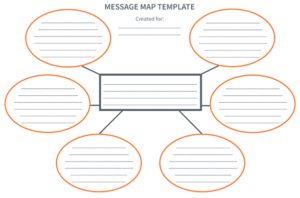
Message Mapping
Message mapping is a technique used to develop clear, concise, and consistent messages about the change initiative. It involves identifying the core messages that need to be communicated, supporting key points, and anticipating potential questions or concerns that stakeholders might have. A message map typically consists of a central message that articulates the primary purpose of the change, surrounded by supporting messages that provide details, benefits, and rationales.
For example, if an organization is implementing a new customer relationship management (CRM) system, the central message might be, “The new CRM system will enhance our customer service and improve our sales efficiency.” Supporting messages would then address specific benefits such as streamlined customer interactions, improved data accuracy, and better sales tracking. Anticipated questions, such as “How will this impact my daily work?” or “What training will be provided?” would be addressed with prepared responses. By developing a message map, organizations can ensure that all communications are aligned and that stakeholders receive a consistent narrative, reducing the risk of misunderstandings and rumors.
Feedback Mechanisms
Implementing feedback mechanisms is crucial for gathering input, addressing concerns, and ensuring two-way communication during change initiatives. Feedback mechanisms provide stakeholders with the opportunity to express their opinions, ask questions, and offer suggestions, which can be invaluable for identifying potential issues early and making necessary adjustments. Common feedback mechanisms include surveys, suggestion boxes, focus groups, and interactive Q&A sessions.
For example, during a major organizational restructuring, employees might be asked to complete anonymous surveys to share their concerns about job security, workload changes, or the new reporting structure. Focus groups can be conducted with representatives from different departments to gather qualitative insights and discuss potential challenges. Additionally, regular Q&A sessions or town hall meetings provide forums for employees to voice their concerns directly to leadership, fostering transparency and trust.
Collecting and analyzing feedback helps organizations understand stakeholder sentiment, tailor communication strategies to address specific concerns, and demonstrate responsiveness to employee needs. This active engagement not only helps build support for the change initiative but also enhances overall employee morale and commitment to the organization.
Effective communication planning is essential for the success of any change initiative. By utilizing communication plan templates, organizations can ensure that all critical aspects of communication are systematically addressed. Message mapping provides a structured approach to developing consistent and clear messages that resonate with different stakeholders. Feedback mechanisms enable two-way communication, allowing organizations to gather input, address concerns, and make informed adjustments. Together, these tools support the development of comprehensive communication plans that facilitate smoother transitions, minimize resistance, and enhance stakeholder engagement throughout the change process.
Developing an Action Plan Using Change Management Tools
Developing a comprehensive action plan is crucial for the successful application of change management tools and strategies within an organization. This process involves identifying key actions, establishing priorities, and creating a continuous improvement plan. By carefully crafting and executing an action plan, organizations can effectively manage change, mitigate resistance, and ensure long-term success.
Identifying Key Actions
The first step in developing an action plan is to identify the key actions needed to implement the change management tools and strategies. This involves a thorough assessment of the organization’s current state, identifying gaps, and determining the necessary steps to achieve the desired future state. Key actions might include conducting change readiness assessments, engaging stakeholders, developing communication strategies, and implementing training programs.
For example, if an organization is planning to introduce a new technology system, key actions could include assessing employee readiness for the change, identifying training needs, and establishing a support system for troubleshooting and guidance. Each action should be clearly defined, with specific objectives and measurable outcomes. This clarity ensures that everyone involved understands their roles and responsibilities, reducing ambiguity and enhancing accountability.
Establishing Priorities
Once the key actions have been identified, the next step is to establish priorities and timelines for their implementation. Prioritization is essential to ensure that the most critical actions are addressed first, preventing resources from being spread too thin and allowing for a more focused approach. Actions should be prioritized based on factors such as impact, urgency, and resource availability.
For instance, actions that directly affect the organization’s core operations or customer experience may be prioritized over those that have a more peripheral impact. Developing a timeline for each action, including start and end dates, milestones, and checkpoints, is vital for maintaining momentum and tracking progress. This timeline should be realistic, taking into account potential obstacles and delays, to prevent overcommitting resources and personnel.
Continuous Improvement
A critical component of the action plan is developing a continuous improvement strategy to ensure sustained success and adaptability. Change management is not a one-time event but an ongoing process that requires regular monitoring, evaluation, and adjustment. Continuous improvement involves setting up feedback mechanisms, such as employee surveys, performance metrics, and stakeholder meetings, to gather insights on the effectiveness of the change initiatives.
Organizations should establish key performance indicators (KPIs) to measure the success of the implemented changes. These KPIs might include employee engagement levels, customer satisfaction scores, process efficiency, and financial performance. Regular review meetings should be scheduled to assess progress, discuss challenges, and make necessary adjustments to the action plan. This iterative approach allows the organization to respond to emerging issues and evolving market conditions, ensuring that the change initiatives remain relevant and effective.
Additionally, fostering a culture of continuous improvement encourages employees to be proactive in identifying areas for enhancement and suggesting innovative solutions. Training and development programs should be ongoing, equipping employees with the skills and knowledge needed to adapt to future changes. By embedding continuous improvement into the organizational culture, companies can build resilience and agility, enabling them to thrive in a dynamic business environment.
Conclusion
Developing an action plan using change management tools is essential for successfully navigating organizational transformation. By identifying key actions, establishing priorities, and implementing a continuous improvement strategy, organizations can effectively manage change, align with strategic objectives, and sustain long-term success. This structured approach not only facilitates smoother transitions but also empowers employees to embrace change, driving innovation and adaptability throughout the organization.

Exercise 1.8: Group Discussion

Course Manual 9: Interactive Learning Sessions
Interactive learning is a dynamic approach that actively engages participants in the learning process through discussions, activities, and collaborative exercises. Unlike traditional passive learning methods, which often involve one-way communication and rote memorization, interactive learning fosters a more engaging and immersive experience. This hands-on approach not only enhances the retention of information but also facilitates the practical application of knowledge in real-world situations. In the context of organizational change, interactive learning plays a crucial role in equipping individuals and teams with the skills and insights needed to navigate complex transformations effectively.
The importance of interactive learning in organizational change cannot be overstated. As businesses operate in increasingly complex and rapidly evolving environments, the ability to adapt and innovate has become a critical determinant of success. Interactive learning sessions encourage participants to think critically, solve problems collaboratively, and apply theoretical concepts to practical scenarios. This approach not only enhances individual competencies but also fosters a culture of continuous improvement and learning within the organization. By actively involving employees in the learning process, organizations can drive engagement, motivation, and commitment to change initiatives, making them more likely to succeed.
Furthermore, interactive learning helps bridge the gap between theory and practice. It allows participants to experiment with new ideas, reflect on their experiences, and receive immediate feedback, all of which are essential for personal and professional growth. Through interactive learning, employees gain a deeper understanding of change management principles and are better prepared to contribute to the organization’s transformation efforts. In summary, interactive learning is an invaluable tool for fostering the knowledge, skills, and behaviors needed to lead and sustain effective organizational change.
Benefits of Interactive Learning Sessions
Interactive learning sessions offer numerous benefits that enhance both individual development and organizational success. By engaging participants actively in the learning process, these sessions foster an environment conducive to growth, collaboration, and practical application of knowledge. This approach to learning not only boosts engagement and motivation but also leads to improved knowledge retention and real-world application of concepts.
Increased Engagement
One of the most significant benefits of interactive learning sessions is the increased level of engagement they promote. Unlike traditional lecture-based learning, interactive sessions require active participation from attendees, whether through discussions, hands-on activities, or problem-solving exercises. This active involvement keeps participants attentive and invested in the learning process. When individuals are more engaged, their motivation to learn and internalize new concepts increases, leading to a deeper understanding and a more meaningful learning experience. Engaged participants are also more likely to contribute their ideas and perspectives, enriching the learning environment for everyone involved.
Enhanced Collaboration
Interactive learning sessions are designed to encourage collaboration and teamwork. By working together on group activities, case studies, or simulations, participants develop their ability to communicate effectively, share ideas, and leverage diverse perspectives. This collaborative atmosphere not only enhances learning but also helps build stronger relationships among team members. Such teamwork is crucial for organizational success, as it fosters a culture of cooperation, mutual respect, and shared responsibility. When individuals collaborate effectively, they can solve complex problems more efficiently and innovate more effectively, contributing to the organization’s overall growth and adaptability.
Improved Knowledge Retention
Research has shown that active participation in the learning process significantly improves knowledge retention. Interactive learning requires participants to engage cognitively, emotionally, and physically with the material, leading to a deeper and more lasting understanding of the subject matter. Activities like role-playing, group discussions, and real-time feedback enable learners to internalize concepts and recall information more effectively. By experiencing the material firsthand, participants are more likely to remember and apply what they have learned in their daily work, leading to better performance and outcomes.
Real-World Application
One of the key advantages of interactive learning is the opportunity to apply theoretical concepts to real-world scenarios. Through case studies, simulations, and practical exercises, participants can test their understanding and practice their skills in a safe and controlled environment. This hands-on approach allows them to see the relevance of what they are learning and how it applies to their roles and responsibilities. Real-world application not only reinforces learning but also equips participants with the confidence and competence needed to tackle challenges and drive change within their organizations effectively.
Designing Effective Interactive Learning Sessions
Designing effective interactive learning sessions is crucial for fostering an engaging, impactful, and practical educational experience. Such sessions not only enhance the retention of knowledge but also ensure that participants can apply what they learn in real-world scenarios. This section provides guidance on key elements to consider when creating successful interactive learning sessions, including setting learning objectives, developing relevant content, planning engaging activities, and incorporating assessment and feedback mechanisms.
Learning Objectives: The foundation of any successful interactive learning session begins with setting clear and measurable learning objectives. These objectives should outline what participants are expected to know, understand, or be able to do by the end of the session. Learning objectives provide direction and focus for both the facilitator and the participants, ensuring that all activities and discussions are aligned with desired outcomes. Effective learning objectives are SMART: Specific, Measurable, Achievable, Relevant, and Time-bound. For example, instead of a vague goal like “understand change management,” a SMART objective would be “By the end of the session, participants will be able to identify and describe three key change management strategies and apply them in a given organizational scenario.”
Content Development: Once learning objectives are defined, the next step is to develop content that is engaging, informative, and relevant to participants’ needs. Content should be tailored to the audience’s level of knowledge, experience, and specific interests. Incorporating real-world examples and case studies that resonate with participants’ daily work challenges makes the content more relatable and impactful. The use of multimedia elements such as videos, infographics, and interactive presentations can also enhance engagement and help convey complex concepts in a more digestible format. Furthermore, the content should be structured in a logical flow, building on prior knowledge and gradually increasing in complexity to maintain interest and facilitate deeper understanding.
Activity Planning: Interactive learning sessions thrive on activities that encourage active participation and collaboration among participants. These activities should be carefully planned to align with the learning objectives and content of the session. Common interactive activities include group discussions, role-playing, simulations, and problem-solving exercises. These methods allow participants to apply their knowledge, practice new skills, and learn from each other’s experiences. When planning activities, it’s important to consider varying the formats to cater to different learning styles, whether visual, auditory, or kinesthetic. Ice-breakers and team-building exercises can be useful at the start of a session to create a comfortable environment, while more intensive problem-solving tasks can be introduced as participants gain confidence. Balancing individual tasks with group work ensures that everyone is actively engaged and contributes to the learning experience.
Assessment and Feedback: Assessment and feedback are critical components of effective interactive learning sessions, as they help gauge the understanding of participants and the effectiveness of the session. Incorporating assessment tools such as quizzes, polls, or short reflective exercises throughout the session can provide immediate feedback to both participants and facilitators. This ongoing assessment helps identify areas where participants might be struggling, allowing facilitators to adjust the session content or approach as needed. Feedback from participants is equally important; it provides insights into how the session was received and what could be improved. Facilitators should encourage open and honest feedback, which can be collected through surveys, one-on-one discussions, or group reflections at the end of the session. This feedback loop ensures continuous improvement and adaptation of future learning sessions to better meet the needs of participants.
Designing effective interactive learning sessions requires careful consideration of learning objectives, content development, activity planning, and assessment and feedback mechanisms. By setting clear goals, creating relevant and engaging content, fostering active participation, and incorporating continuous feedback, facilitators can create powerful learning experiences that enhance knowledge retention, skill application, and overall participant satisfaction. This approach not only makes learning more enjoyable but also equips participants with the tools and confidence they need to drive successful organizational change.
Technology in Interactive Learning
In today’s digital age, technology plays a pivotal role in enhancing interactive learning sessions, making them more engaging, flexible, and effective. By integrating various technological tools and platforms, educators and trainers can create a dynamic learning environment that fosters active participation, collaboration, and real-time feedback. This section explores the different ways technology can be utilized to enrich interactive learning, focusing on e-learning platforms, virtual classrooms, interactive tools and software, and gamification.
E-Learning Platforms: E-learning platforms provide a versatile and scalable solution for delivering interactive content to learners, regardless of their location. These platforms offer a wide range of features, including multimedia presentations, discussion forums, quizzes, and assignments, which can be accessed at the learner’s convenience. E-learning platforms support a blended learning approach, combining online and offline methods to cater to different learning styles. They also facilitate self-paced learning, allowing participants to engage with the material at their own speed, revisiting complex topics as needed. Popular e-learning platforms like Moodle, Canvas, and Blackboard offer robust functionalities that enhance the interactive learning experience. By using these platforms, educators can track learner progress, assess performance through automated quizzes and tests, and provide personalized feedback, thus creating a more tailored and responsive educational experience.
Virtual Classrooms: Virtual classroom technology enables remote interactive learning by replicating the experience of a traditional classroom in a digital environment. Tools like Zoom, Microsoft Teams, and Google Meet offer features such as video conferencing, screen sharing, breakout rooms, and real-time messaging, which facilitate live interaction between instructors and participants. Virtual classrooms are particularly valuable in a globalized world where learners may be geographically dispersed. They support synchronous learning, where participants can engage in real-time discussions, ask questions, and collaborate on group activities, despite being in different locations. The use of breakout rooms, for instance, allows small group discussions, fostering deeper engagement and collaboration. Virtual classrooms also provide recording capabilities, enabling participants to review sessions and reinforcing learning. This accessibility makes virtual classrooms a powerful tool for delivering interactive and inclusive learning experiences.
Interactive Tools and Software: Incorporating interactive tools and software into learning sessions enhances engagement and allows for real-time interaction and feedback. Tools such as polling apps (e.g., Poll Everywhere, Mentimeter), collaborative platforms (e.g., Miro, Padlet), and online quiz makers (e.g., Kahoot, Quizlet) make learning sessions more interactive and engaging. Polling apps can be used to gauge participant opinions, check understanding, or gather input on specific topics, providing instant feedback and fostering a sense of involvement. Collaborative platforms allow learners to work together on projects, brainstorm ideas, and share resources in real time, promoting teamwork and active participation. These tools make it easier for facilitators to involve all participants, ensuring that everyone has a voice and can contribute to the learning process. They also help keep the sessions dynamic and interactive, reducing the passive consumption of information.
Gamification: Gamification, the use of game design elements in non-game contexts, is an effective strategy for increasing engagement and motivation in interactive learning sessions. By incorporating elements such as points, badges, leaderboards, and challenges, gamification makes learning more enjoyable and competitive. Platforms like Kahoot and Quizizz enable educators to create game-based quizzes and activities that encourage participation and reward progress. Gamification taps into the natural human desire for achievement and recognition, motivating learners to engage more deeply with the content. It also promotes friendly competition, which can enhance collaboration and peer learning. Additionally, gamification helps in breaking down complex topics into manageable tasks, making learning more accessible and less intimidating. By providing immediate feedback and rewards, gamification fosters a sense of accomplishment and encourages continuous learning.
Conclusion
Technology has transformed the landscape of interactive learning, making it more accessible, engaging, and effective. E-learning platforms, virtual classrooms, interactive tools, and gamification are just a few of the technological innovations that have enhanced the way we learn and teach. By leveraging these technologies, educators can create immersive and interactive learning experiences that not only capture the attention of participants but also facilitate the retention and application of knowledge. As technology continues to evolve, the possibilities for interactive learning will only expand, providing new and innovative ways to engage and educate learners.

Case Study: Google’s Use of Technology in Interactive Learning
Google, one of the world’s leading technology companies, is known for its commitment to continuous learning and employee development. With a global workforce spread across various locations, Google faces the challenge of providing consistent, high-quality training and development opportunities to its employees. To address this challenge, Google has implemented a range of interactive learning technologies that facilitate engagement, collaboration, and knowledge sharing among its employees.
E-Learning Platforms
Google uses its own cloud-based e-learning platform, known as Google Workspace for Education, to deliver interactive training programs. This platform offers a variety of learning modules that employees can access at any time, allowing for self-paced learning. The content is delivered through multimedia presentations, interactive quizzes, and scenario-based learning exercises. Employees can track their progress and receive immediate feedback, enhancing their understanding of the material.
The platform also supports a blended learning approach, combining online modules with in-person workshops and discussions. This integration allows employees to apply what they have learned in a real-world context, reinforcing the knowledge gained from online training sessions.
Virtual Classrooms
Google leverages its own suite of tools, such as Google Meet and Google Chat, to facilitate virtual classrooms. These tools enable live, interactive training sessions where employees can engage with trainers and peers in real-time. Features like screen sharing, video conferencing, and breakout rooms are used to replicate the experience of a traditional classroom. During virtual training sessions, employees can ask questions, participate in discussions, and collaborate on group activities.
Virtual classrooms are particularly useful for Google’s globally dispersed teams, as they allow employees from different locations to participate in the same training sessions. This capability ensures that all employees have access to the same learning opportunities, regardless of their geographical location.
Gamification
Google has incorporated gamification into its training programs to increase employee engagement and motivation. For instance, Google’s “Code Jam” is a competitive coding competition that encourages employees to improve their coding skills in a fun and interactive way. By introducing elements like challenges, points, and leaderboards, Google motivates its employees to participate actively in training programs.
Gamification is also used in other training modules, where employees earn badges and rewards for completing courses and achieving learning milestones. These gamified elements not only make learning more enjoyable but also encourage employees to continue their professional development.
Evaluating Interactive Learning Sessions
Evaluating the effectiveness of interactive learning sessions is crucial for ensuring that they meet their intended goals and continue to enhance participants’ skills and knowledge. By employing various evaluation methods, organizations can gather valuable insights into the impact of these sessions and identify areas for improvement. Key evaluation methods include participant feedback, performance metrics, continuous improvement processes, and success stories.
Participant Feedback
Gathering feedback from participants is one of the most direct ways to evaluate the effectiveness of interactive learning sessions. Surveys, questionnaires, and post-session interviews can be used to collect data on participants’ experiences, satisfaction levels, and perceived value of the training. Feedback questions might focus on the relevance of the content, the effectiveness of the facilitator, the engagement level during the session, and the overall learning environment. Analyzing this feedback helps identify strengths and weaknesses, enabling trainers to make necessary adjustments to enhance future sessions. Moreover, open-ended feedback provides insights into specific aspects of the session that may not have been considered initially, allowing for more targeted improvements.
Performance Metrics
Using performance metrics to measure the impact of interactive learning is essential for assessing the transfer of knowledge and skills to real-world applications. Metrics such as pre- and post-assessment scores, completion rates, and the number of participants achieving learning objectives can provide quantitative evidence of learning outcomes. For instance, improvements in test scores or increased proficiency in specific skills can indicate the effectiveness of the training. Additionally, tracking behavioral changes and performance improvements in the workplace, such as increased productivity, reduced errors, or enhanced teamwork, helps to connect the learning experience with tangible business results.
Continuous Improvement
Evaluation is not a one-time activity but a continuous process that drives the improvement of interactive learning sessions. Based on participant feedback and performance metrics, organizations should implement a continuous improvement loop to refine training content, delivery methods, and engagement strategies. Regularly reviewing and updating the interactive learning sessions ensures they remain relevant, effective, and aligned with the evolving needs of participants and the organization. This iterative approach fosters a culture of ongoing development and responsiveness, leading to higher quality learning experiences over time.
Success Stories
Highlighting success stories and best practices is an effective way to reinforce the value of interactive learning. Sharing examples of how specific learning sessions have positively impacted individuals or teams can motivate participants and stakeholders to engage more deeply with training programs. Success stories demonstrate the practical application of skills and knowledge gained from interactive learning, showcasing real-world benefits such as improved job performance, innovation, or problem-solving abilities. Celebrating these achievements not only validates the effectiveness of the training but also promotes a positive learning culture within the organization.
Challenges and Solutions in Interactive Learning
Interactive learning, while effective, comes with its own set of challenges. Addressing these challenges is essential for ensuring successful implementation and maximizing the benefits of interactive learning methods. Key challenges include participant resistance, technology barriers, facilitation difficulties, and resource constraints. Each of these can be managed with practical solutions to enhance the overall learning experience.
Participant Resistance
Resistance from participants is a common challenge in interactive learning. Some learners may be reluctant to engage due to discomfort with new methods, fear of judgment, or lack of confidence. Overcoming this resistance involves creating a supportive learning environment where participants feel safe to share ideas and ask questions. Facilitators can encourage participation by using icebreakers, setting clear expectations, and emphasizing the value of interactive methods in improving learning outcomes. Building trust and fostering an open dialogue also helps alleviate apprehensions.
Technology Barriers
Technology barriers can impede the effectiveness of interactive learning, especially in virtual or blended settings. Participants may face issues such as limited access to necessary devices, unreliable internet connections, or unfamiliarity with digital tools. To address these barriers, organizations should ensure that technology used is accessible, user-friendly, and well-supported by training and troubleshooting resources. Providing alternative access options and ensuring that all participants are comfortable with the technology before starting the sessions are also important steps.
Facilitation Challenges
Managing group dynamics and dealing with difficult participants can pose challenges to facilitators. To maintain a positive and productive environment, facilitators should establish ground rules, actively manage discussions, and use conflict resolution techniques if necessary. Engaging activities and a structured agenda can help keep the group focused and minimize disruptions.
Resource Constraints
Resource constraints, such as limited budget or time, can restrict the scope of interactive learning initiatives. Finding cost-effective solutions, such as using free or low-cost digital tools and optimizing the use of existing resources, can help overcome these limitations. Prioritizing essential training content and leveraging internal expertise are also effective strategies to manage resource constraints without compromising learning quality.
By proactively addressing these challenges, organizations can enhance the effectiveness and reach of interactive learning sessions.

Exercise 1.9: Group Exercise – Designing an Interactive Learning Session
To foster teamwork and practical application of concepts learned in the Course Manual, focusing on creating an effective and engaging interactive learning session.
Your company is planning to introduce a new software system that all employees need to be trained on. As part of the learning and development team, your task is to design an interactive learning session to ensure that the training is both effective and engaging for employees.
1. Form Groups
Begin by dividing participants into small groups. Each group will work together to design an interactive learning session.
2. Identify Learning Objectives
Within your groups, discuss and identify specific learning objectives for the session. Consider what employees need to understand or be able to do after the training, such as mastering key features of the new software, understanding its benefits, and being able to use it efficiently in their daily tasks.
3. Design the Session
Each group should design an interactive learning session that includes a variety of techniques to engage participants. Think about incorporating elements such as:
• Group discussions to share experiences and ideas.
• Case studies that provide real-world scenarios for problem-solving.
• Role-playing to practice using the software in different contexts.
• Hands-on workshops where participants can use the software with guided instruction.
4. Integrate Technology
Consider how to use technology to enhance the learning experience. This could include:
• Using e-learning platforms to deliver instructional content.
• Implementing virtual classrooms for remote or hybrid learning options.
• Incorporating interactive tools like polling apps or quizzes to gather real-time feedback and measure understanding.
• Using gamification elements, such as rewards for completing tasks or simulations that mimic real software usage scenarios.
5. Develop a Facilitation Plan
Each group should outline a plan for facilitating the session. Consider strategies to engage participants actively and maintain a positive learning environment. Plan how to handle potential challenges, such as managing difficult participants, addressing technology issues, or keeping the group focused and on track.
6. Present and Discuss
After designing your interactive learning session, each group will present their plan to the larger group. Highlight key aspects of your session design, how you plan to integrate technology, and your facilitation strategies. After each presentation, discuss the potential challenges and benefits of the plans presented. Provide constructive feedback and consider additional ways to enhance engagement and learning outcomes.
By the end of this exercise, participants will have collaborated to create a detailed and thoughtful interactive learning session plan. They will gain practical experience in designing engaging training sessions and using technology effectively to enhance learning, preparing them to implement these strategies in their own organizational settings.

Course Manual 10: Transformation Roadmap
In today’s fast-paced and constantly evolving business environment, organizations must be agile and adaptable to thrive. Developing a clear and structured transformation roadmap is essential for guiding organizations through change and ensuring that transformation efforts are aligned with strategic goals. Course Manual 10 of the Organizational Transformation Program focuses on equipping participants with the tools and insights needed to create a comprehensive and actionable transformation roadmap. This roadmap serves as a strategic blueprint, providing a clear vision of the future state, defining the steps necessary to achieve desired outcomes, and aligning resources and stakeholders towards common goals.
A transformation roadmap is more than just a high-level plan; it is a detailed guide that outlines specific initiatives, timelines, responsibilities, and key performance indicators. It helps organizations anticipate challenges, allocate resources effectively, and track progress towards their transformation objectives. By laying out a structured pathway, a roadmap ensures that all aspects of the organization, from leadership to frontline employees, are working in concert to achieve the desired change. This systematic approach minimizes the risks associated with transformation, reduces uncertainty, and enhances the organization’s ability to respond to internal and external pressures.
The development of a transformation roadmap involves a combination of theoretical knowledge and practical application. Participants in this course will learn how to identify key drivers of change, prioritize strategic initiatives, and engage stakeholders effectively. They will also explore how to integrate flexibility into the roadmap to accommodate unforeseen challenges and evolving market conditions. Ultimately, the goal is to provide participants with the skills and confidence needed to lead successful transformation initiatives, ensuring that their organizations can adapt, innovate, and thrive in a competitive landscape. By mastering the process of creating a transformation roadmap, leaders can navigate the complexities of change and drive sustainable success for their organizations.
Key Components of a Transformation Roadmap
A transformation roadmap is a strategic tool that provides a clear and structured pathway for achieving organizational change. It outlines the steps needed to transition from the current state to the desired future state, ensuring that all aspects of the organization are aligned with the strategic vision. The following key components form the foundation of an effective transformation roadmap:
Vision and Mission: The vision and mission statements serve as the cornerstone of any transformation roadmap. The vision defines the long-term aspirations of the organization, outlining what it aims to become in the future. It provides a clear direction and inspires employees by conveying a compelling picture of the desired outcome of the transformation. The mission statement, on the other hand, articulates the core purpose and values of the organization, describing how it will achieve its vision. Together, the vision and mission set the strategic direction and ensure that all transformation efforts are aligned with the overarching goals of the organization.
Objectives and Goals: Setting clear and measurable objectives and goals is critical for guiding the transformation process. Objectives are specific, actionable steps that need to be taken to achieve the vision and mission. Goals are the desired outcomes that the organization aims to achieve through the transformation. These should be SMART (Specific, Measurable, Achievable, Relevant, and Time-bound) to provide clarity and focus. For example, a goal could be to increase market share by 20% within two years or to improve customer satisfaction ratings by 30%. Well-defined objectives and goals help in prioritizing initiatives, allocating resources, and tracking progress.
Milestones and Deliverables: Milestones are key markers that signify significant progress along the transformation journey. They act as checkpoints that allow organizations to measure their advancement towards the set objectives and goals. Deliverables are the tangible outputs or results that must be achieved to reach each milestone. For instance, a milestone might be the completion of a critical phase of a project, while deliverables could include specific reports, software implementations, or process improvements. Identifying milestones and deliverables helps keep the transformation on track and provides opportunities to celebrate successes and recalibrate strategies if necessary.
Resources and Responsibilities: Allocating the necessary resources and defining clear responsibilities are crucial for the successful execution of a transformation roadmap. Resources include financial investments, human capital, technology, and other assets required to support the transformation initiatives. Responsibilities must be clearly assigned to individuals or teams, outlining their roles and accountability for specific tasks. This clarity ensures that everyone involved understands their part in the transformation and can work towards common goals efficiently.
Timeline and Schedule: A detailed timeline and schedule provide a roadmap for when each phase of the transformation will take place. It outlines the start and end dates for key activities, milestones, and deliverables. A well-structured timeline helps in managing time effectively, avoiding bottlenecks, and ensuring that the transformation progresses at a steady pace. It also provides a framework for coordinating efforts across different departments and teams, enhancing collaboration and minimizing disruptions.
Monitoring and Evaluation: Monitoring and evaluation are essential for assessing the effectiveness of the transformation efforts and ensuring that objectives and goals are being met. This involves establishing key performance indicators (KPIs) and metrics that measure progress, identify areas of improvement, and provide insights into the overall health of the transformation process. Regular monitoring allows for timely adjustments, while evaluation at critical milestones helps determine whether the transformation is on track to achieve its desired outcomes. Feedback loops and continuous improvement mechanisms ensure that the roadmap remains relevant and adaptable to changing circumstances.
A well-designed transformation roadmap includes vision and mission alignment, clear objectives and goals, defined milestones and deliverables, effective resource allocation and responsibility assignment, a structured timeline, and robust monitoring and evaluation mechanisms. These components collectively provide a strategic blueprint for guiding organizations through complex transformations, ensuring alignment with strategic goals, and driving sustainable success. By carefully planning and implementing these components, organizations can navigate the challenges of change and achieve their transformation objectives.

Exercise 1.10a: Individual Exercise – Roadmap Development
Setting Clear Objectives and Goals
Setting clear and measurable objectives and goals is a fundamental component of any successful transformation roadmap. These objectives and goals provide direction, establish priorities, and create a framework for evaluating the success of the transformation efforts. Without well-defined objectives, organizations risk drifting without focus, leading to inefficient use of resources and failure to achieve desired outcomes. This section delves into the importance of setting SMART objectives, ensuring strategic alignment, and maintaining an outcome focus.
SMART Objectives
One of the most effective ways to set clear and actionable objectives is to use the SMART criteria. SMART stands for Specific, Measurable, Achievable, Relevant, and Time-bound:
1. Specific: Objectives should be clear and detailed, leaving no room for ambiguity. A specific objective clearly defines what needs to be achieved, who will be involved, and the desired outcome. For example, rather than setting a vague goal like “improve customer service,” a specific objective would be “reduce customer complaint resolution time by 30% within the next six months.”
2. Measurable: Objectives must be quantifiable to track progress and assess success. By establishing measurable criteria, organizations can determine whether they are on track to meet their goals. Metrics such as percentages, timeframes, and quantities provide concrete benchmarks for evaluation.
3. Achievable: Objectives should be realistic and attainable, given the organization’s resources and constraints. Setting overly ambitious goals that are impossible to achieve can demotivate employees and lead to frustration. Achievable objectives encourage progress and build momentum.
4. Relevant: Objectives should be aligned with the broader strategic goals of the organization. They need to be pertinent to the company’s mission and vision, ensuring that efforts are directed towards achieving long-term success. Relevant objectives help in maintaining focus and preventing distractions by unrelated initiatives.
5. Time-bound: Establishing a clear timeframe for achieving objectives is essential for maintaining urgency and momentum. Time-bound objectives create a sense of accountability and help in managing resources effectively. They also provide a timeline for evaluating progress and making necessary adjustments.
Strategic Alignment
Strategic alignment is critical to ensure that the objectives and goals of the transformation roadmap support the overall direction of the organization. Objectives should not only address immediate needs but also contribute to long-term strategic ambitions. This alignment ensures coherence and integration across all levels of the organization, from top management to frontline employees. When objectives are strategically aligned, they provide a clear path towards fulfilling the organization’s mission and achieving its vision. This coherence also facilitates the prioritization of initiatives, allowing organizations to focus their resources on efforts that will have the greatest strategic impact.
Outcome Focus
Focusing on desired outcomes is vital for setting effective objectives and goals. Rather than merely listing activities or tasks to be completed, outcome-focused objectives concentrate on the results that the transformation aims to achieve. For instance, an outcome-focused goal might be “increase market share by 10% over the next year,” rather than simply “launch a new marketing campaign.” This approach emphasizes the impact of actions and provides a clearer measure of success.
Measuring outcomes requires identifying specific key performance indicators (KPIs) that reflect the desired changes. These KPIs serve as benchmarks for assessing progress and determining whether objectives are being met. By concentrating on outcomes, organizations can better align their activities with strategic priorities, allocate resources effectively, and demonstrate the value of their transformation efforts.
Setting clear and measurable objectives and goals is essential for guiding the successful implementation of a transformation roadmap. By employing SMART criteria, ensuring strategic alignment, and maintaining an outcome focus, organizations can create a clear path towards achieving their transformation ambitions. These practices not only provide direction and clarity but also facilitate the tracking of progress, enabling timely adjustments to ensure that the desired results are achieved.
Defining Key Milestones and Deliverables
Defining key milestones and deliverables is crucial for the successful implementation of any transformation roadmap. Milestones and deliverables serve as markers of progress, guiding organizations through the stages of transformation and ensuring that objectives are met in a timely and efficient manner. This section explores the importance of identifying critical milestones, defining specific deliverables, and establishing mechanisms for tracking progress against these benchmarks.
Milestone Identification
Milestones are significant checkpoints within the transformation process that indicate the completion of critical phases or tasks. They are not just arbitrary dates or goals; instead, they represent meaningful progress toward achieving the overall transformation objectives. Identifying these milestones early in the planning phase helps to break down the transformation into manageable segments, making it easier to oversee and control.
When identifying milestones, it’s essential to consider the specific goals and objectives outlined in the transformation roadmap. Milestones should align with key phases of the project, such as the completion of initial planning, development of new systems or processes, pilot testing, full-scale implementation, and post-implementation review. For example, a milestone could be the successful rollout of a new software application to a pilot group within the organization. These significant points provide an opportunity to evaluate progress, identify any issues that need addressing, and make necessary adjustments to stay on track.
Deliverable Definition
Deliverables are the tangible outputs or results that are produced as part of the transformation process. For each milestone, specific deliverables should be defined to provide clear expectations of what needs to be accomplished. Deliverables could include reports, completed tasks, system implementations, training programs, or any other output that demonstrates progress.
Defining deliverables involves specifying what will be delivered, who will be responsible for delivering it, and by when. Clear and detailed deliverable definitions help ensure that all team members have a common understanding of what is expected at each stage of the transformation. This clarity minimizes ambiguity and potential misunderstandings, which can lead to delays or missed objectives.
For example, if a milestone is to conduct a training program for new software, the deliverables could include the development of training materials, scheduling of training sessions, and completion of training for all targeted employees. By outlining these deliverables, organizations can monitor the transformation’s progress and ensure that all necessary components are addressed.
Progress Tracking
Establishing mechanisms for tracking progress against milestones and deliverables is essential to manage the transformation effectively. Progress tracking helps organizations monitor whether they are on schedule and within budget, and it provides early warning signals if there are deviations from the plan.
To track progress, organizations can use project management tools and software that allow for real-time updates and visibility into the status of milestones and deliverables. These tools can provide dashboards and reports that highlight progress, flag potential issues, and enable managers to take corrective action if necessary. Regular progress meetings and status updates are also valuable for keeping all stakeholders informed and engaged. These meetings provide a forum for discussing challenges, sharing successes, and aligning efforts across different teams.
Progress tracking should be continuous and consistent, ensuring that the transformation remains on course. By regularly reviewing progress against milestones and deliverables, organizations can maintain momentum, address obstacles promptly, and make informed decisions that keep the transformation moving forward.
Defining key milestones and deliverables is a vital aspect of developing a transformation roadmap. Milestones signify critical checkpoints that mark progress, while deliverables provide tangible evidence of accomplishments. By identifying these components early and establishing robust mechanisms for progress tracking, organizations can ensure that their transformation initiatives remain focused, organized, and aligned with their strategic objectives. This structured approach not only facilitates smoother transitions through various phases of transformation but also enhances accountability, transparency, and the likelihood of successful outcomes.
Monitoring and Evaluating Progress
Monitoring and evaluating progress are crucial components of any successful transformation roadmap. These processes ensure that transformation initiatives stay on track, meet objectives, and deliver the desired outcomes. By establishing clear mechanisms for monitoring and evaluation, organizations can effectively manage their transformation journey, make informed decisions, and adjust strategies as needed. This section discusses the importance of identifying key performance indicators (KPIs), using monitoring techniques, and implementing evaluation methods to measure and assess progress.
Key Performance Indicators (KPIs)
Key Performance Indicators (KPIs) are specific, measurable metrics that organizations use to evaluate the success of their transformation initiatives. KPIs provide a quantitative basis for assessing progress towards strategic objectives and goals. Identifying the right KPIs is crucial, as they should align directly with the overall vision and mission of the transformation.
Common KPIs for transformation initiatives might include metrics related to financial performance (e.g., cost savings, revenue growth), operational efficiency (e.g., process improvement, cycle time reduction), customer satisfaction (e.g., Net Promoter Score, customer retention rates), and employee engagement (e.g., turnover rates, participation in training programs). Each KPI should have a clear target or benchmark to measure progress against. For example, if the goal is to improve customer satisfaction, a specific KPI might be to increase the Net Promoter Score by 10% within the first year of the transformation.
Tracking KPIs regularly allows organizations to monitor whether they are on track to achieve their goals, identify areas of concern, and make data-driven decisions to course-correct as needed. It also provides a means of accountability, ensuring that all stakeholders are aligned with the transformation’s objectives.
Monitoring Techniques
Monitoring techniques are essential for tracking progress and keeping transformation initiatives on schedule. Common monitoring tools include progress reports, dashboards, and status meetings. These tools provide real-time visibility into the status of the transformation and enable managers to identify potential issues early.
Progress Reports are periodic updates that provide detailed information on the status of various tasks and milestones. They highlight what has been accomplished, what is in progress, and what is pending, as well as any obstacles or risks that may impact progress. Progress reports are typically shared with stakeholders to keep them informed and engaged.
Dashboards offer a visual representation of KPIs and other critical data points, often in real-time. They can be customized to show relevant metrics, such as project timelines, budget status, resource allocation, and performance indicators. Dashboards provide a quick overview of progress and can be accessed by different stakeholders to monitor various aspects of the transformation.
Status Meetings are regular check-ins with project teams and stakeholders to review progress, discuss challenges, and make necessary adjustments. These meetings foster communication and collaboration, ensuring that everyone is aware of their responsibilities and the overall status of the transformation.
Evaluation Methods
Evaluation methods are essential for assessing the effectiveness of transformation initiatives and determining whether they are delivering the expected results. Evaluation can be conducted through various methods, including surveys, feedback sessions, and performance reviews.
Surveys can be used to gather feedback from employees, customers, and other stakeholders on their perceptions of the transformation’s impact. These surveys provide qualitative data on areas such as employee engagement, customer satisfaction, and overall acceptance of the changes.
Feedback Sessions involve gathering insights from stakeholders through focus groups, interviews, or town hall meetings. These sessions offer a forum for discussing what is working well, what challenges are being faced, and what improvements can be made.
Performance Reviews assess the achievement of KPIs and other targets. By comparing actual results against predefined benchmarks, organizations can evaluate whether the transformation is meeting its goals. This analysis helps identify successful strategies that can be replicated and areas where adjustments are needed.
Monitoring and evaluating progress are integral to the success of a transformation roadmap. By identifying and tracking KPIs, using monitoring techniques like progress reports and dashboards, and implementing comprehensive evaluation methods, organizations can ensure that their transformation initiatives are effective, aligned with strategic objectives, and capable of delivering sustainable results. This proactive approach enables organizations to navigate the complexities of change, make informed decisions, and drive continuous improvement throughout the transformation journey.

Case Study: Microsoft’s Transformation Journey
In the early 2010s, Microsoft, one of the world’s leading technology companies, faced significant challenges due to a rapidly changing technology landscape. The rise of mobile computing, cloud services, and open-source software posed threats to Microsoft’s traditional business model, which heavily relied on its Windows operating system and Office software. Recognizing the need for a strategic transformation, Microsoft embarked on a comprehensive overhaul to shift its focus towards cloud computing, innovation, and customer-centricity.
Key Components of the Transformation Roadmap
1. Vision and Mission: Under the leadership of CEO Satya Nadella, who took over in 2014, Microsoft redefined its mission to “empower every person and every organization on the planet to achieve more.” This vision was pivotal in guiding the company’s transformation efforts, emphasizing a customer-first approach and a commitment to enabling productivity and innovation through technology.
2. Objectives and Goals: Microsoft set clear objectives to become a leader in cloud computing, expand its market presence in mobile and AI technologies, and increase customer engagement across all product lines. The company aimed to achieve a significant portion of its revenue from cloud-based services, such as Azure and Office 365, over a defined period.
3. Milestones and Deliverables: Microsoft identified key milestones to track progress, including the launch of new cloud services, expansion of Azure data centers globally, and integration of AI capabilities into its product suite. Specific deliverables included the development of cloud-based versions of Microsoft Office, enhancements to the Azure cloud platform, and strategic acquisitions like LinkedIn in 2016 to bolster its enterprise solutions.
4. Resources and Responsibilities: To support the transformation, Microsoft allocated substantial resources towards R&D in cloud and AI technologies. The company restructured its workforce to align with new strategic priorities, investing in training programs to upskill employees in cloud computing and AI. Responsibilities for executing the transformation roadmap were clearly defined across various divisions, ensuring accountability and collaboration.
5. Timeline and Schedule: Microsoft developed a phased timeline to implement its transformation strategy. Short-term goals included rolling out new cloud services and expanding Azure’s infrastructure, while long-term goals focused on achieving leadership in AI and expanding its market share in the enterprise sector.
6. Monitoring and Evaluation: Microsoft established robust monitoring mechanisms to track the success of its transformation initiatives. Key performance indicators (KPIs) included cloud revenue growth, market share gains, customer satisfaction scores, and innovation metrics. Regular progress reports, dashboards, and quarterly earnings calls provided transparency and allowed for continuous evaluation of the transformation’s effectiveness.
Outcomes
Microsoft’s transformation has been widely recognized as a success. By 2020, the company had become one of the world’s leading cloud service providers, with Azure accounting for a significant share of its revenue. The shift to cloud-based offerings and a renewed focus on customer-centric innovation helped Microsoft achieve record financial performance, surpassing the $1 trillion market capitalization mark. Additionally, the company’s culture shift towards openness, collaboration, and continuous learning has fostered an environment of innovation and adaptability.

Exercise 1.10b: Group Exercise – Creating a Transformation Roadmap
To foster teamwork and practical application of the concepts learned in the Course Manual.
Imagine your company is planning a major transformation initiative to improve innovation, operational efficiency, and customer satisfaction. Your task is to create a comprehensive transformation roadmap to guide the initiative.
1.Divide the participants into small groups.
2.Each group defines the vision and mission for the transformation initiative.
3.Each group sets clear and measurable objectives and goals for the transformation.
4.Each group identifies key milestones and deliverables to track progress.
5.Each group allocates resources and defines responsibilities for each phase of the roadmap.
6.Each group develops a detailed timeline and schedule to guide the implementation.
7.Each group establishes mechanisms for monitoring and evaluating progress.
8.Present and Discuss – Each group presents their transformation roadmap. Discuss the potential challenges and benefits of their plans.

Course Manual 11: Measuring Success
Course Manual 11 of the Organizational Transformation Program, is where we delve into the critical process of Measuring and Evaluating Success. This Course Manual is meticulously designed to guide participants through the comprehensive and systematic evaluation of transformation initiatives. Measuring and evaluating success is vital for understanding the impact of organizational change, ensuring accountability, and fostering continuous improvement. This Course Manual combines theoretical insights with practical applications, ensuring that participants can translate their knowledge into actionable strategies that drive successful transformation.
The Importance of Measuring and Evaluating Success
Measuring and evaluating success is a critical component of any successful organizational transformation. Without a systematic approach to measurement and evaluation, it becomes challenging to determine whether the intended outcomes are being achieved or to make necessary adjustments. This section underscores the significance of these practices in ensuring that transformation initiatives deliver real, tangible results and drive sustained improvement.
Accountability
One of the primary reasons for measuring and evaluating success is to ensure accountability. By establishing clear metrics and regularly assessing progress against these metrics, organizations can hold individuals and teams accountable for their contributions to the transformation process. Accountability is crucial in keeping everyone aligned with the organization’s goals and ensuring that efforts are directed toward achieving desired outcomes. It helps in identifying who is responsible for specific tasks and outcomes, thus fostering a sense of ownership and commitment. Regular evaluations make it possible to track performance and provide feedback, which is essential for maintaining focus and momentum throughout the transformation journey.
Informed Decision-Making
Measurement and evaluation play a vital role in informed decision-making. Data-driven insights gathered from systematic evaluation processes provide a factual basis for making strategic decisions. By analyzing this data, leaders can understand what is working, what is not, and why. This knowledge enables them to make informed adjustments to strategies, allocate resources more effectively, and identify areas that need additional support or intervention. Informed decision-making based on solid evidence helps in minimizing risks and maximizing the potential for successful transformation outcomes.
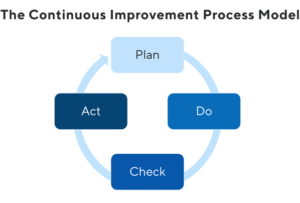
Continuous Improvement
A culture of continuous improvement is essential for sustaining transformation efforts over the long term. Measurement and evaluation are key to fostering such a culture. By regularly assessing progress and outcomes, organizations can learn from their experiences, both successes and failures. This continuous feedback loop allows for ongoing refinement and optimization of strategies and practices. It encourages a mindset of learning and adaptation, which is crucial for staying competitive in a rapidly changing environment. Continuous improvement driven by systematic evaluation ensures that transformation initiatives remain dynamic and responsive to new challenges and opportunities.
Stakeholder Engagement
Demonstrating success to stakeholders is another critical aspect of measurement and evaluation. Stakeholders, including employees, customers, investors, and partners, need to see clear evidence of progress and success. Credible evaluation results provide transparency and build trust, showing stakeholders that the organization is effectively managing its transformation efforts. Effective communication of these results helps in gaining stakeholder support and commitment, which is vital for the long-term sustainability of transformation initiatives.
The importance of measuring and evaluating success in organizational transformation cannot be overstated. These practices ensure accountability, support informed decision-making, foster continuous improvement, and enhance stakeholder engagement. By systematically measuring and evaluating progress, organizations can drive successful transformation, achieve their strategic goals, and create lasting value.
Identifying Key Metrics and Indicators
Identifying the right metrics and indicators is crucial for evaluating the success of organizational transformation. These metrics provide a clear, measurable way to assess whether transformation efforts are meeting their objectives and to guide ongoing decision-making. This section explores the essential components of this process, including Key Performance Indicators (KPIs), the distinction between leading and lagging indicators, the balance between quantitative and qualitative metrics, and the use of benchmarking.
Key Performance Indicators (KPIs)
Key Performance Indicators (KPIs) are critical metrics that align directly with the transformation objectives of an organization. KPIs are used to track progress toward specific goals, providing a clear picture of how well the transformation is unfolding. To be effective, KPIs must be carefully selected and clearly defined. They should be specific, measurable, and directly linked to the desired outcomes of the transformation initiative.
For example, if the objective is to improve operational efficiency, relevant KPIs might include the reduction of production cycle times or the percentage decrease in operational costs. For a transformation focused on enhancing customer experience, KPIs could include customer satisfaction scores or the net promoter score (NPS). By identifying and tracking these KPIs, organizations can monitor their progress and make data-driven decisions to stay on course.
Leading and Lagging Indicators
Understanding the difference between leading and lagging indicators is essential for a comprehensive evaluation of transformation success. Leading indicators are predictive metrics that provide early signals of future performance. They help in forecasting outcomes and allow organizations to adjust their strategies proactively. Examples of leading indicators might include employee engagement levels or the number of new customer inquiries, both of which can signal future performance trends.
On the other hand, lagging indicators reflect past performance and outcomes, providing a retrospective view of the transformation’s impact. Examples include financial performance metrics like revenue growth or profitability, which show the results of initiatives after they have been implemented. While lagging indicators confirm whether goals have been achieved, leading indicators are valuable for guiding actions and adjustments before final results are realized. Together, leading and lagging indicators offer a balanced view of both current and future performance.
Quantitative and Qualitative Metrics
Balancing quantitative and qualitative metrics is critical for a well-rounded evaluation of transformation success. Quantitative metrics are numerical and easily measurable. They include financial performance indicators, such as return on investment (ROI), cost savings, or productivity increases. These metrics provide objective data that can be analyzed statistically, offering a clear picture of tangible outcomes.
Qualitative metrics, however, capture the more subjective aspects of transformation. These might include employee engagement, customer satisfaction, or organizational culture. Qualitative data is often gathered through surveys, interviews, and feedback mechanisms, providing insights that are not easily quantified but are equally important for understanding the human impact of transformation initiatives. Balancing these two types of metrics ensures that the evaluation captures both the hard numbers and the softer, more nuanced aspects of transformation.
Benchmarking
Benchmarking is a valuable tool for evaluating transformation success by comparing an organization’s performance against industry standards and best practices. Through benchmarking, organizations can gauge how well they are performing relative to their peers, identify areas where they may be lagging, and uncover opportunities for improvement. This process involves identifying key metrics, gathering data on competitors or industry leaders, and analyzing where the organization stands in comparison.
For instance, if an organization benchmarks its customer satisfaction scores against industry averages, it can determine whether it is meeting or exceeding market expectations or if there is a gap that needs to be addressed. Benchmarking not only provides a reference point for performance but also helps set realistic goals and targets based on what is achievable and expected within the industry.
Identifying key metrics and indicators is a foundational step in evaluating the success of organizational transformation. By carefully selecting KPIs, understanding the balance between leading and lagging indicators, incorporating both quantitative and qualitative metrics, and utilizing benchmarking, organizations can gain a comprehensive understanding of their transformation progress. This thorough evaluation process ensures that transformation efforts are not only on track but also aligned with industry standards and best practices, ultimately leading to more successful and sustainable outcomes.
Developing an Evaluation Framework
A robust evaluation framework is essential for assessing the effectiveness of organizational transformation initiatives and ensuring that goals are met. This framework provides a structured approach to measure success, identify areas for improvement, and guide future decision-making. Developing an evaluation framework tailored to an organization’s specific needs involves considering several key components, customizing the framework to align with goals, and integrating it with the organization’s broader strategic planning processes.
Framework Components
The first step in developing an evaluation framework is identifying its key components. A comprehensive evaluation framework should include:
• Objectives: Clearly defined objectives are the foundation of the evaluation framework. These objectives should align with the organization’s transformation goals, such as improving operational efficiency, enhancing customer satisfaction, or fostering innovation. Clear objectives provide direction for what the evaluation seeks to measure.
• Metrics: Once objectives are set, relevant metrics need to be established to track progress and performance. These metrics can include both quantitative indicators (e.g., financial performance, productivity rates) and qualitative indicators (e.g., employee engagement, customer feedback). Metrics should be specific, measurable, and directly related to the objectives.
• Data Collection Methods: Effective data collection methods are critical for gathering reliable and accurate information. This can involve surveys, interviews, performance reports, and analytics tools. The methods chosen should be practical and suitable for the type of data needed, ensuring that the information gathered is relevant and actionable.
• Analysis Techniques: Analyzing the collected data involves using statistical tools, comparative analysis, and trend identification to make sense of the information. The analysis should provide insights into whether the objectives are being met and what adjustments might be needed.
Customizing the Framework
Customization is key to making the evaluation framework relevant and effective. The framework should be adapted to align with the organization’s specific goals, culture, and operational environment. This involves selecting metrics and data collection methods that are most relevant to the organization’s context. For example, a company focusing on digital transformation might prioritize metrics related to technology adoption and digital skill development. Customizing the framework ensures that it is tailored to the unique needs and challenges of the organization, making the evaluation process more meaningful and impactful.
Integration with Strategy
For an evaluation framework to be truly effective, it must be integrated with the organization’s strategic planning processes. This integration ensures that evaluation is not a standalone activity but part of a continuous cycle of planning, execution, and review. By aligning the evaluation framework with strategic goals, organizations can ensure that their transformation initiatives are driving toward long-term objectives. This alignment also facilitates ongoing monitoring and adjustment of strategies based on evaluation findings, fostering a culture of continuous improvement.
Developing a robust evaluation framework is essential for effectively measuring the success of organizational transformation efforts. By focusing on key components such as objectives, metrics, data collection, and analysis, customizing the framework to fit the organization’s specific needs, and integrating it with strategic planning, organizations can ensure that their evaluation processes provide valuable insights and drive continuous improvement.
Data Collection Methods
Effective data collection is critical for supporting measurement and evaluation in organizational transformation efforts. By gathering accurate and relevant data, organizations can make informed decisions, monitor progress, and assess the effectiveness of their strategies. This section explores various data collection methods, including surveys and questionnaires, interviews and focus groups, observations, and document analysis.
Surveys and Questionnaires
Surveys and questionnaires are commonly used tools for collecting quantitative and qualitative data. They are designed to gather standardized information from a large number of respondents, making them useful for identifying trends, opinions, and behaviors across a broad population. Surveys typically include closed-ended questions that produce numerical data, allowing for statistical analysis. Questionnaires can also include open-ended questions, enabling respondents to provide more detailed and nuanced feedback. These instruments can be distributed through various channels, such as online platforms, email, or paper forms, providing flexibility in reaching different groups within the organization. The design and administration of surveys and questionnaires should ensure clarity, relevance, and confidentiality to encourage honest and accurate responses.
Interviews and Focus Groups
Interviews and focus groups are qualitative data collection methods that provide deeper insights into individual and group perspectives. Interviews involve one-on-one interactions where the interviewer asks structured or semi-structured questions to explore specific topics in detail. They are useful for obtaining personal experiences, attitudes, and perceptions that may not be captured in surveys. Focus groups, on the other hand, bring together a small group of participants to discuss a particular subject. The interactive nature of focus groups encourages participants to share their thoughts, challenge ideas, and build on each other’s comments, resulting in a rich collection of data. Both methods require skilled facilitators who can probe for deeper understanding, manage group dynamics, and ensure that all voices are heard.
Observations
Observation is a data collection method that involves systematically watching and recording behaviors, processes, or events as they occur in their natural settings. Observational methods provide real-time insights into how employees interact with each other, their work environment, and the systems and processes they use. This approach is valuable for capturing non-verbal cues, workflow patterns, and other contextual factors that might influence behaviors and outcomes. Observations can be overt, where participants are aware they are being observed, or covert, where the observation is unobtrusive. The data collected through observations can be used to validate information gathered through other methods, such as surveys and interviews.
Document Analysis
Document analysis involves reviewing and analyzing existing organizational documents and records to gather relevant data. This method can include examining policies, reports, meeting minutes, emails, and performance records. Document analysis provides historical and contextual information that can help understand past performance, decision-making processes, and organizational culture. It is a valuable method for identifying patterns, trends, and discrepancies in documentation, offering a foundation for further investigation through other data collection methods.
By using a combination of these data collection methods, organizations can obtain a comprehensive view of their transformation initiatives, leading to more accurate measurement, evaluation, and informed decision-making.
Data Analysis Techniques
Data analysis is a crucial step in evaluating the success of organizational transformation initiatives. By applying various techniques, organizations can extract meaningful insights from collected data, allowing them to make informed decisions, track progress, and identify areas for improvement. This section explores several key data analysis techniques, including descriptive analysis, inferential analysis, qualitative analysis, and data visualization.
Descriptive Analysis: Descriptive analysis involves using statistical methods to summarize and describe the basic features of collected data. It provides a simple yet powerful way to understand the data set by presenting measures such as mean, median, mode, standard deviation, and frequency distributions. For instance, organizations might use descriptive statistics to calculate the average customer satisfaction score after implementing a new service process or to track the frequency of employee feedback on specific organizational changes. This method helps highlight patterns and trends, making it easier to see how certain variables have changed over time or differ among various groups.
Inferential Analysis: Inferential analysis goes beyond simple data description to make predictions and draw conclusions about a larger population based on a sample. Techniques such as hypothesis testing, regression analysis, and correlation analysis allow organizations to determine relationships between variables and predict future outcomes. For example, inferential analysis might be used to evaluate whether changes in training programs have significantly affected employee performance or to predict the likelihood of achieving specific transformation goals based on current progress. By applying inferential statistics, organizations can make data-driven decisions with a higher degree of confidence, even when direct observation of the entire population is not possible.
Qualitative Analysis: Qualitative analysis techniques are used to interpret non-numerical data, such as interview transcripts, focus group discussions, and open-ended survey responses. Methods like thematic analysis and content analysis allow researchers to identify recurring themes, patterns, and sentiments within the data. For example, thematic analysis might be employed to explore employees’ attitudes towards a recent organizational restructure, identifying common concerns, suggestions, and areas of resistance. These qualitative insights provide depth and context to quantitative findings, offering a more comprehensive understanding of the impact of transformation initiatives.
Data Visualization: Data visualization is a powerful tool for communicating findings effectively and making data insights more accessible. Techniques such as creating charts, graphs, and dashboards help transform complex data into visual formats that are easier to interpret and understand. For instance, line graphs can show trends over time, bar charts can compare different groups, and pie charts can illustrate the distribution of responses. Visualization aids in identifying key insights at a glance and facilitates more engaging presentations to stakeholders, enhancing the clarity and impact of the data analysis.
By utilizing a combination of descriptive, inferential, and qualitative analysis techniques, alongside effective data visualization, organizations can comprehensively evaluate the success of their transformation efforts. These methods enable leaders to gain actionable insights, communicate findings clearly, and make informed decisions to drive continuous improvement.

Case Study: Starbucks’ Digital Transformation and Loyalty Program Overhaul
In the early 2010s, Starbucks, a global coffeehouse chain, faced slowing growth and increased competition from other coffee retailers and fast-food chains. To maintain its market position and enhance customer loyalty, Starbucks needed to revamp its business strategy. Recognizing the growing importance of digital engagement, Starbucks decided to focus on digital transformation to enhance customer experience, streamline operations, and drive sales.
Transformation Strategy:
1. Mobile Order & Pay: Starbucks introduced the Mobile Order & Pay feature within its mobile app, allowing customers to order and pay for their coffee in advance, thus reducing wait times in stores. This innovation aimed to enhance convenience and improve customer satisfaction by offering a seamless in-store experience. The feature was initially launched in select locations and then expanded nationwide due to its success.
2. Starbucks Rewards Loyalty Program Overhaul: To foster customer loyalty and encourage frequent visits, Starbucks revamped its loyalty program. The updated Starbucks Rewards program allowed customers to earn Stars (points) for every purchase, which could be redeemed for free drinks and food items. By integrating this program with the mobile app, Starbucks not only streamlined the loyalty experience but also gathered valuable customer data to personalize marketing efforts.
3. Digital Partnerships and Integration: Starbucks collaborated with tech companies like Apple, Uber Eats, and Alibaba to expand its digital footprint. These partnerships enabled Starbucks to offer services like music streaming within its stores (via Apple Music) and home delivery through Uber Eats. In China, a significant market for Starbucks, the company partnered with Alibaba to enhance mobile ordering and delivery services through Alibaba’s platforms.
4. Improving Store Efficiency with Digital Tools: Starbucks invested in digital tools to improve operational efficiency within its stores. The company implemented technology to optimize inventory management, streamline supply chain processes, and enhance workforce management. This focus on efficiency aimed to reduce costs and improve service speed.
Outcomes:
• Increased Customer Engagement
• Enhanced Customer Experience
• Revenue Growth
• Operational Efficiency
Conclusion:
Starbucks’ digital transformation and focus on enhancing its loyalty program illustrate the importance of leveraging technology to improve customer experience and operational efficiency. By embracing digital innovation, Starbucks successfully strengthened its market position, increased customer loyalty, and drove revenue growth. This case study demonstrates how traditional retail businesses can adapt to changing consumer expectations and technological advancements to remain competitive in a dynamic market landscape.

Exercise 1.11: Group Exercise – Identifying and Defining Key Performance Indicators (KPIs)
To help participants understand the importance of KPIs in measuring and evaluating the success of transformation initiatives, and to practice defining relevant KPIs for a hypothetical organizational change scenario.
Your organization, a medium-sized tech company, is undergoing a digital transformation to improve operational efficiency and enhance customer satisfaction. The primary focus areas include implementing a new customer relationship management (CRM) system, enhancing employee digital skills through training programs, and streamlining internal communication processes.
1. Form Groups:
Divide participants into small groups. Each group will take on the role of a team tasked with overseeing the digital transformation process.
2. Identify Objectives:
Each group should start by identifying specific objectives related to the digital transformation. Examples could include:
• Reducing customer response time by implementing the new CRM system.
• Increasing employee proficiency in using digital tools through training programs.
• Improving internal communication efficiency to reduce project delays.
3. Define Key Performance Indicators (KPIs):
For each objective, the group should define 2-3 KPIs that can be used to measure progress and success. KPIs should be SMART (Specific, Measurable, Achievable, Relevant, Time-bound). For example:
• CRM System: “Reduce customer response time by 20% within the first six months after CRM implementation.”
• Digital Skills Training: “Achieve an 80% completion rate for digital training programs within the first three months of launch, with at least 75% of participants passing the proficiency assessment.”
• Internal Communication: “Decrease project delay incidents related to communication issues by 30% within the first year.”
4. Reflection:
After all presentations, facilitate a group discussion on the exercise. Discuss the challenges faced when defining KPIs, the importance of having clear metrics in place, and how KPIs can drive successful transformation efforts.

Course Manual 12: Accelerating Continuous Transformation
In Course Manual 12 of the Organizational Transformation Program, we delve into the critical task of Accelerating Continuous Transformation. This module acts as a vital bridge, connecting the foundational knowledge gained in earlier courses with the more advanced concepts and strategies that lie ahead. By focusing on effective preparation, this manual ensures that participants can not only absorb new information but also effectively apply it within their organizations to foster continuous improvement and innovation.
Key Goals of the Course Manual
The objectives of this Course Manual include:
1. Review and Consolidate Learning: Reinforcing key concepts and skills from previous modules to solidify understanding and enhance retention.
2. Identify Areas for Improvement: Assisting participants in pinpointing their development needs to prepare for future learning.
3. Set Clear Learning Objectives: Establishing focused learning goals for upcoming modules to drive purposeful engagement.
4. Enhance Strategic Planning Skills: Providing tools for strategic planning, enabling the practical application of advanced concepts.
5. Foster a Growth Mindset: Cultivating a mindset that values continuous learning and adaptation, which is crucial for successful organizational transformation.
This manual is designed to be a stepping stone, ensuring participants are well-prepared to tackle the challenges of continuous transformation and lead their organizations toward sustainable success.
Review of Key Concepts and Skills
The “Review of Key Concepts and Skills” section serves as a critical foundation for participants in the Organizational Transformation Program. By revisiting and solidifying the knowledge acquired in earlier modules, this section ensures that participants are adequately prepared to advance to more complex subjects in subsequent modules. Understanding these foundational concepts is crucial, as they form the bedrock upon which effective organizational transformation is built. The review covers five main topics:
Organizational Evolution
Organizational evolution is a core component of any transformation initiative. This topic delves into understanding how organizations change over time and the factors that drive these changes. Participants learn about the natural lifecycle of organizations, from inception to growth, maturity, and potential decline. The focus is on recognizing the signs that indicate a need for change and understanding the forces—both internal and external—that can influence organizational evolution. By grasping these dynamics, participants can better anticipate and respond to the need for change, ensuring that their organizations remain adaptable and resilient in a constantly shifting environment.
Fundamental Principles of Change
Successful change initiatives are underpinned by a set of fundamental principles. This part of the review emphasizes the importance of understanding these principles to drive effective transformation. Participants explore concepts such as vision alignment, stakeholder engagement, communication strategies, and resistance management. They learn how these principles work together to create a coherent and persuasive change strategy that resonates with employees at all levels. The goal is to ensure that participants can design change initiatives that are not only strategic but also sustainable, leading to long-term benefits for the organization.
Drivers and Agents of Change
Change does not occur in a vacuum. It is often necessitated by various drivers, which can be both internal (e.g., shifts in organizational strategy, leadership changes, process inefficiencies) and external (e.g., market dynamics, technological advancements, regulatory changes). This topic helps participants identify and understand these drivers, as well as the critical role of change agents. Change agents are individuals or groups within the organization who are tasked with initiating, managing, and championing change initiatives. Understanding the characteristics of effective change agents and how to empower them is crucial for successful transformation.
Strategic Overhauls
Strategic overhauls involve comprehensive changes to an organization’s strategy, structure, or operations. This segment provides participants with the tools and frameworks needed to plan and implement such overhauls effectively. Topics include scenario planning, risk assessment, and resource allocation. Participants learn how to develop strategic plans that are flexible enough to adapt to changing circumstances while still providing a clear direction for the organization. The emphasis is on ensuring that these strategic shifts are aligned with the organization’s overall mission and goals, thereby maximizing their impact and effectiveness.
Evaluation and Measurement
No transformation initiative is complete without a robust evaluation and measurement framework. This topic equips participants with the skills needed to assess the success of their change initiatives. They learn about key performance indicators (KPIs), benchmarking, and feedback mechanisms that provide critical insights into the effectiveness of change efforts. By establishing clear metrics and evaluation criteria, participants can track progress, identify areas for improvement, and demonstrate the value of transformation initiatives to stakeholders. Effective evaluation and measurement are essential for ensuring that changes are not only implemented but are also delivering the desired outcomes.
Benefits for Participants
The review of key concepts and skills offers numerous significant advantages that enhance participants’ abilities to lead and manage transformation within their organizations. One of the main benefits is the reinforcement of knowledge acquired in earlier modules. By revisiting and consolidating these concepts, participants deepen their understanding and ensure that critical information is retained. This reinforcement is crucial for effective learning, enabling participants to build on a strong foundation rather than having to relearn basic principles repeatedly.
Additionally, this section lays a solid foundation for engaging with more advanced topics covered in later stages of the program. A firm grasp of fundamental principles and skills equips participants to tackle complex and challenging subjects with greater confidence. This preparation maximizes the overall learning outcomes of the program, allowing participants to delve deeper into advanced concepts and apply them more effectively within their organizational settings.
Identifying Areas for Improvement
By reflecting on their learning journey up to this point, participants gain valuable insights into their strengths and weaknesses. This reflective process is instrumental in helping them pinpoint specific skills or concepts that require additional focus, thereby enabling them to enhance their overall competence and effectiveness as leaders in their organizations. This section is structured around three main topics: self-assessment, feedback analysis, and setting developmental goals.
Self-Assessment: Self-assessment is a powerful tool that encourages participants to take an honest look at their current level of understanding and proficiency in various areas of organizational transformation. This process involves using structured self-assessment tools that measure knowledge, skills, and abilities related to key concepts covered in the program. These tools might include questionnaires, reflective exercises, or competency checklists, all designed to prompt participants to consider their comfort level and expertise with different aspects of change management.
The purpose of self-assessment is to foster self-awareness, which is a critical component of personal and professional growth. By systematically evaluating their own capabilities, participants can identify gaps in their knowledge or skills that might hinder their effectiveness. This self-awareness enables them to take ownership of their learning process, focusing on areas that need improvement and taking proactive steps to enhance their capabilities. Moreover, self-assessment helps in building a mindset oriented towards continuous improvement, which is essential for successfully navigating and leading organizational transformation.
Feedback Analysis: In addition to self-assessment, analyzing feedback received throughout the program is vital for identifying areas for improvement. Feedback can come from a variety of sources, including peers, instructors, mentors, and even subordinates. It provides an external perspective on participants’ performance, offering insights that might not be apparent through self-reflection alone. This external feedback is crucial as it helps validate the findings from self-assessment and highlights areas that might have been overlooked.
Analyzing feedback involves looking at both positive and constructive comments. Positive feedback reinforces what participants are doing well, allowing them to build on their strengths. Constructive feedback, on the other hand, sheds light on areas where there is room for improvement. By carefully analyzing this feedback, participants can gain a balanced view of their performance. They learn to appreciate their strengths while also acknowledging and addressing their weaknesses.
This process of feedback analysis fosters a growth mindset, encouraging participants to view feedback not as criticism but as an opportunity for growth. It cultivates a culture of openness and continuous learning, which is essential for personal development and, by extension, for driving successful organizational transformation. Participants who effectively use feedback analysis are better positioned to make informed decisions about their developmental needs, thereby enhancing their leadership capabilities.
Developmental Goals: The final step in identifying areas for improvement is setting specific, measurable developmental goals. Based on insights gained from self-assessment and feedback analysis, participants can establish clear objectives for their professional growth. These goals should be SMART—Specific, Measurable, Achievable, Relevant, and Time-bound—to ensure they are both practical and effective.
Setting developmental goals provides participants with a clear roadmap for improvement. For instance, if self-assessment and feedback reveal a need to improve communication skills, a participant might set a goal to enhance their ability to convey strategic vision effectively. This goal could involve taking a communication skills course, practicing presentations, or seeking mentorship from a skilled communicator within the organization.
By establishing such goals, participants are not only able to focus their efforts on specific areas but also track their progress over time. This goal-setting process helps maintain momentum in their development journey, ensuring that improvement is continuous and aligned with their broader career objectives. Achieving these developmental goals not only boosts individual performance but also contributes to the overall success of the organization’s transformation initiatives.
The “Identifying Areas for Improvement” section is a critical component of the Organizational Transformation Program, as it equips participants with the tools and frameworks necessary for continuous personal and professional development. By engaging in self-assessment, analyzing feedback, and setting clear developmental goals, participants can enhance their skills, knowledge, and leadership capabilities. This process of identifying and addressing areas for improvement not only benefits the participants individually but also has a positive impact on their organizations, fostering a culture of continuous improvement and adaptability that is essential for sustained success in a rapidly changing business environment.
Setting Learning Objectives for Upcoming Modules
The “Setting Learning Objectives for Upcoming Modules” section plays a vital role in the Organizational Transformation Program by providing participants with a clear sense of direction and purpose. Establishing well-defined learning objectives helps participants focus their efforts, stay motivated, and measure their progress throughout the program. This section emphasizes the importance of setting objectives that are not only specific and achievable but also aligned with both the strategic goals of their organizations and their personal and professional development needs.
SMART Objectives
The concept of SMART objectives is central to setting effective learning goals. SMART stands for Specific, Measurable, Achievable, Relevant, and Time-bound. Each element of SMART ensures that objectives are clear and actionable:
• Specific: Objectives should be clearly defined and unambiguous. Rather than setting vague goals like “improve leadership skills,” a more specific objective might be “enhance team communication skills by practicing active listening and providing constructive feedback.”
• Measurable: Objectives should include criteria that allow for tracking progress. For example, an objective to “increase project management efficiency by 20% within six months” provides a measurable target.
• Achievable: Goals should be realistic and attainable, considering the participant’s current skill level and available resources. Setting overly ambitious goals can lead to frustration and demotivation.
• Relevant: Learning objectives should be directly related to the participant’s role, responsibilities, and the strategic goals of their organization. This relevance ensures that the learning is applicable and valuable.
• Time-bound: Objectives should have a clear timeframe, such as “within three months” or “by the end of the quarter,” to create a sense of urgency and help prioritize tasks.
By setting SMART objectives, participants can focus their efforts on specific outcomes, making their learning process more structured and effective.
Alignment with Organizational Goals
It is essential that the learning objectives set by participants are aligned with the strategic goals of their organizations. This alignment ensures that the time and effort invested in the program contribute directly to the organization’s broader mission and objectives. For instance, if an organization is focusing on digital transformation, a participant’s learning objective might involve gaining proficiency in digital tools or understanding digital strategy frameworks.
Aligning personal learning goals with organizational objectives not only makes the learning more relevant and impactful but also demonstrates the participant’s commitment to the organization’s success. This alignment helps create a cohesive approach to personal development and organizational growth, fostering a stronger connection between individual contributions and overall business success.
Personal and Professional Growth
While aligning objectives with organizational goals is critical, it is equally important for participants to consider their own personal and professional growth. This section emphasizes the need to balance learning objectives that address both areas. For example, a participant might set goals to enhance leadership skills for professional advancement while also focusing on time management to improve work-life balance. Balancing these objectives ensures that participants grow holistically, benefiting both their careers and personal well-being.
Benefits for Participants
Setting clear learning objectives offers several key benefits. First, it helps participants stay focused and engaged by providing clear, achievable targets. This focused learning approach ensures that participants make the most of their time and resources, maximizing their development outcomes.
Second, aligning learning objectives with organizational goals helps participants ensure that their efforts are strategically relevant. This strategic alignment means that the skills and knowledge gained through the program will directly contribute to their organization’s success, making their learning both practical and valuable.
Strategic Planning for Continued Learning
Strategic planning for continued learning is a critical component of professional development and organizational success. This section of the Organizational Transformation Program emphasizes the importance of creating a structured learning plan that guides participants in acquiring new skills and knowledge over time. By approaching learning strategically, participants can ensure that their development is purposeful, aligned with their career goals, and supportive of their organization’s broader objectives.
Learning Pathways
The first step in strategic planning for continued learning involves designing clear learning pathways. A learning pathway is essentially a roadmap that outlines the steps needed to achieve specific learning objectives. This roadmap includes identifying key skills and knowledge areas to be developed, selecting appropriate learning methods (such as workshops, online courses, mentoring, or self-study), and determining the sequence in which these skills should be acquired. By having a well-defined learning pathway, participants can focus their efforts on activities that are most relevant to their goals, avoiding the pitfalls of random or unfocused learning. This targeted approach not only maximizes the efficiency of their learning but also helps in building competencies systematically.
Resource Allocation
Effective strategic planning also involves careful resource allocation. To support continued learning, participants need to identify the resources required and ensure that they are adequately allocated. Resources can include time, financial investment, and human support. Time management is crucial, as participants must balance learning activities with their existing professional responsibilities. Financial resources may be needed for enrollment in courses, attending seminars, or purchasing learning materials. Human resources, such as mentors or coaches, can provide guidance and feedback, enriching the learning experience. By proactively identifying and allocating these resources, participants can remove potential barriers to learning and create an environment that supports ongoing development.
Milestone Setting
Setting milestones is another key element of strategic planning for continued learning. Milestones serve as specific checkpoints that allow participants to track their progress and evaluate the effectiveness of their learning efforts. These could be short-term goals, like completing a course or mastering a specific skill, or long-term achievements, such as obtaining a certification or successfully applying new knowledge in a project. Milestones help maintain momentum by providing opportunities to celebrate achievements and reflect on the progress made. They also allow participants to make adjustments to their learning plan if needed, ensuring that their path remains aligned with their objectives and adapting to any changes in their personal or organizational context.
Fostering a Growth Mindset
Fostering a growth mindset is essential for individuals and organizations committed to continuous learning and development. A growth mindset, as opposed to a fixed mindset, is characterized by the belief that abilities and intelligence can be developed through effort, perseverance, and learning. This section of the Organizational Transformation Program focuses on cultivating this mindset, which is crucial for building resilience, adaptability, and a sustained commitment to both personal and professional growth.
At its core, a growth mindset is about embracing challenges, learning from failures, and viewing effort as a pathway to mastery. Individuals with a growth mindset believe that their talents and abilities can be honed through hard work, feedback, and dedication. This perspective fosters a sense of optimism and motivation, enabling people to tackle new challenges and persist in the face of setbacks. The benefits of a growth mindset are far-reaching: it leads to higher levels of achievement, greater innovation, and increased satisfaction in both personal and professional endeavors. By understanding these characteristics, participants can begin to see the value of adopting a growth-oriented approach in their daily lives.
In contrast, a fixed mindset assumes that abilities and intelligence are static and cannot be significantly altered. This mindset often leads to a fear of failure, avoidance of challenges, and resistance to feedback, all of which can stifle personal and organizational growth. Overcoming fixed mindset behaviors is a critical step toward fostering a growth mindset. This involves self-awareness, recognizing when fixed mindset thoughts arise, and consciously shifting toward a more growth-oriented perspective. For instance, instead of seeing mistakes as evidence of inadequacy, individuals are encouraged to view them as learning opportunities. Strategies such as reframing negative thoughts, seeking feedback proactively, and celebrating small wins can help shift towards a growth mindset.
Promoting a culture of continuous learning is vital for embedding a growth mindset within an organization. This involves creating an environment where learning is valued, supported, and expected. Organizations can encourage continuous learning by offering professional development opportunities, providing access to learning resources, and recognizing and rewarding efforts to acquire new skills. Leaders play a crucial role in modeling growth mindset behaviors, such as embracing challenges, demonstrating a willingness to learn, and encouraging open communication about failures and lessons learned. By fostering a culture where continuous learning is the norm, organizations can inspire employees to seek out new knowledge and skills, ultimately driving innovation and long-term success.
Preparing for Advanced Topics
The “Preparing for Advanced Topics” section is designed to equip participants with the tools and mindset necessary to successfully engage with more complex subjects in the later stages of the Organizational Transformation Program. By providing an overview of what to expect and offering practical strategies, this section ensures that participants are well-prepared to handle the challenges of advanced learning, facilitating a smoother transition into more demanding content.
Anticipating Challenges
As participants move into advanced topics, they are likely to encounter more intricate concepts and theories that require a deeper level of understanding and critical thinking. This section emphasizes the importance of anticipating these challenges and proactively preparing for them. Participants are encouraged to identify potential difficulties, such as unfamiliar terminology, complex theories, or the need for integrating multiple areas of knowledge. By recognizing these challenges early, participants can develop strategies to address them, such as seeking additional resources, forming study groups, or allocating extra time for review. This proactive approach reduces anxiety and builds confidence, making the learning process more manageable and effective.
Advanced Learning Techniques
To enhance understanding and retention of advanced material, this section introduces participants to a variety of advanced learning techniques. Techniques such as mind mapping, which helps in organizing and visualizing complex information, and the Feynman technique, which involves teaching a concept to someone else to better understand it, are highlighted. Additionally, the use of case studies and real-world applications is recommended to provide practical context and deepen comprehension. By employing these techniques, participants can improve their ability to grasp and retain advanced concepts, making the learning process more engaging and effective.
Leveraging Previous Knowledge
Building on the foundation of knowledge gained in earlier modules is crucial for mastering advanced topics. This section encourages participants to actively leverage what they have already learned, making connections between basic principles and more complex ideas. By drawing on their existing knowledge base, participants can better understand how advanced topics fit into the broader framework of organizational transformation. This integrative approach not only reinforces previous learning but also facilitates a deeper understanding of new material, enabling participants to apply advanced concepts more effectively in real-world scenarios.
Benefits for Participants
The “Preparing for Advanced Topics” section offers several key benefits. First, it ensures that participants are adequately prepared for the challenges of advanced learning, providing them with the confidence and skills needed to engage with complex material. Second, it offers practical learning strategies that can be applied to master advanced concepts, enhancing both understanding and retention. By fostering a proactive approach to learning, this section empowers participants to tackle advanced topics with greater ease and effectiveness.

Case Study: General Electric’s Continuous Transformation Journey
General Electric (GE), a multinational conglomerate, has long been recognized for its commitment to innovation and continuous improvement. Facing significant changes in the global market, technological advancements, and evolving customer needs, GE embarked on a comprehensive transformation journey to maintain its competitive edge and ensure long-term sustainability. This case study explores how GE applied the principles of continuous transformation to adapt and thrive in a rapidly changing environment.
Challenge:
In the early 2010s, GE faced numerous challenges, including increased competition, market saturation in key sectors, and the need to innovate in the face of rapid technological change. The company realized that maintaining the status quo would not suffice. To remain competitive, GE needed to transform its business model, processes, and organizational culture. This transformation required a strategic approach that incorporated continuous learning, adaptation, and a commitment to ongoing improvement.
Strategy and Implementation:
1. Adopting a Digital Transformation Focus:
GE recognized the growing importance of digital technologies in industrial operations. The company launched GE Digital, a division dedicated to developing and implementing digital industrial solutions. GE focused on integrating the Industrial Internet of Things (IIoT) into its operations, creating a platform called Predix, designed to collect and analyze data from industrial equipment. This shift not only enhanced operational efficiency but also opened new revenue streams by offering software solutions to other industrial firms.
2. Lean Management and Operational Excellence:
GE implemented Lean management principles across its operations to drive efficiency, reduce waste, and improve productivity. The company invested in training employees in Lean methodologies, empowering them to identify inefficiencies and develop solutions. This approach fostered a culture of continuous improvement, where employees at all levels were encouraged to contribute ideas for enhancing processes and reducing costs.
3. Agile Workforce Development:
Recognizing that its workforce needed new skills to succeed in a digital-first environment, GE invested heavily in employee training and development. The company launched initiatives to reskill and upskill its employees, focusing on digital literacy, data analytics, and agile project management. GE’s leadership also embraced a growth mindset, promoting a culture where learning from failure was viewed as a valuable experience.
4. Customer-Centric Innovation:
GE shifted its focus toward customer-centric innovation, actively engaging with customers to understand their needs and co-develop solutions. This approach helped GE create products and services that directly addressed market demands, leading to increased customer satisfaction and loyalty.
5. Performance Measurement and Continuous Feedback:
GE implemented a robust performance measurement framework, using key performance indicators (KPIs) to track progress and evaluate the effectiveness of its transformation initiatives. The company adopted continuous feedback mechanisms, both internally and with customers, to gather insights and make data-driven decisions. This approach allowed GE to iterate and refine its strategies, ensuring alignment with its transformation goals.
Outcomes:
GE’s continuous transformation efforts led to significant improvements in operational efficiency, cost savings, and revenue growth. The company’s digital transformation initiatives positioned GE as a leader in the IIoT space, with Predix becoming a key platform for industrial data analytics. The Lean management approach helped streamline operations, reduce waste, and enhance productivity across GE’s global operations. Employee engagement and satisfaction improved as the company invested in training and development, fostering a culture of innovation and continuous learning.

Exercise 1.12: Group Exercise
To foster teamwork and practical application of the concepts learned in the Course Manual.
Participants will work in groups to reflect on their progress, set goals for the next year, and develop action plans.
1.Form Groups
Divide the participants into small groups.
2.Review Key Concepts
Each group reviews the key concepts and skills covered in the previous modules.
3.Identify Areas for Improvement
Each group identifies areas where further development is needed.
4.Set Learning Objectives
Each group sets clear and measurable learning objectives for the upcoming modules.
5.Develop a Strategic Learning Plan
Each group develops a strategic learning plan, outlining the learning pathways and resources required.
6.Foster a Growth Mindset
Each group identifies activities to foster a growth mindset among their team members.
7.Prepare for Advanced Topics
Each group outlines a plan to prepare for the advanced topics in the subsequent modules.
8.Present and Discuss
Each group presents their strategic plan. Discuss the potential challenges and benefits of their plans.
By the end of this Course Manual, participants will have a thorough understanding of how to accelerate continuous transformation, equipped with the skills to set clear learning objectives, develop strategic plans, and foster a growth mindset.
This Course Manual is a critical investment for anyone committed to driving successful and sustainable organizational transformation through continuous learning and development.
Project Studies
Project Study (Part 1) – Customer Service
The Head of this Department is to provide a detailed report relating to the Organizational Evolution process that has been implemented within their department, together with all key stakeholders, as a result of conducting this workshop, incorporating process: planning; development; implementation; management; and review. Your process should feature the following 12 parts:
01. Introduction to Organizational Evolution
02. Fundamental Principles
03. Drivers of Transformation
04. Agents of Change
05. Evaluating Organizational Performance
06. Strategic Overhauls
07. Transformation Factors
08. Tools for Leading Change
09. Interactive Learning Sessions
10. Transformation Roadmap
11. Measuring Success
12. Accelerating Continuous Transformation
Please include the results of the initial evaluation and assessment.
Project Study (Part 2) – E-Business
The Head of this Department is to provide a detailed report relating to the Organizational Evolution process that has been implemented within their department, together with all key stakeholders, as a result of conducting this workshop, incorporating process: planning; development; implementation; management; and review. Your process should feature the following 12 parts:
01. Introduction to Organizational Evolution
02. Fundamental Principles
03. Drivers of Transformation
04. Agents of Change
05. Evaluating Organizational Performance
06. Strategic Overhauls
07. Transformation Factors
08. Tools for Leading Change
09. Interactive Learning Sessions
10. Transformation Roadmap
11. Measuring Success
12. Accelerating Continuous Transformation
Please include the results of the initial evaluation and assessment.
Project Study (Part 3) – Finance
The Head of this Department is to provide a detailed report relating to the Organizational Evolution process that has been implemented within their department, together with all key stakeholders, as a result of conducting this workshop, incorporating process: planning; development; implementation; management; and review. Your process should feature the following 12 parts:
01. Introduction to Organizational Evolution
02. Fundamental Principles
03. Drivers of Transformation
04. Agents of Change
05. Evaluating Organizational Performance
06. Strategic Overhauls
07. Transformation Factors
08. Tools for Leading Change
09. Interactive Learning Sessions
10. Transformation Roadmap
11. Measuring Success
12. Accelerating Continuous Transformation
Please include the results of the initial evaluation and assessment.
Project Study (Part 4) – Globalization
The Head of this Department is to provide a detailed report relating to the Organizational Evolution process that has been implemented within their department, together with all key stakeholders, as a result of conducting this workshop, incorporating process: planning; development; implementation; management; and review. Your process should feature the following 12 parts:
01. Introduction to Organizational Evolution
02. Fundamental Principles
03. Drivers of Transformation
04. Agents of Change
05. Evaluating Organizational Performance
06. Strategic Overhauls
07. Transformation Factors
08. Tools for Leading Change
09. Interactive Learning Sessions
10. Transformation Roadmap
11. Measuring Success
12. Accelerating Continuous Transformation
Please include the results of the initial evaluation and assessment.
Project Study (Part 5) – Human Resources
The Head of this Department is to provide a detailed report relating to the Organizational Evolution process that has been implemented within their department, together with all key stakeholders, as a result of conducting this workshop, incorporating process: planning; development; implementation; management; and review. Your process should feature the following 12 parts:
01. Introduction to Organizational Evolution
02. Fundamental Principles
03. Drivers of Transformation
04. Agents of Change
05. Evaluating Organizational Performance
06. Strategic Overhauls
07. Transformation Factors
08. Tools for Leading Change
09. Interactive Learning Sessions
10. Transformation Roadmap
11. Measuring Success
12. Accelerating Continuous Transformation
Please include the results of the initial evaluation and assessment.
Project Study (Part 6) – Information Technology
The Head of this Department is to provide a detailed report relating to the Organizational Evolution process that has been implemented within their department, together with all key stakeholders, as a result of conducting this workshop, incorporating process: planning; development; implementation; management; and review. Your process should feature the following 12 parts:
01. Introduction to Organizational Evolution
02. Fundamental Principles
03. Drivers of Transformation
04. Agents of Change
05. Evaluating Organizational Performance
06. Strategic Overhauls
07. Transformation Factors
08. Tools for Leading Change
09. Interactive Learning Sessions
10. Transformation Roadmap
11. Measuring Success
12. Accelerating Continuous Transformation
Please include the results of the initial evaluation and assessment.
Project Study (Part 7) – Legal
The Head of this Department is to provide a detailed report relating to the Organizational Evolution process that has been implemented within their department, together with all key stakeholders, as a result of conducting this workshop, incorporating process: planning; development; implementation; management; and review. Your process should feature the following 12 parts:
01. Introduction to Organizational Evolution
02. Fundamental Principles
03. Drivers of Transformation
04. Agents of Change
05. Evaluating Organizational Performance
06. Strategic Overhauls
07. Transformation Factors
08. Tools for Leading Change
09. Interactive Learning Sessions
10. Transformation Roadmap
11. Measuring Success
12. Accelerating Continuous Transformation
Please include the results of the initial evaluation and assessment.
Project Study (Part 8) – Management
The Head of this Department is to provide a detailed report relating to the Organizational Evolution process that has been implemented within their department, together with all key stakeholders, as a result of conducting this workshop, incorporating process: planning; development; implementation; management; and review. Your process should feature the following 12 parts:
01. Introduction to Organizational Evolution
02. Fundamental Principles
03. Drivers of Transformation
04. Agents of Change
05. Evaluating Organizational Performance
06. Strategic Overhauls
07. Transformation Factors
08. Tools for Leading Change
09. Interactive Learning Sessions
10. Transformation Roadmap
11. Measuring Success
12. Accelerating Continuous Transformation
Please include the results of the initial evaluation and assessment.

Project Study (Part 9) – Marketing
The Head of this Department is to provide a detailed report relating to the Organizational Evolution process that has been implemented within their department, together with all key stakeholders, as a result of conducting this workshop, incorporating process: planning; development; implementation; management; and review. Your process should feature the following 12 parts:
01. Introduction to Organizational Evolution
02. Fundamental Principles
03. Drivers of Transformation
04. Agents of Change
05. Evaluating Organizational Performance
06. Strategic Overhauls
07. Transformation Factors
08. Tools for Leading Change
09. Interactive Learning Sessions
10. Transformation Roadmap
11. Measuring Success
12. Accelerating Continuous Transformation
Please include the results of the initial evaluation and assessment.

Project Study (Part 10) – Production
The Head of this Department is to provide a detailed report relating to the Organizational Evolution process that has been implemented within their department, together with all key stakeholders, as a result of conducting this workshop, incorporating process: planning; development; implementation; management; and review. Your process should feature the following 12 parts:
01. Introduction to Organizational Evolution
02. Fundamental Principles
03. Drivers of Transformation
04. Agents of Change
05. Evaluating Organizational Performance
06. Strategic Overhauls
07. Transformation Factors
08. Tools for Leading Change
09. Interactive Learning Sessions
10. Transformation Roadmap
11. Measuring Success
12. Accelerating Continuous Transformation
Please include the results of the initial evaluation and assessment.

Project Study (Part 11) – Logistics
The Head of this Department is to provide a detailed report relating to the Organizational Evolution process that has been implemented within their department, together with all key stakeholders, as a result of conducting this workshop, incorporating process: planning; development; implementation; management; and review. Your process should feature the following 12 parts:
01. Introduction to Organizational Evolution
02. Fundamental Principles
03. Drivers of Transformation
04. Agents of Change
05. Evaluating Organizational Performance
06. Strategic Overhauls
07. Transformation Factors
08. Tools for Leading Change
09. Interactive Learning Sessions
10. Transformation Roadmap
11. Measuring Success
12. Accelerating Continuous Transformation
Please include the results of the initial evaluation and assessment.

Project Study (Part 12) – Education
The Head of this Department is to provide a detailed report relating to the Organizational Evolution process that has been implemented within their department, together with all key stakeholders, as a result of conducting this workshop, incorporating process: planning; development; implementation; management; and review. Your process should feature the following 12 parts:
01. Introduction to Organizational Evolution
02. Fundamental Principles
03. Drivers of Transformation
04. Agents of Change
05. Evaluating Organizational Performance
06. Strategic Overhauls
07. Transformation Factors
08. Tools for Leading Change
09. Interactive Learning Sessions
10. Transformation Roadmap
11. Measuring Success
12. Accelerating Continuous Transformation
Please include the results of the initial evaluation and assessment.
Program Benefits
Management
- Regulatory Harmony
- Compliance Confidence
- Risk Reduction
- Integrity Assurance
- Legal Certainty
- Audit Readiness
- Operational Stability
- Governance Strength
- Ethical Culture
- Policy Precision
Production
- Efficiency Boost
- Performance Optimization
- Quality Enhancement
- Productivity Gains
- Cost Reduction
- Workflow Streamlining
- Service Excellence
- Innovation Acceleration
- Reliability Increase
- Value Maximization
Finance
- Profit Surge
- Cost Efficiency
- Revenue Growth
- Margin Enhancement
- Investment Leverage
- Operational Savings
- Productivity Dividend
- Quality Returns
- Efficiency Gains
- Loss prevention
Client Telephone Conference (CTC)
If you have any questions or if you would like to arrange a Client Telephone Conference (CTC) to discuss this particular Unique Consulting Service Proposition (UCSP) in more detail, please CLICK HERE.

























